2023
FROM PRE-K THROUGH THE TEEN YEARS
GET TO KNOW CAMPS IN AND AROUND NJ!

SEND THEM TO AN INCLUSIVE CAMP FOR ALL ABILITIES
PRESCHOOL PROGRAMS, TEEN TOURS + MORE
FIND THE

2023
FROM PRE-K THROUGH THE TEEN YEARS
GET TO KNOW CAMPS IN AND AROUND NJ!

SEND THEM TO AN INCLUSIVE CAMP FOR ALL ABILITIES
PRESCHOOL PROGRAMS, TEEN TOURS + MORE
FIND THE
FOR YOUR KID
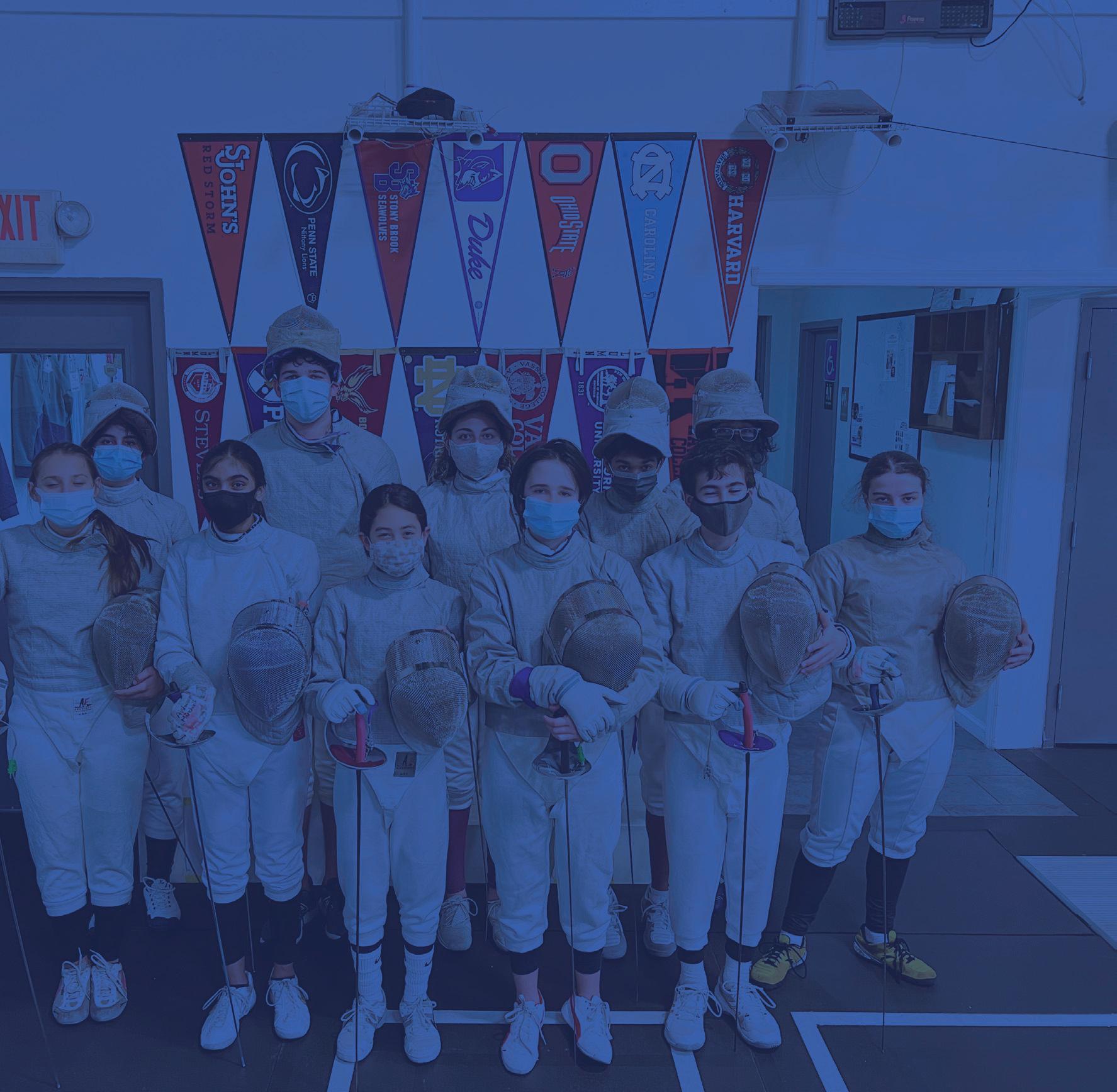


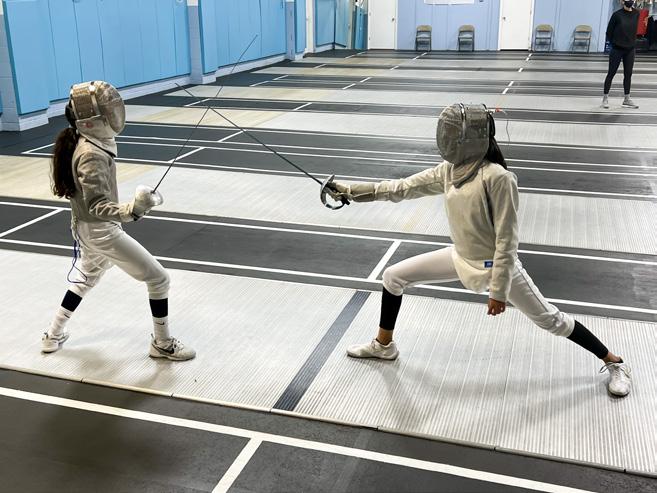
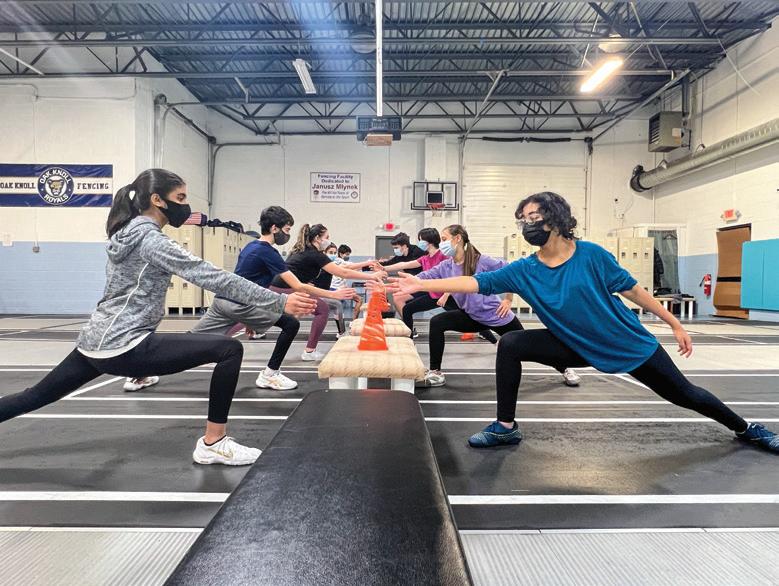
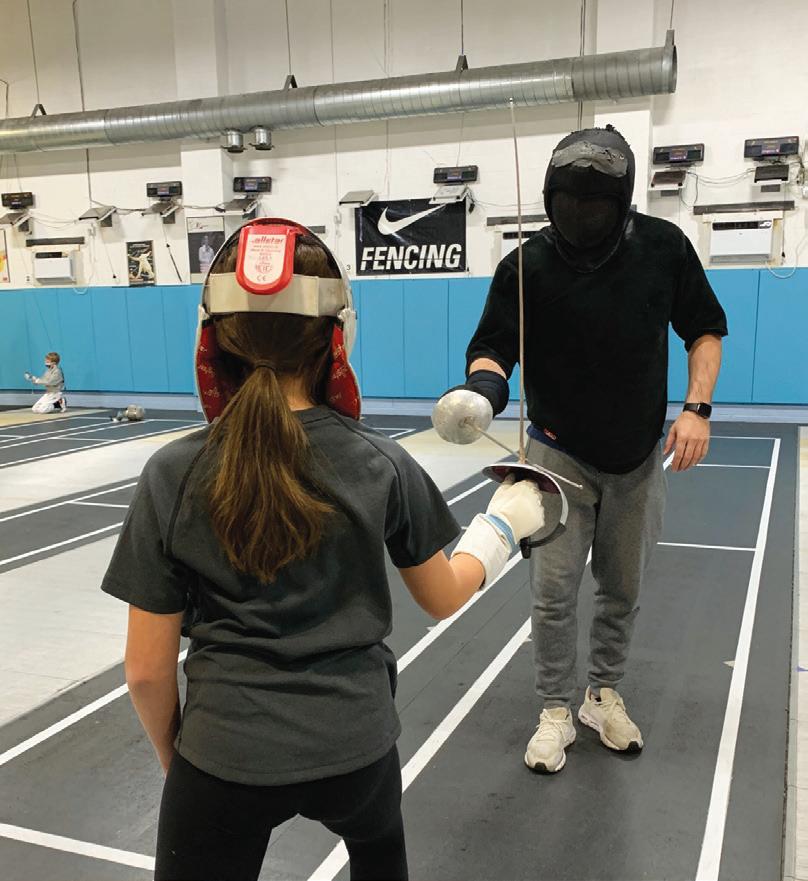

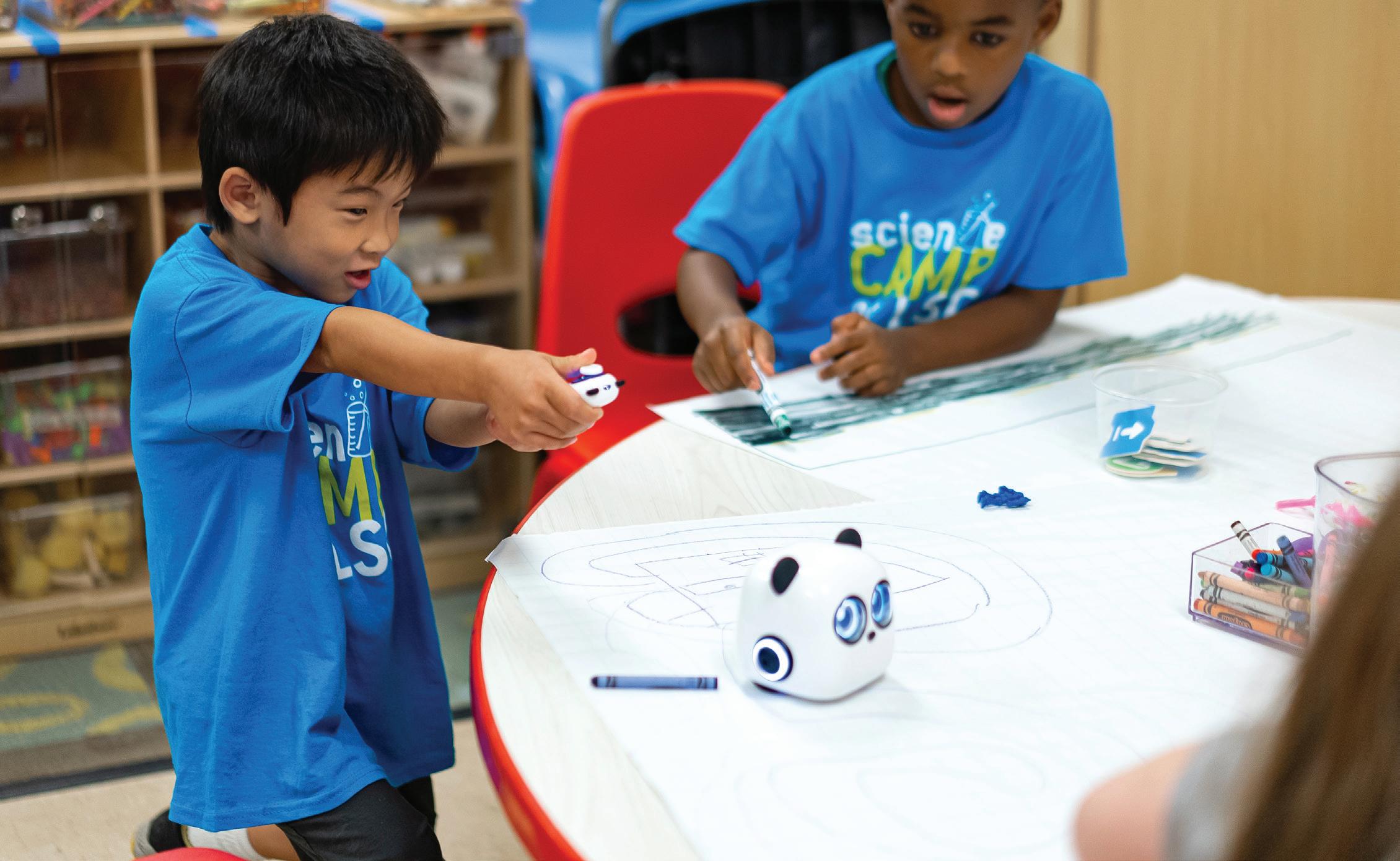

61 Camp for All for Kids
A mom of a daughter with autism shares her camp experience.

65 Moody Blues
How to help kids cope when they aren’t ready to say goodbye to summer friends.
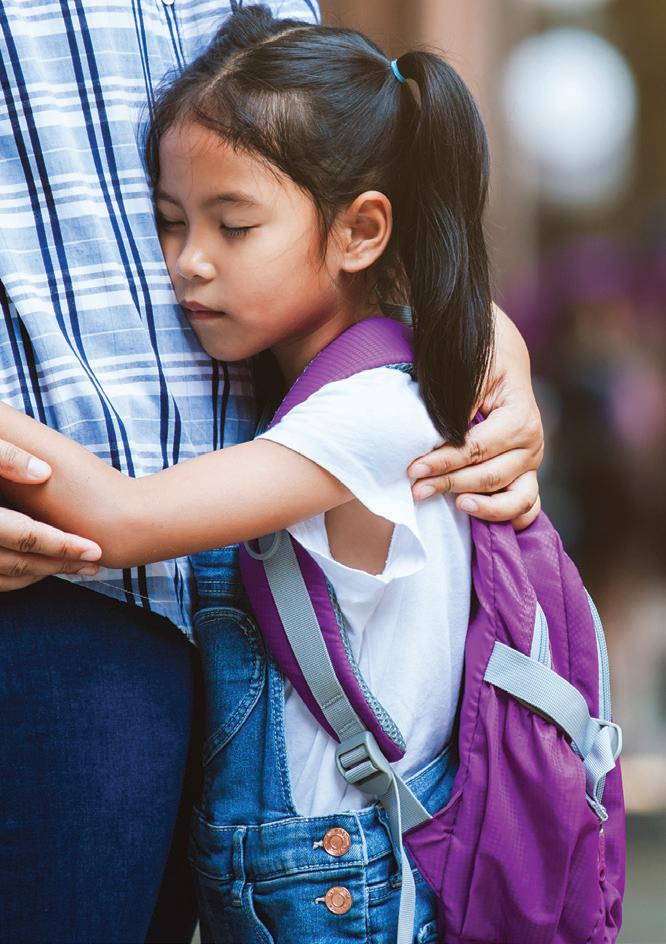

68 Counselors in Training
Advice to prep your kids to become camp counselors
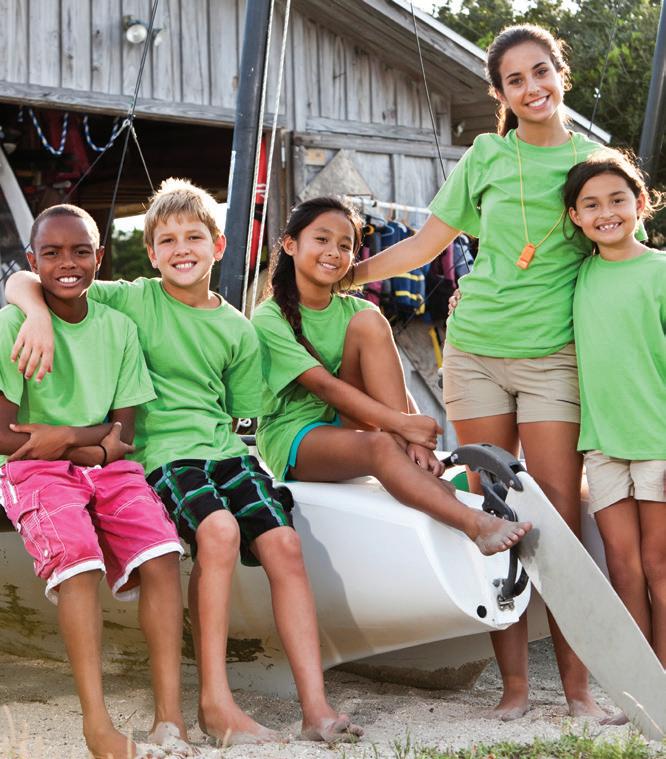
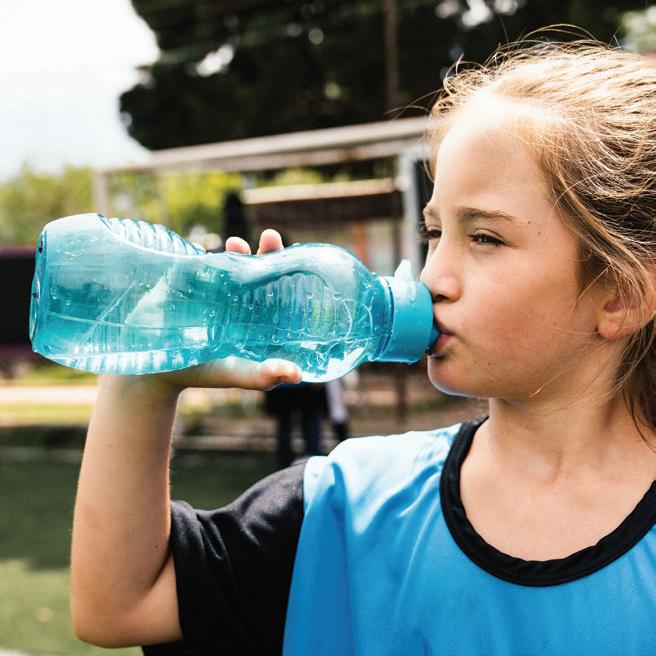
71 Ready, Set, Travel!
From globe trotting to experiencing life on a college campus, these programs make for an unforgettable summer for your teen.

Do you love your child’s dentist or orthodontist? Tell us and help another New Jersey family get the very best care.
Pediatric Dentist/Orthodontist | Madison Dr. Carter is so patient and calming. She gets my 3-yearold to cooperate. He loves going to the dentist and getting a prize. I love her expertise in craniofacial orthodontics which means we don’t need to go to NYU or CHOP for care.
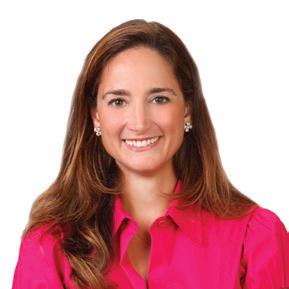
—K.R., MADISON
Orthodontist | Hillsborough/Somerville
Dr. Peterman and his staff are very kind, considerate, helpful and compassionate in every way. At the beginning of this process, we were apprehensive about how everything was going to work out. My daughter was very nervous and scared, but they reassured her and prepared her for each visit so nothing was a surprise.
—N.M., BRANCHBURG
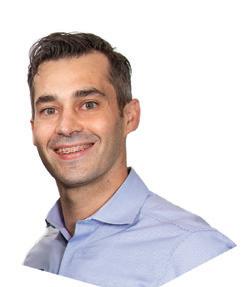
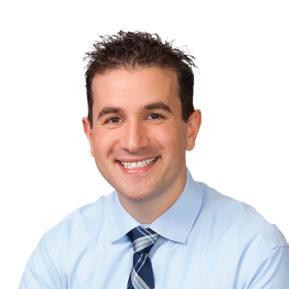
Pediatric Dentist | Cedar Knolls/Hackettstown/Newton
Dr. Pete is the best. Our daughter loves going to see him. He is not only professional, his fun personality is super contagious. Going to the dentist is no longer a drag because we know we are in good hands with Dr. Pete and his staff. It is very clear that Dr. Pete has a true passion for dentistry and connecting with the families that he cares for.
—B.G., FLORHAM PARK

Pediatric Dentist | Edgewater
I wouldn’t take my kids anywhere else. My daughter was terrified of brushing her teeth when she was younger and Dr. Rose provided a stuffed alligator with fake teeth to ease her through her first dental visit which had to be performed standing as she wouldn’t sit. Five years later she loves to go to the dentist. The entire staff is great with kids.
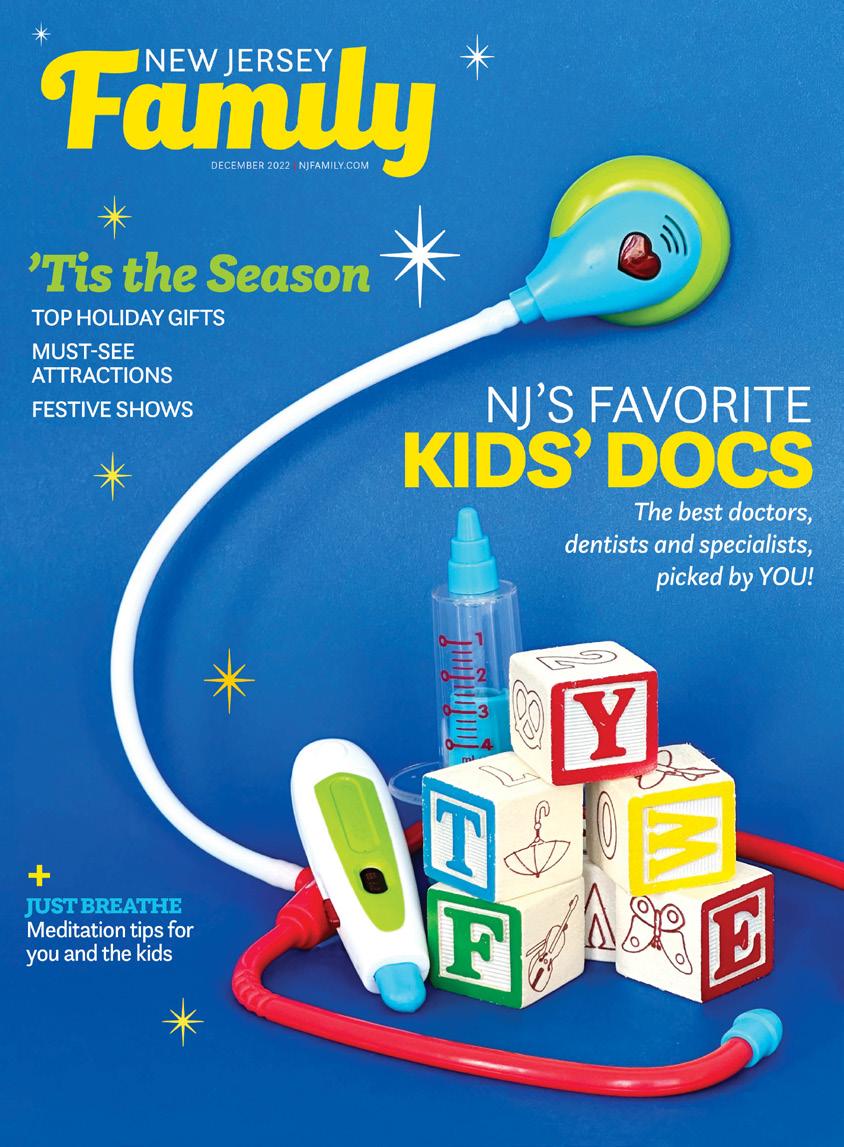 —P.S., NORTH BERGEN
—P.S., NORTH BERGEN
EDITORIAL DIRECTOR | DINA EL NABLI EDITOR@NJFAMILY.COM
ART DIRECTOR | LEEZA HERNANDEZ
SENIOR EDITOR | RONNIE KOENIG
ASSISTANT DIGITAL EDITOR
JENNIFER AMATO
CONTRIBUTORS
HEIDI L. BORST
JENNIFER KANTOR
JENNIFER LESSER
JESS MICHAELS
NAYDA RONDON
ARRICA ELIN SANSONE
PRODUCTION DESIGNER


ROSA M. JOSEPH
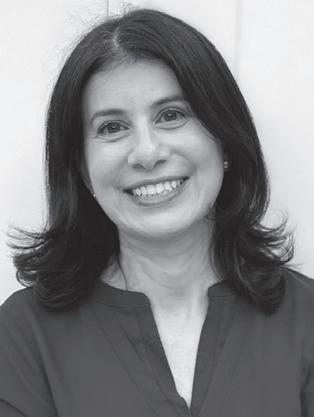
PRODUCTION/BUSINESS MANAGER
ERICA BARTON
PROJECT & CIRCULATION MANAGER
DIANE ERDENBERGER
DIRECTOR OF ADVERTISING

MARCY HOLETON
ADVERTISING REPRESENTATIVES
ANN CUSACK
CATHY GROTE
DEBBIE LUBRANSKI
BARBARA NASTRO
PAMELA PETERSON
ERIN SALMAN
ANDREA THORNE
FOUNDER | CINDY MIRONOVICH
The acceptance of advertising by New Jersey Family does not constitute an endorsement of the products, services, or information being advertised. We do not knowingly present any products or services that are fraudulent or misleading in nature. Editorial inquiries, calendar information, advertising rates and schedules, and subscription requests may be addressed to Kids Monthly Publications, Inc., P.O. Box 669, New Providence, NJ 07974-0669 New Jersey Family can be reached by calling 908-9751800, emailing editor@njfamily.com, or by visiting our website, njfamily.com. New Jersey Family is a woman-owned business and has been recognized for editorial and design excellence by the Parenting Media Association.
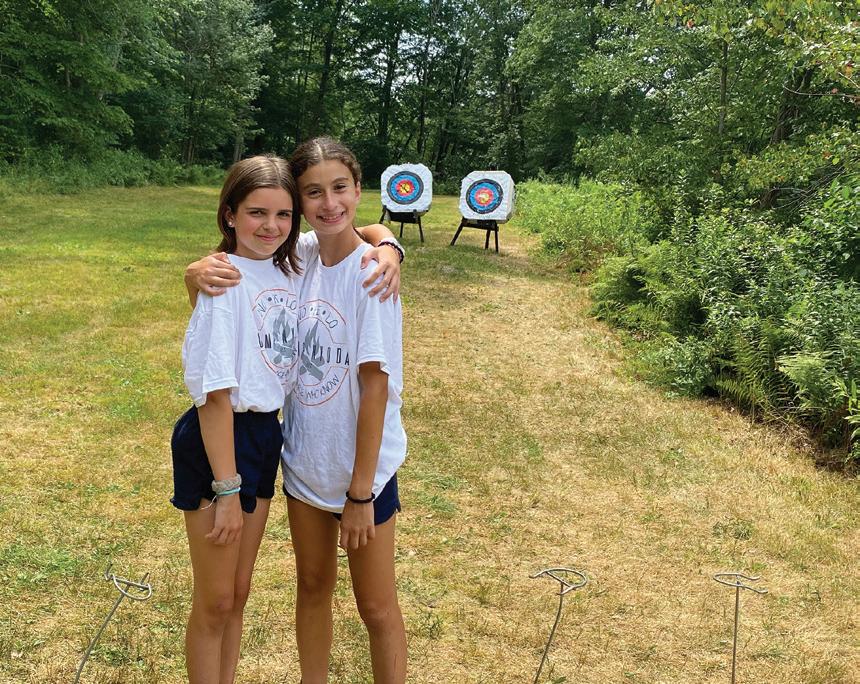
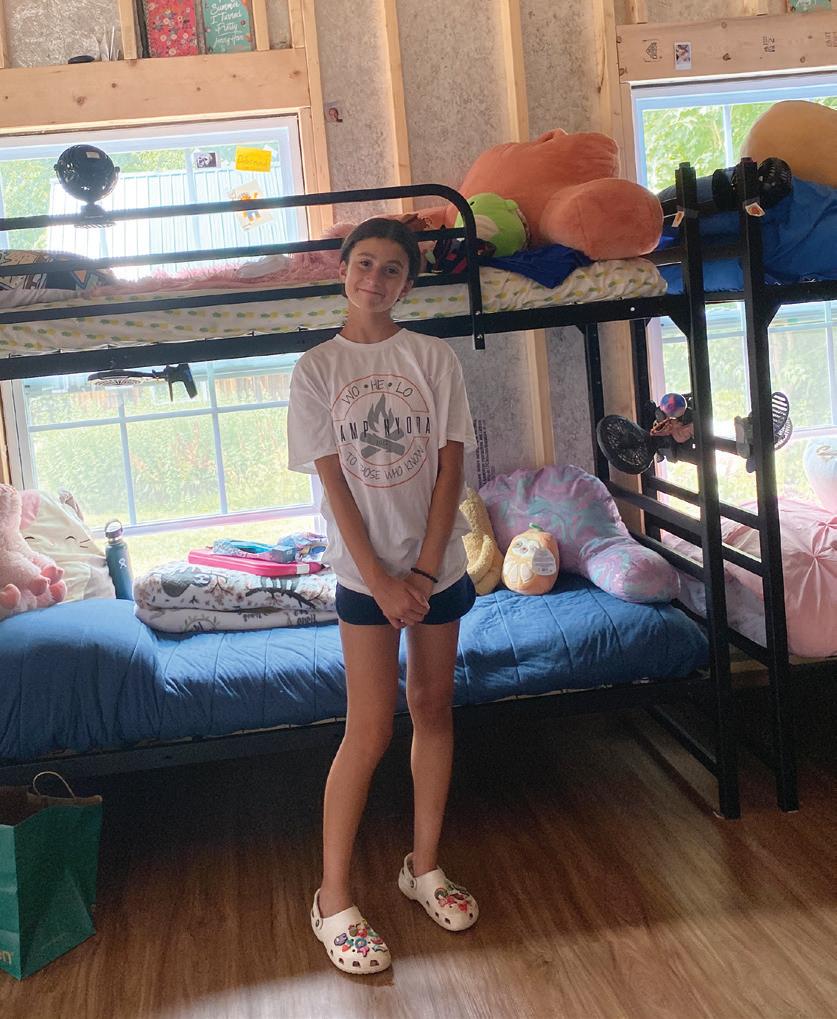
As a child of the ’80s, I appreciated a meme recently shared on my Facebook page showing a pile of bikes on a lawn with the words “How parents used to keep track of their kids.” It was a simpler time when summer was all about being outside with your friends and making sure to come home before dark.
In today’s age of iPads, phones and hyper-scheduled kids, summer camp is a throwback to that simpler time. It not only gives kids space to be outside with friends but it also gives them a chance to connect without the pressure of school and social media. Last summer, my daughter spent three idyllic weeks at sleepaway camp. From swimming and boating to archery and tennis, her days were filled with good old-fashioned fun. When it came time to go home, she wasn’t ready to say goodbye to these amazing experiences and her bunk mates. Her post-camp blues inspired our story on page 65 on how to help your kids adjust to being home after a magical experience at camp.
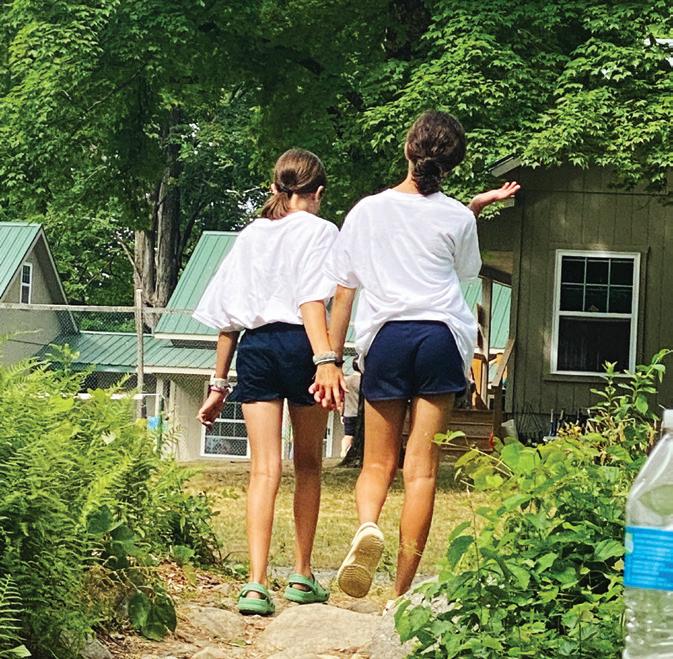
New Jersey Family is published monthly by Kids Monthly Publications, Inc., P.O. Box 669, New Providence, NJ 07974-0669. Reproduction of New Jersey Family in whole or in part without written permission from the publisher is prohibited. All rights reserved. Copyright 2023 by Kids Monthly Publications, Inc. Circulation audit by CVC, Circulation Verification Council.
Whether you’re sending your kid to a traditional day or sleepaway camp or looking for something that’s focused on their passion for the arts, soccer or STEM, this issue will help you find the right fit. It’s never too early to begin your search. Our story on preschool camps offers tips to find a great program for your little one. If you have a teen, we've rounded up advice on how to help them become counselors. You'll also find inspiration to plan a unique summer adventure abroad or on a college campus. If your child has different abilities, there are amazing experiences to be had at inclusive camps. Whatever your plan for the kids this summer, we hope it’s filled with lots of fun and connecting with friends old and new.



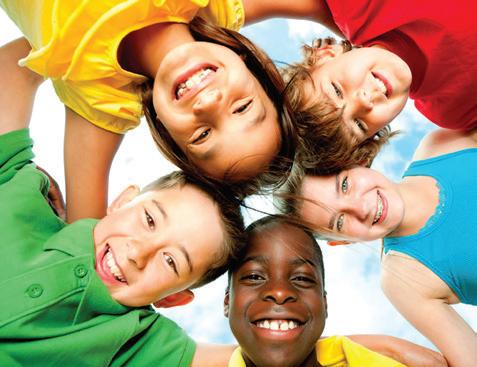


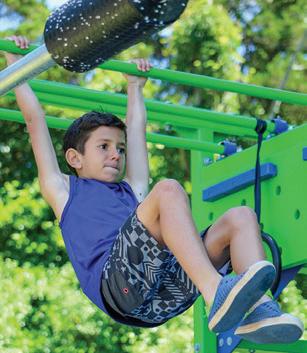

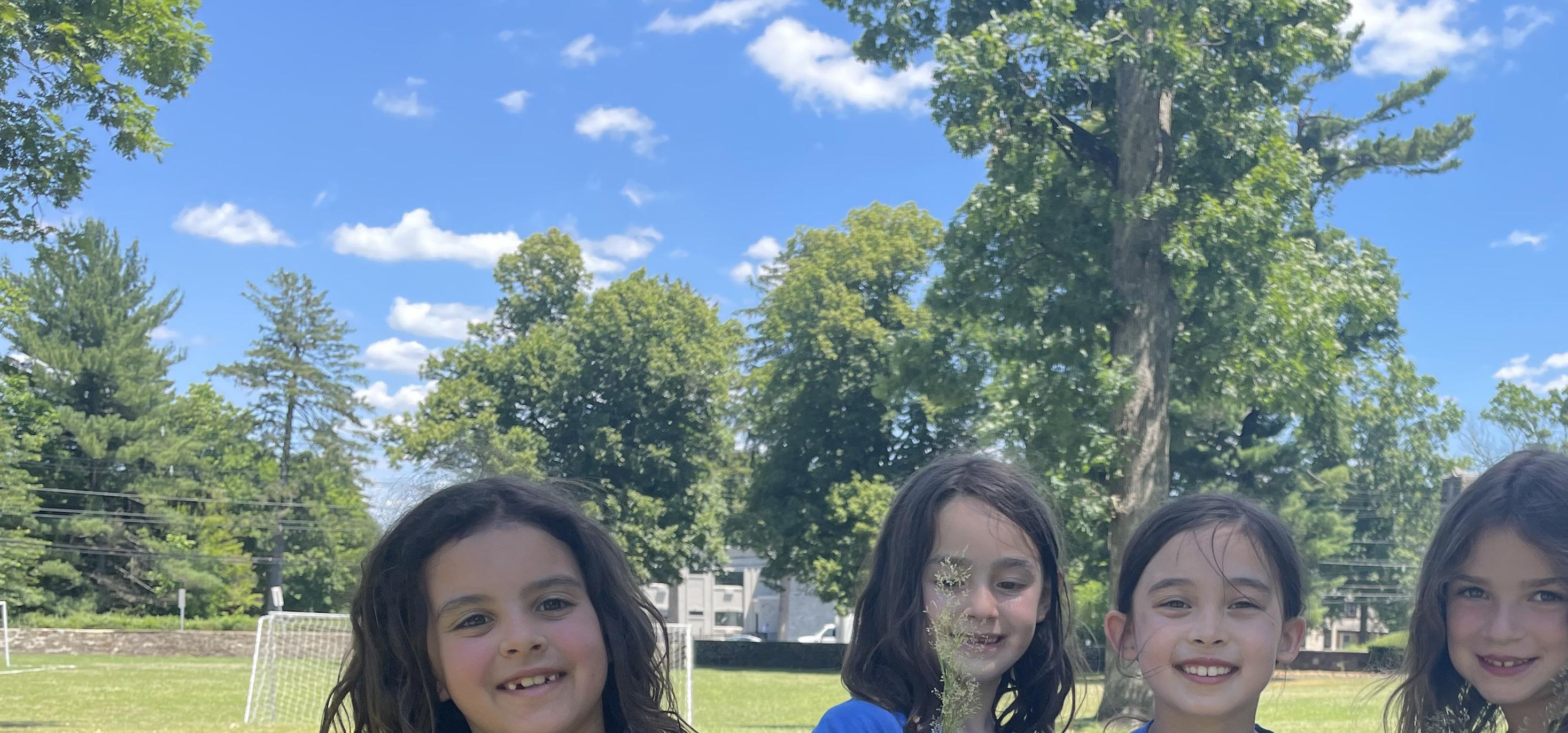



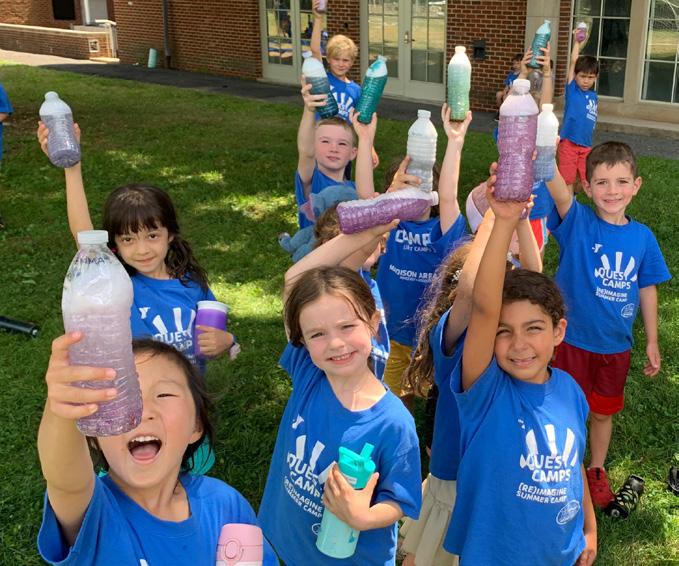





SUIT UP These cheerful swimsuits are UPF 50+ for excellent UV protection. Girls
Kids Recycled Print Swim
One-Piece and Boys 100% Recycled Polyester Camo Swim Board Shorts, Gap. $39.95 for girls; $34.95 for boys, gap.com
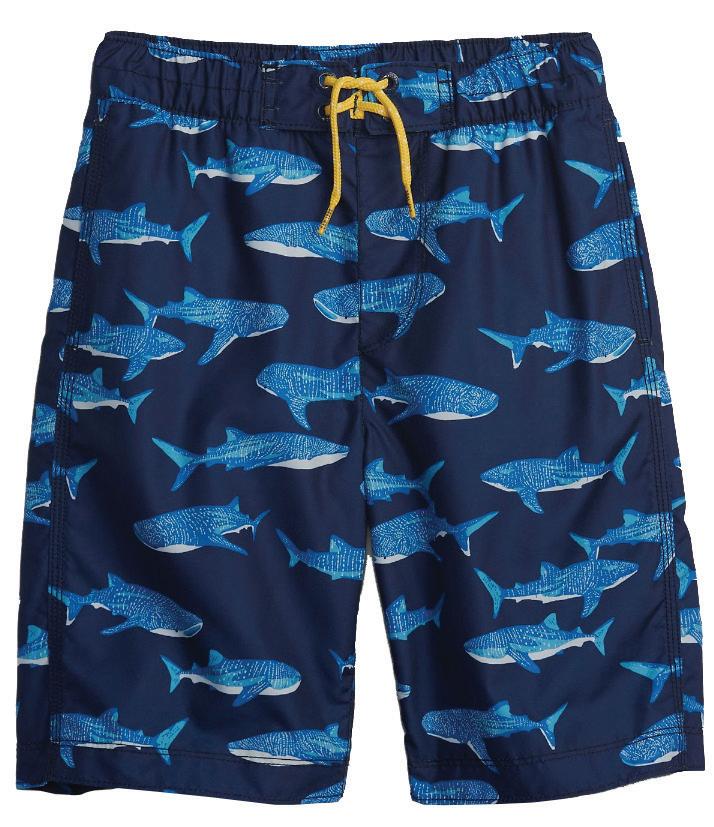

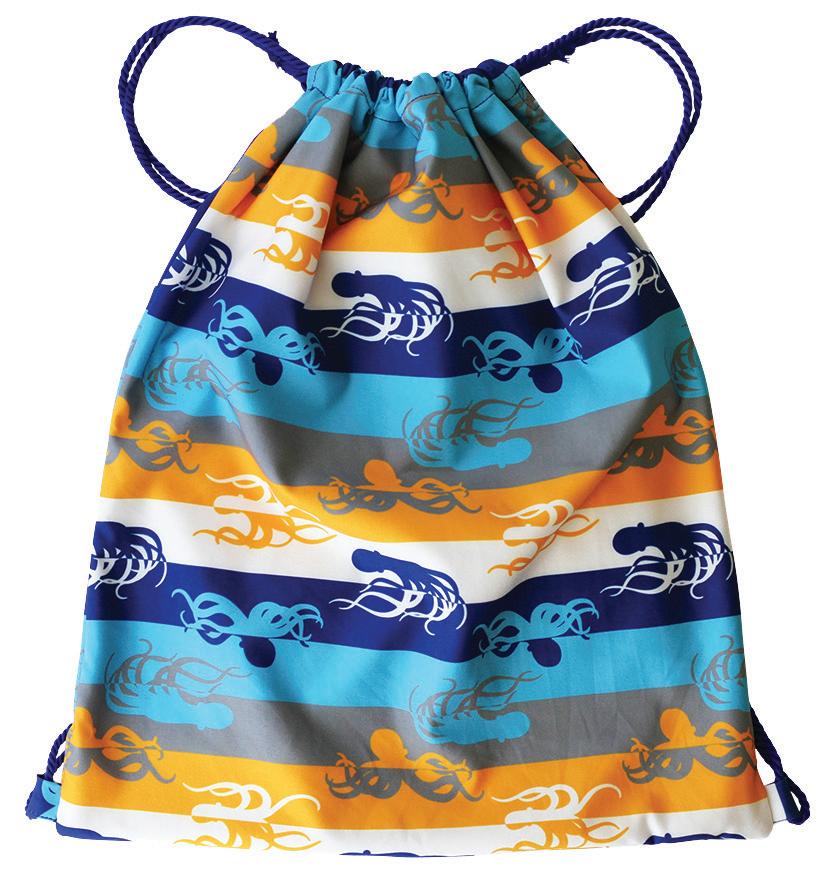
BAG IT UP Kids can use this bag to bring their gear to the pool or carry wet stuff without soaking everything else in their backpack— genius! Kids On-the-Go Swim Bag, UV Skinz. $18.95, uvskinz.com
BOTTLE POP An easypeasy, push-button lid makes this insulated, leakproof bottle a no brainer. Kids can sip through the hidden straw or chug. Owala FreeSip, Owala. $21.99 to $37.99 depending on size, owalalife.com
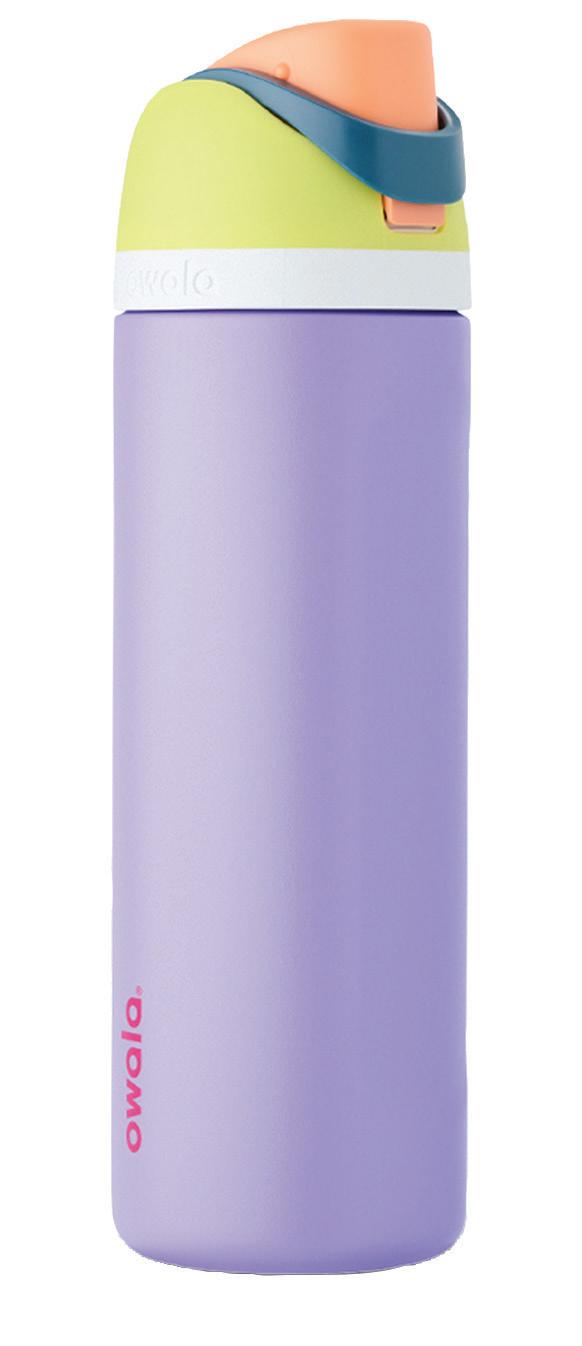
LOST AND FOUND
Make sure you have enough personalized clothing and waterproof labels for everything in your kid’s trunk. Labels come in a bunch of fun styles, too.
Custom Sleepaway Camp Labels Pack, Name Bubbles. $54.99, namebubbles.com
BUG OFF This comfortable band with essential oils and 15 days of DEET-free protection protects campers from bites. Mosquito
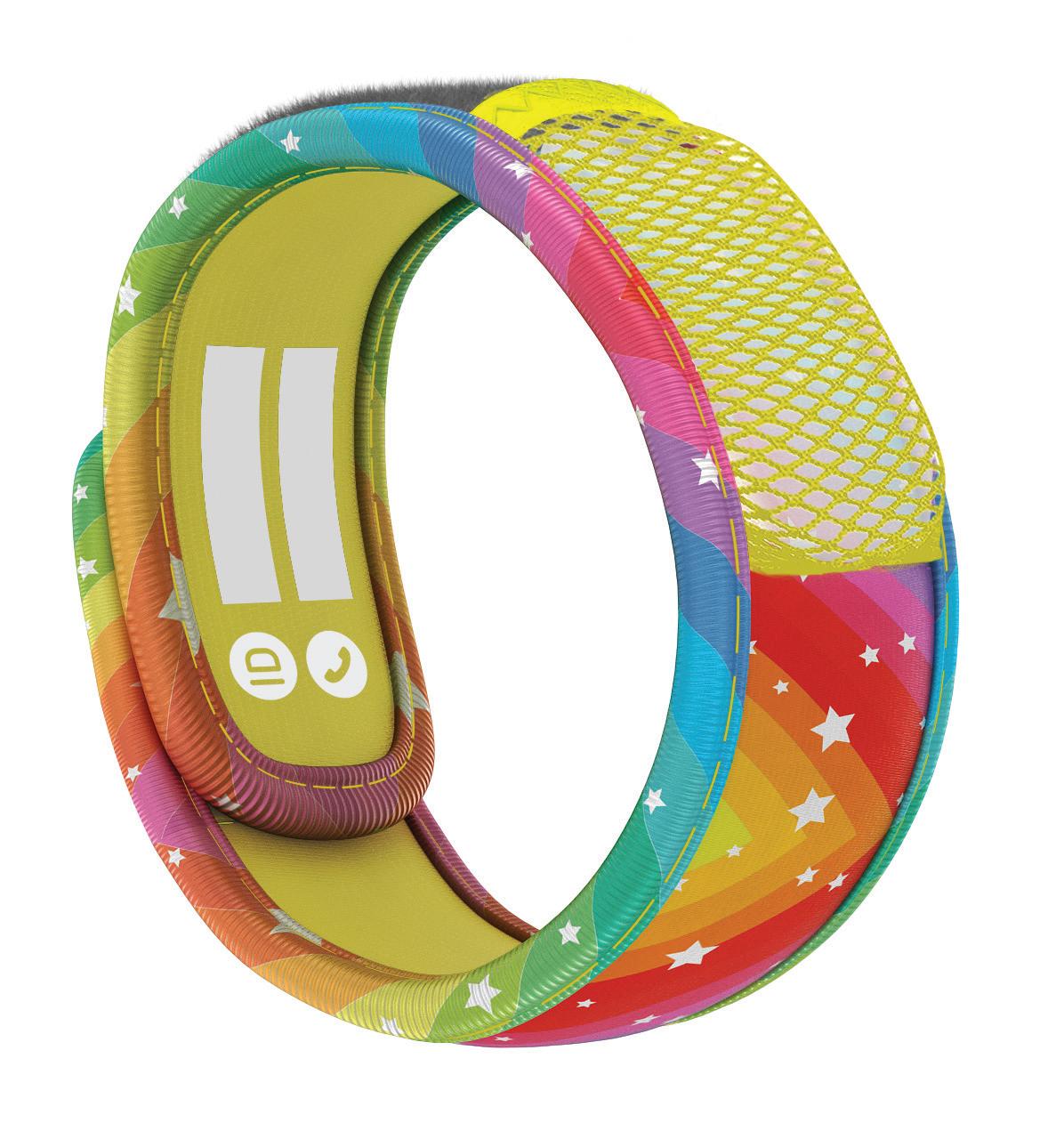
Repellent Bonus Pack, 2 Kids Wristbands, Para Kito. $26, us.parakito.com
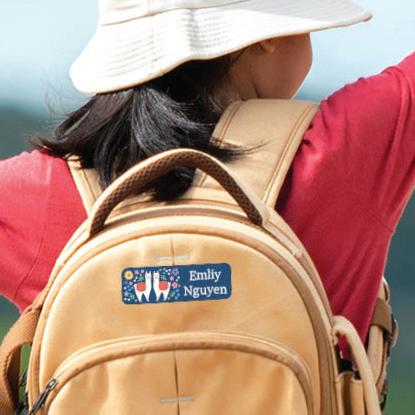

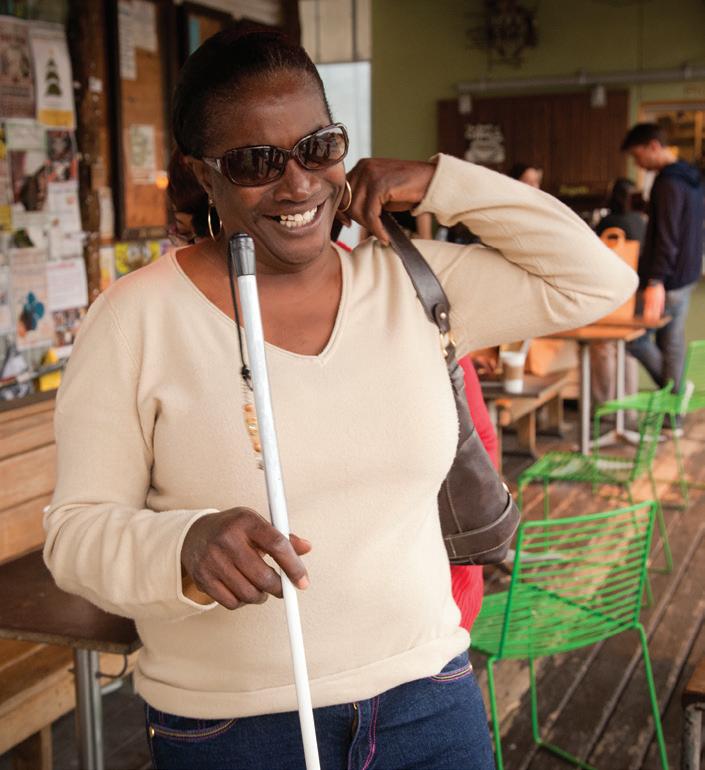
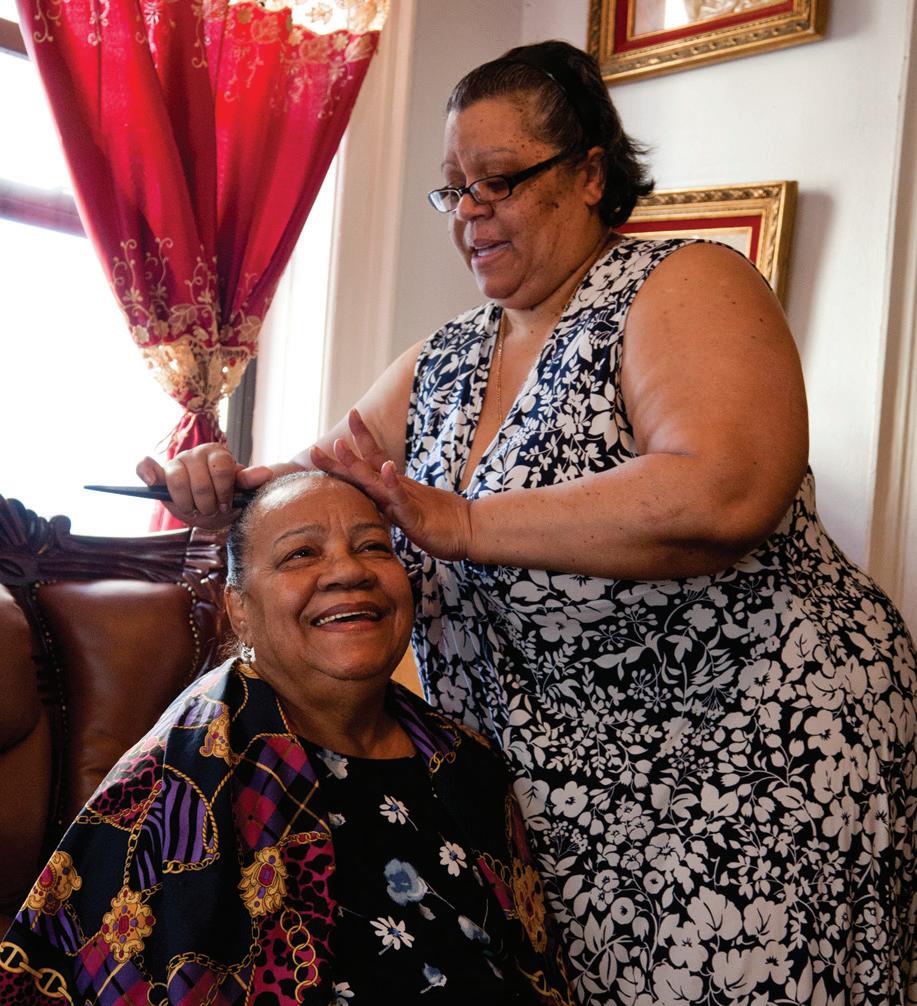
Whether it’s day or sleepaway camp, there’s plenty you can do to prepare your kids for a safe and healthy summer. “Camp is a great experience, but teach kids to speak up for themselves if they’re not feeling well,” says Joseph Schwab, MD, associate professor of pediatrics at Rutgers New Jersey Medical School in Newark. “They should know basic safety measures, such as checking themselves for ticks and how to put on sunscreen.” Here’s what else you can do to keep your kids feeling their best during their adventures:

Most day and sleepaway camps require health forms be filled out by your child’s pediatrician before drop-off day, says Schwab. Make sure to check if your kids are up-to-date on immunizations.
If your child needs daily medication or requires an EPIPEN, make sure that’s noted on the health form. Kids who wear braces or Invisalign should check in with the orthodontist to make sure they have plenty of supplies and are current on their visits before camp starts.
Schwab suggests parents ask about how emergencies are handled. “Does the camp have a relationship with a local ER or urgent care? How will they contact you in an emergency?” he says. “You also should inquire about camp safety policies and rules. For example, ask how many lifeguards are present for swimming, and if life jackets are required when boating.” The same goes for other activities such as horseback riding or biking, for which kids should be wearing helmets.
Every camp is different, but many are no longer requiring COVID tests. Ask your camp ahead of time so you know what to expect if your child isn’t feeling well. And don’t send your kid if they’re sick, though if there’s no fever, diarrhea or vomiting, they may be well enough to attend, but check with your camp, says Schwab.
Connect with the camp nurse ahead of time if your child has special medical needs or requires prescription medication. Also, ask where medications will be stored and how they will be administered, says Schwab. For example, can older kids use an asthma inhaler on their own or does the nurse or counselor have to keep it?
“Sunburn is probably the most common health risk at camp,” says Jeffrey Litt, director of East Brunswick Day Camp. “Fortunately, products such as sprays and roll-ons are much easier for even little kids to use.” Make sure it’s at least SPF 30 sunscreen, and pack a bottle, tube or stick (write their name on it!) in their backpacks. Camps usually have sunscreen breaks when counselors stop activities and have everyone reapply. Don’t forget SPF 30 lip balm, hats and sun-protective clothing, such as rash guards.
Many camps require kids to come with refillable water bottles so they can stay hydrated in the heat. “We’ll take group water breaks throughout the day because kids may forget to drink and can still get dehydrated, even when in the water,” says Litt. The bottle should be unbreakable, and one your child actually likes to
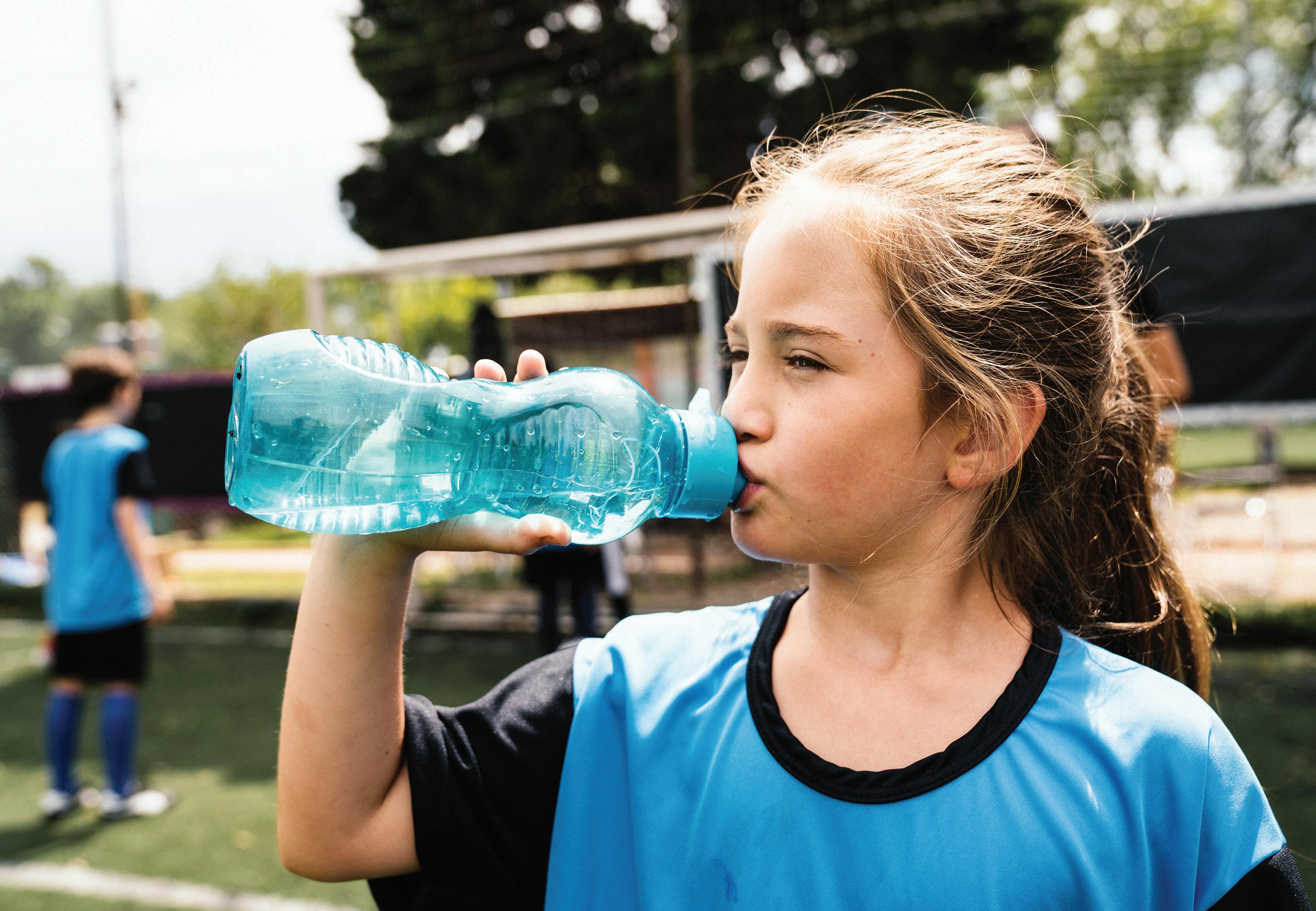
use. Again, label it with your child’s name.
For outdoor activities, kids should use repellents with 10 to 30 percent DEET or picaridin to prevent insect-borne illnesses such as Lyme, West Nile and Zika virus. But don’t use combination sunscreen and insect repellents because sunscreen needs to be applied every two hours, while bug sprays shouldn’t be applied that often. After hikes and other outdoor activities, teach kids to inspect areas such as behind the ears, on the scalp and even under clothing for ticks, says Schwab.
Sneakers and socks are generally required at camp, so have your child break in new shoes a few weeks ahead of time, says Schwab. There’s nothing worse than shoes that pinch or cause blisters when you’re trying to have fun! Most camps don’t allow flip-flops or Crocs, except for around the water.
In case of an illness, anyone who’s authorized to pick up your child from day camp or sleepaway camp should be listed on the camp’s intake forms. Make sure to list at least two contacts. “Most camps check IDs and a pickup person needs to be on the list, or we have to go through a series of steps to ensure we can send your child home with them,” says Litt. “Even if it’s just the one time Grandma has to do it, she should be listed as an authorized pickup person to save everyone time and frustration.”

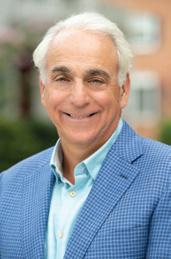
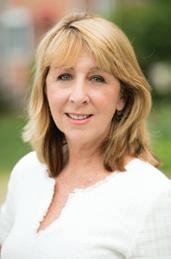
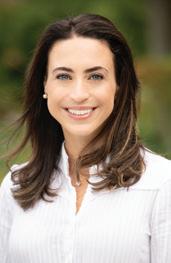
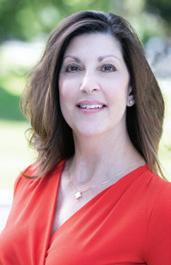




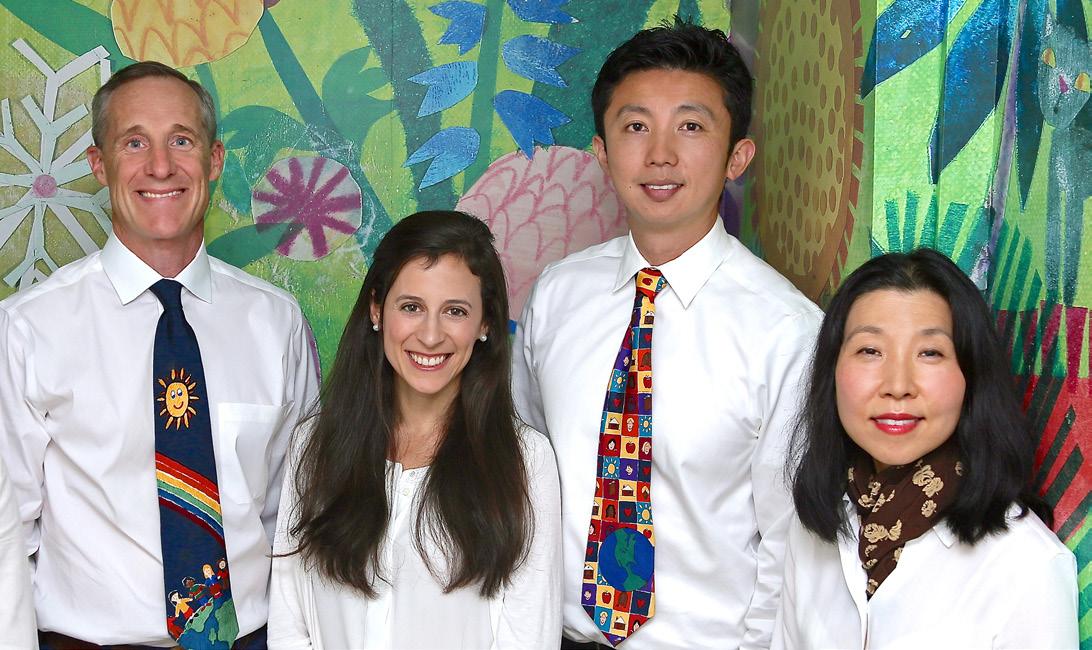


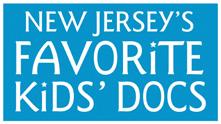

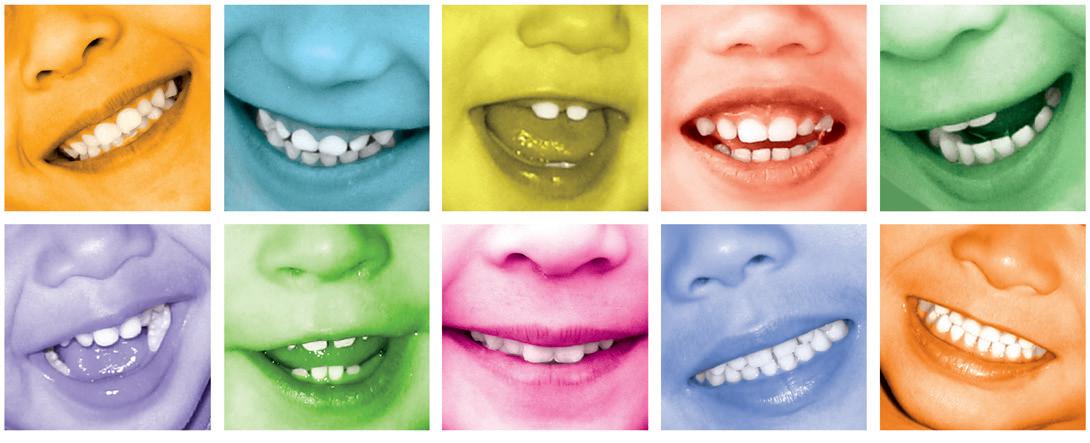


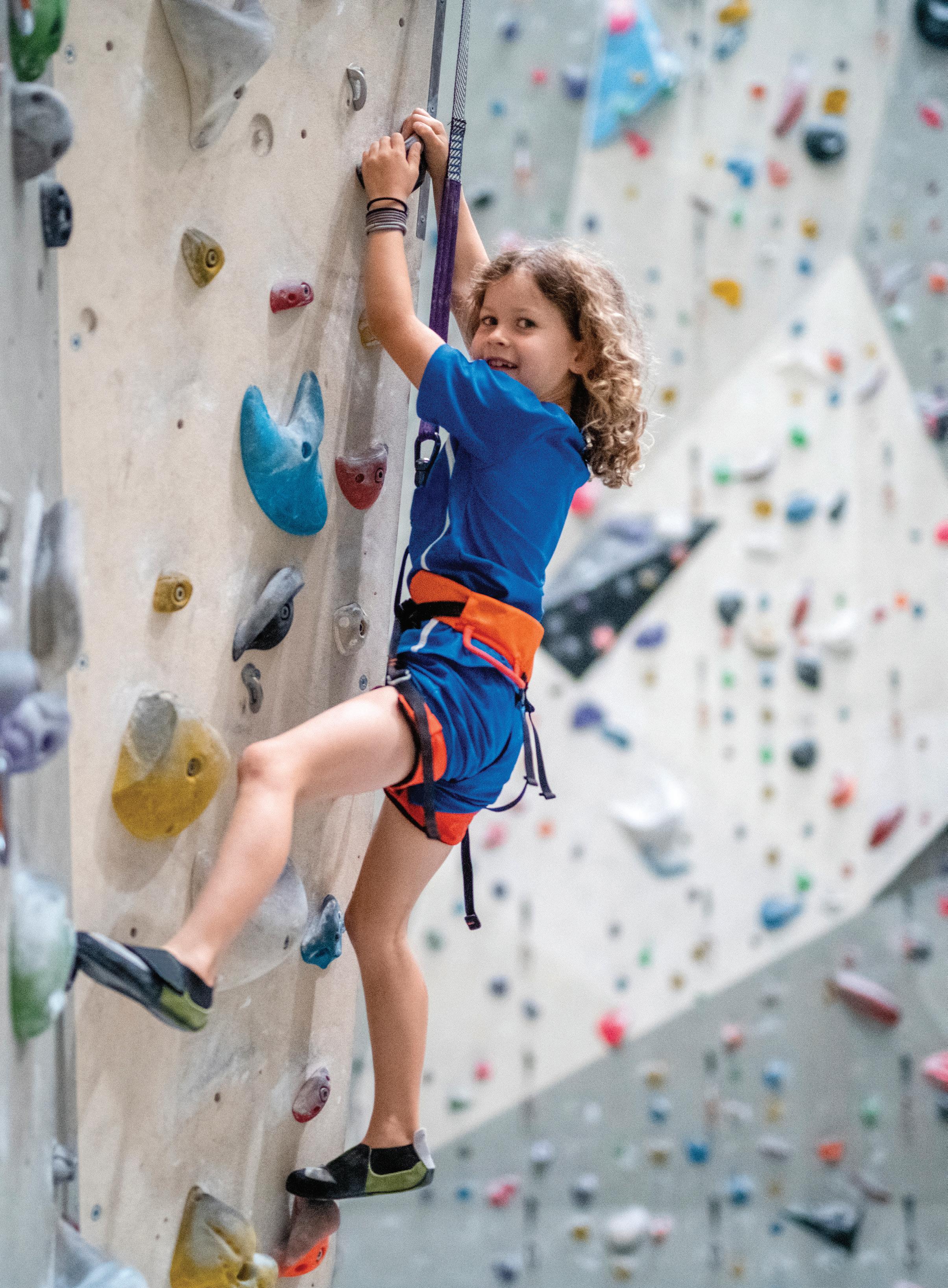
Beginning a summer camp search can feel overwhelming for families. With so many options, how should you narrow down the choices? The good news is that with a little bit of patience and research, you’ll find the right camp for your child and family. Here are a few tips to follow when looking for a day or overnight camp.
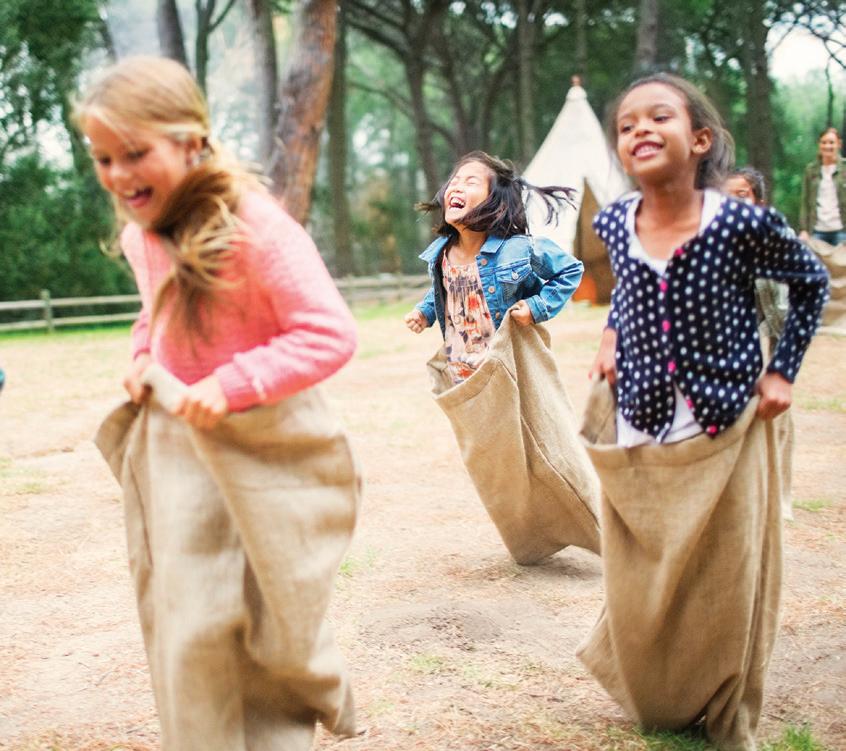
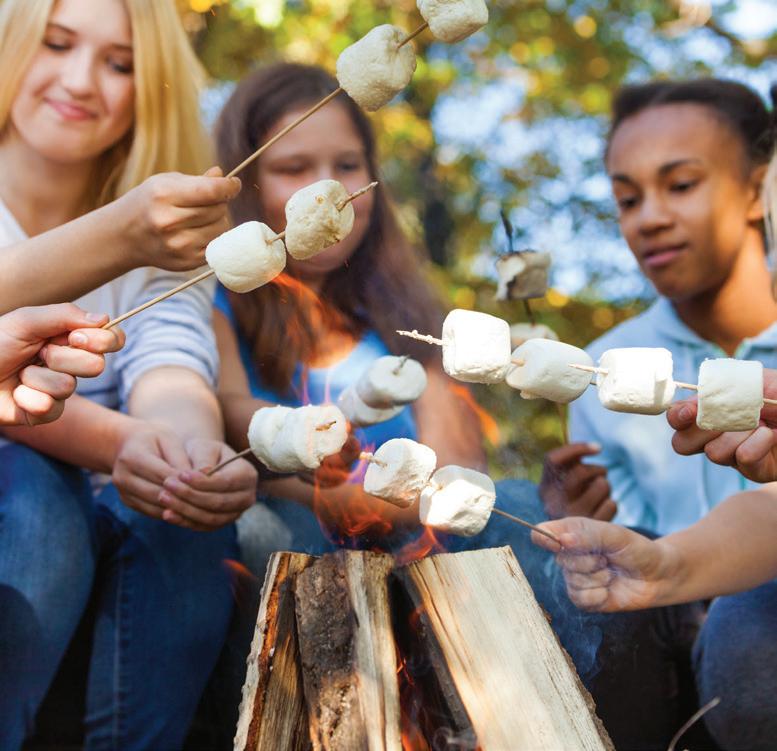
The first step is to think about who your child is and what type of program they will be successful in. Taking the time to really think about their personality and interests (and not your own) will make it easier to find a program that feels like a good fit. Does your child enjoy sports or the arts? Would they do better in an elective program where they choose their own activities or have a set schedule where they travel to activities with their group or bunk? Is your child outgoing or are they more introverted and need a little extra care? Once you’re able to describe your child, you’ll be able to have honest conversations with camp directors about whether or not a camp is a good fit for your son or daughter.
With so many camps to choose from, it’s important to decide what you’d like the camp experience to look like and what your goals are. Are you interested in just a few weeks of camp or the whole summer? Are you primarily looking for your child to gain independence and make new friends or do you want your child to walk away from camp having learned a specific activity? Honing in on what your goals are for the summer before you begin the search will help you narrow down the options.
It can be easy to choose a summer camp because your friend’s child goes there or because you’ve heard great things about it; however, taking the time to do your own research based on your child and their needs is highly recommended.

It’s good to hear from friends and neighbors about where their children go to camp and to learn about their child’s camp experience. Use that as a launch pad to do your own research. Most camp websites offer videos and testimonials that can give you a better sense of a camp. Check out their social media for pictures from previous years, too.
Take the time to look into other programs based on your family’s needs. Just because a camp is a good fit for one child, doesn’t mean it’s always going to be the best for yours. The one-size-fits-all motto doesn’t apply to summer camp.
Whether this is done at a camp fair, by Zoom, on the phone or in person while touring, one of the most important parts of your camp research is to talk to the camp directors at the camps you're considering.
And don’t just email, pick up the phone and speak with the camp’s leadership team. When you choose a camp, you’re forming a partnership with the director and you want to make sure you feel comfortable with them. Clicking with the camp director and feeling that you can be open and honest with them is imperative when choosing a day or overnight camp.
One of the best ways to get a feel for a camp is for you and your child to take a tour. It’s helpful to have an initial conversation with the camp director before scheduling a tour to be sure the camp is potentially a good fit before traveling to see it. Day camps offer tours all year. If you’re looking ahead at an overnight camp for summer 2024, you can set up a tour for summer of 2023. Visiting allows you and your child to see the facilities and ask questions about the camp while in the environment. Many people will say that after touring a specific camp, they just had a good feeling that this was the one.
Since it’s difficult to tour overnight camps in the off-season when they are closed, camp directors are often available to do home visits to get to know your child and family. Home visits give both the director a chance to see if the camp would be a good fit for your family and for you to get a feel for the leadership there.
Many day camps and overnight camps offer open houses in the spring and fall so families have a chance to visit. During the open house, families get the chance to walk around and even participate in some camp activities. These days give you the opportunity to talk to the director and leadership team in the camp environment. Like touring, going to an open house lets your child feel like they’re part of the process of choosing their camp.
The American Camp Association (ACA), NY and NJ offers families free, individualized advice to help find the right camp for children based on their needs. At any point in your search, you can contact Renee Flax at 212-391-5208 or renee@acanynj.org.
If you follow these tips, do your research and keep your child’s temperament and interests in mind, your camp options will become clearer and your child will be on their way to their greatest summer adventure yet!
rockaway orthodontics
“where great smiles begin”
Newton-Sparta Pediatric Dentistry & Orthodontics

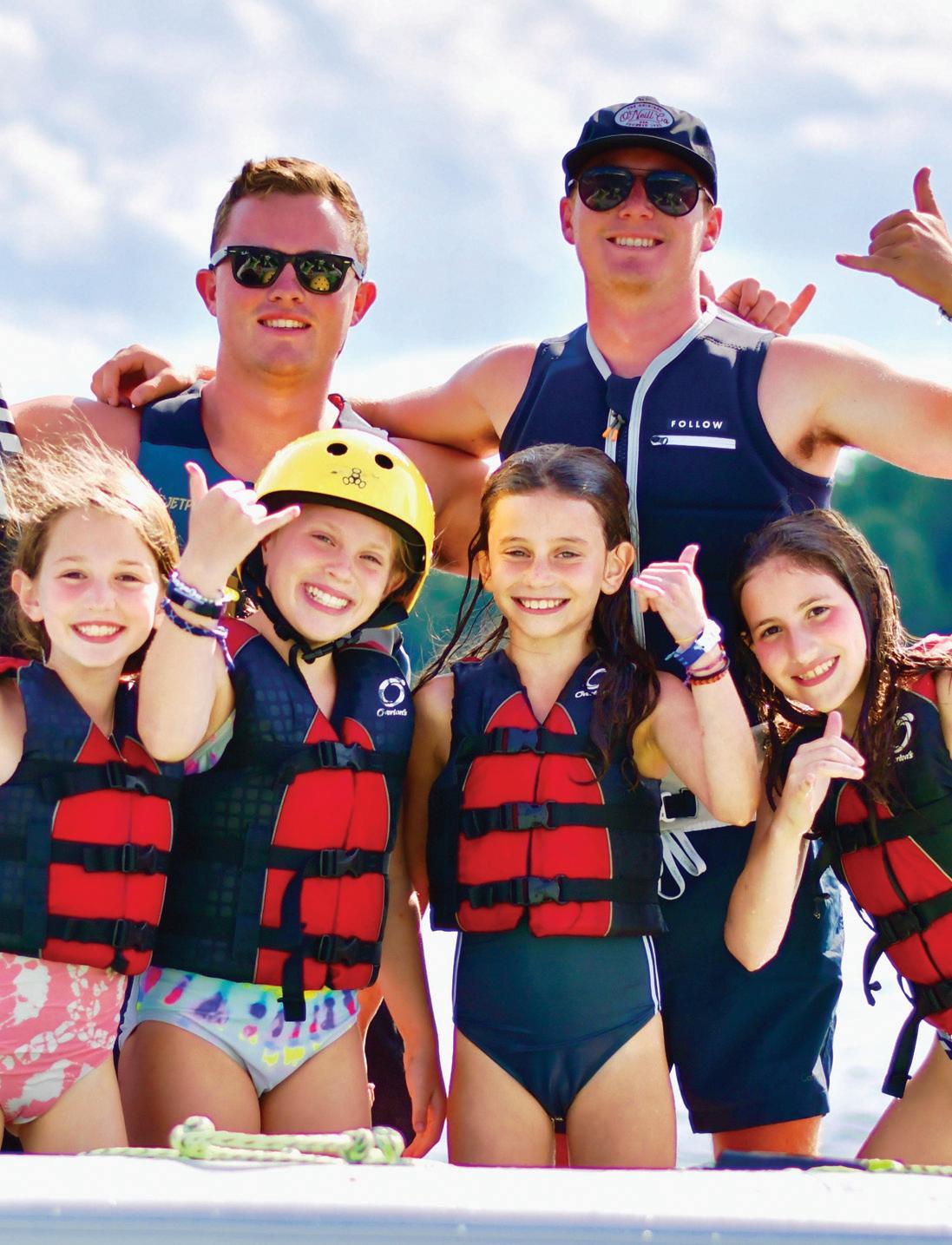


It is orthodontics with a mom’s touch!
rockaway orthodontics

“where great smiles begin”
It is our mission to provide the highest quality orthodontic treatment in a warm, nurturing environment. We strive to create beautiful smiles through individualized treatment, in which our patient’s comfort is our highest priority.

• Consultations are Always Complimentary
• Most Insurances Accepted
• No Down Payment and Interest Free Financing
Melissa Roberto, DMD Orthodontics for Children & Adults
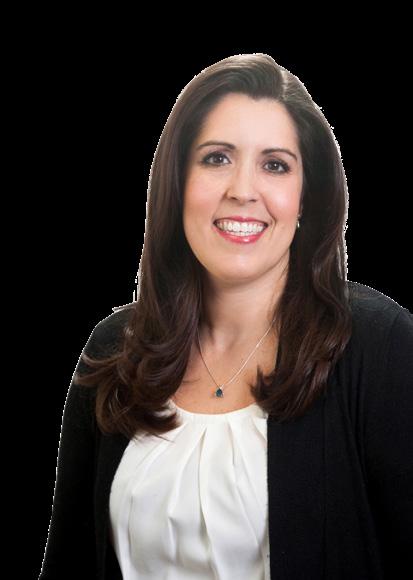
for infants, children, adolescents & special needs patients

Pediatric: Michael Lateiner, DMD Peter Paradiso, DMD and Associates
Orthodontics Kevin Lehnes, DMD
11 Lawrence Road, Newton
New
Pediatrics: Melissa Libert, D.O., Radhika Patel, FNP
Internal Medicine: Jim C. Chang, M.D., Unnati Tailor, D.O.
Gastroenterology: Jim C. Chang, M.D.
Big Enough to Cure, Small Enough to Care Williamson Building 245 Main St., Ste. 300 Chester West Wing Medical Plaza 657 Willow Grove St., Ste. 401 Hackettstown 908.850.7800 • www.pfcmd.com
TIPS TO FIND THE RIGHT PLACE FOR YOUR LITTLE ONE TO EXPLORE AND HAVE FUN
 By JENNIFER AMATO
By JENNIFER AMATO
Camp is an adventure for kids of any age, but for little ones it may be their first opportunity to make new friends, learn to follow a schedule and explore a novel environment in a setting designed just for preschoolers. How do you know which camp is best for your child and which age is ideal?
There's no magic age for a child to begin attending camp, but there are signs your child is ready to try something new, says Amanda E. Fink, director of curriculum and instruction for The Westmont Montessori School in Mendham. Parents should look for signs of independence, such as being able to stay with a babysitter or friend, their ability to self soothe and curiosity for the world around them, she says. That means kids can generally start their day camp experience as young as age 2—but make sure you ask if they need to be toilet trained.
“While this is an exciting time for children, families often experience anxiety about letting their children go to camp,” says Kristina Koonce, senior marketing and communications specialist for Apple Montessori Schools, which has multiple locations throughout New Jersey. “We ask families to help provide peace of mind by researching and asking the staff questions. Focus on the reason they chose to send their child to camp. …This time at camp allows children to continue developing academically and socially while having fun and meeting new friends—all in a safe and loving environment.”
There are so many camps to choose from, including full-day, halfday and camps held inside or outdoors—but they should always be developmentally appropriate, says Fink.
“Camp should encourage children to explore, be creative and be challenged to try new things,” she says. “Ideally, a good summer camp should have activities that engage children to learn while doing, rather than to sit and be entertained. Nature exploration, arts and crafts, and science experiments are wonderful for all children even as young as 2 years old.”
Linsey Cozewith, marketing and communications director for the Madison Area YMCA, says kids at a young age learn and get more comfortable socializing with their peers. The youngest and first-time campers may be shy at first, but camps will engage them in teambuilding games and fun activities so they’ll quickly warm up, she says.
“Other ways we see kids learn and grow at camp is by looking at where they started the summer with us, and then seeing all the new skills gained and friendships made by summer’s end,” she says. “The growth over the summertime can be just incredible for our preschool-age campers. Many campers learn swimming skills, play a new sport, and grow their social skills. They practice independence, empathy, responsibility and build their self-confidence. Throughout
the summer, our campers realize who they are and what they like to do by trying new activities.”
Summer camp should take a balanced approach, and especially for campers so young, fun should be at the forefront, says Koonce. But summer learning also has a proven, positive impact on both a child’s academic and social-emotional development, she says. While doing everyday camp activities kids are learning to navigate many of the situations they’ll encounter at school.
Camp helps kids learn the importance of a routine early on. “Each day at camp, we have a routine, including morning meeting, activities, lunch, afternoon activities and closing circle,” Cozewith says. “We teach our campers many important lessons that will help them throughout the school day, including being respectful to others, sharing, waiting one’s turn and how to be a good friend.”
Supervision at camp is of the utmost importance, Fink says. Between 2-and-a-half and 4 years old there should be a ratio of 14 campers with one adult and one counselor (1:7). By age 5 the ratio changes to one adult and one counselor for each group of 20 (1:10).
Be sure to inquire about the supervision on the buses camps use for transport to and from camp and on field trips, Fink says. You should also ask about the procedures for boarding buses and buckling kids into their seats.
Before signing your child up for camp, double check any COVID restrictions or safety requirements that change throughout the year, at the state, federal and local government levels.
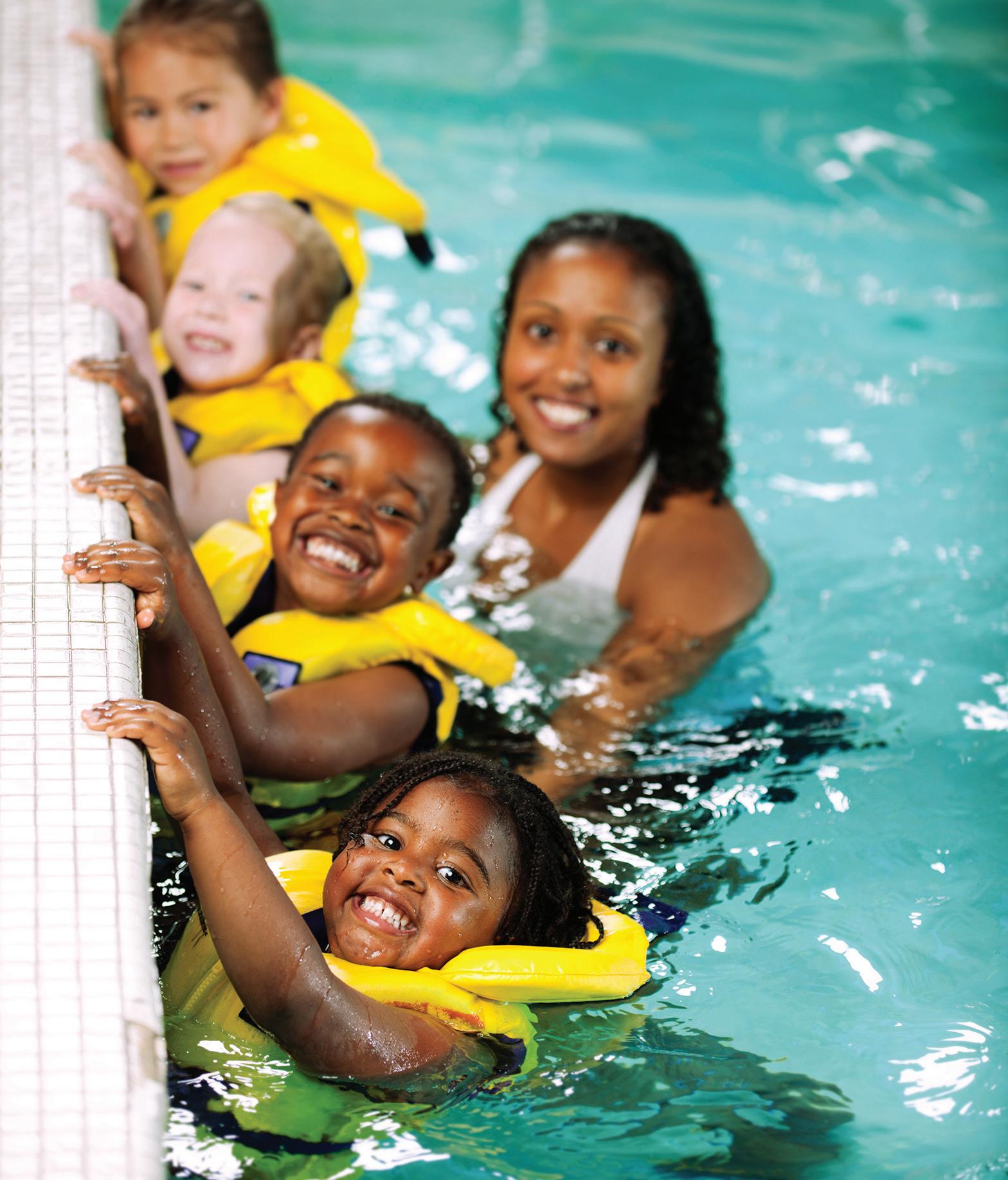
Camp is a time where children develop lifelong skills and independence, learn teamwork, and build self-esteem, so the earlier you start them on this journey, the better. There are so many other benefits, too.
Says Cozewith: “Camp is a place to make and build new friendships, a time and freedom for spontaneous play, filled with screen-free activities, a structure that supports healthy eating and physical activity, a connection to nature, and is a safe environment to promote growth.”
“By engaging in team-building games and exciting activities, campers quickly warm up and come out of their shell.”
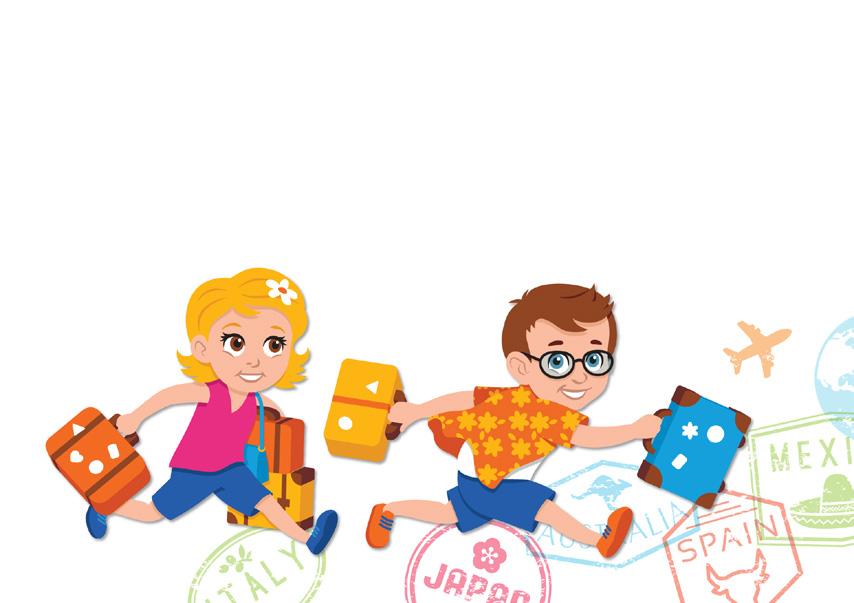
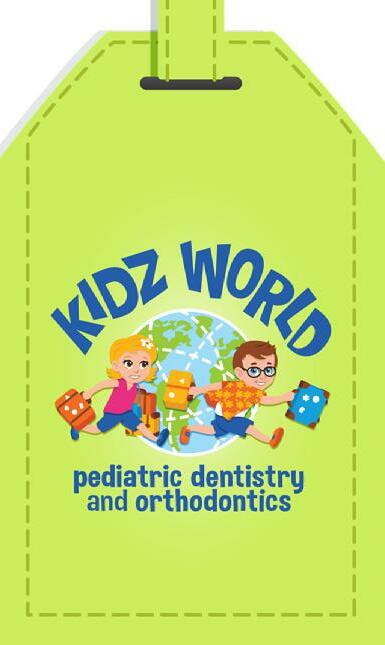
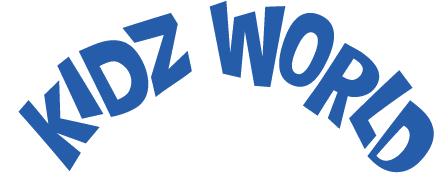


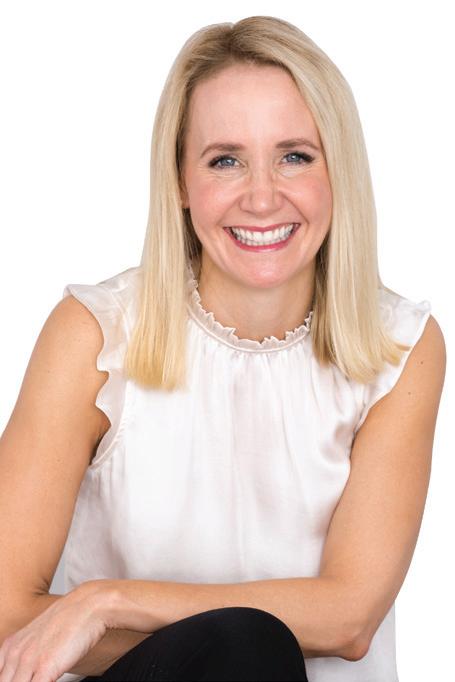
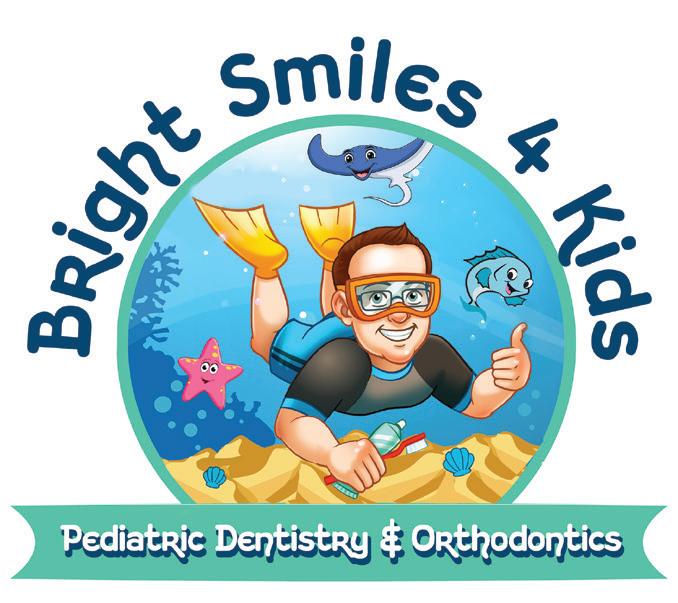


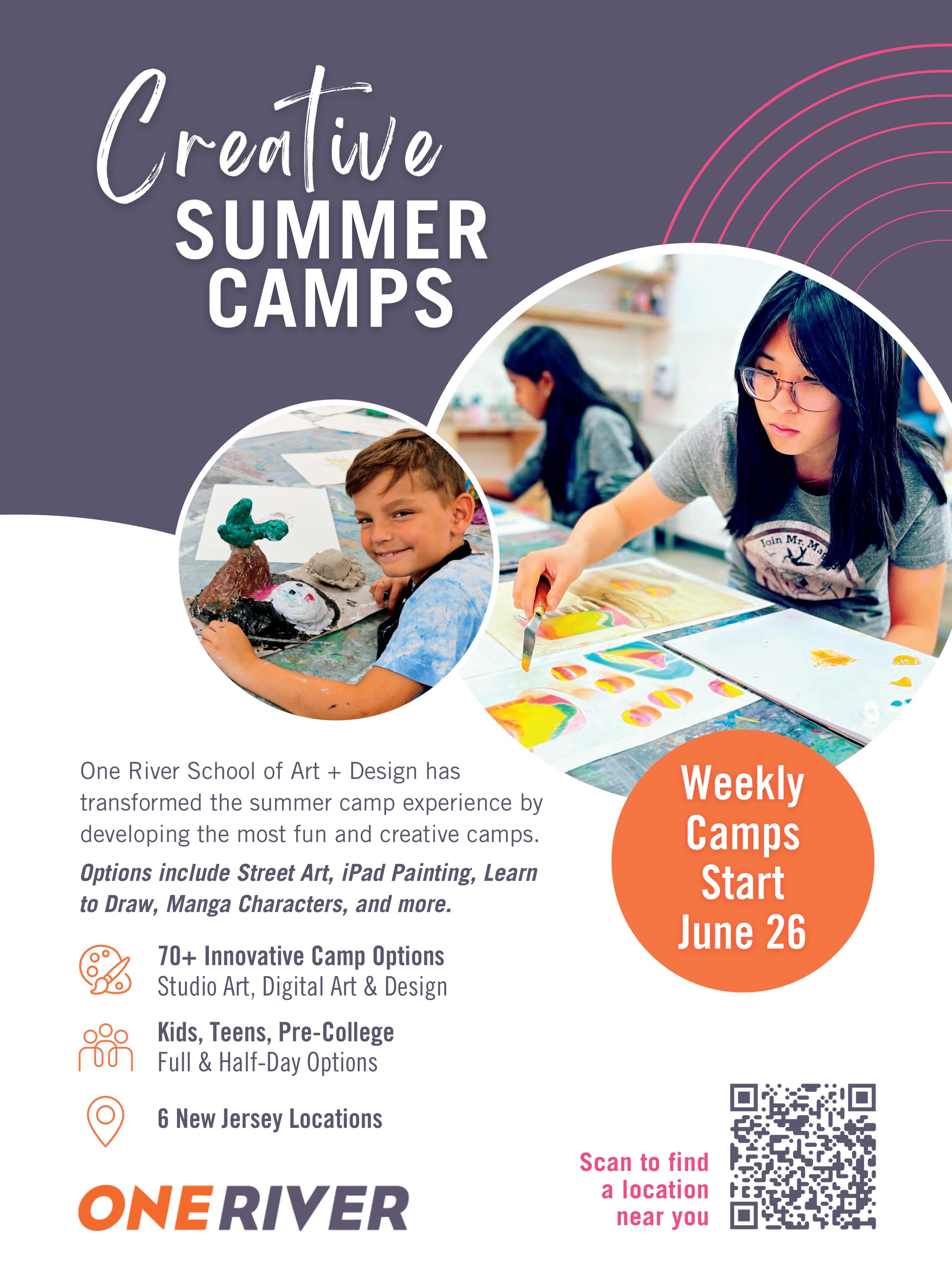
No matter what your kids’ interests are, there’s a summer camp out there for them. Choose from academic, performing arts, sports and so much more!

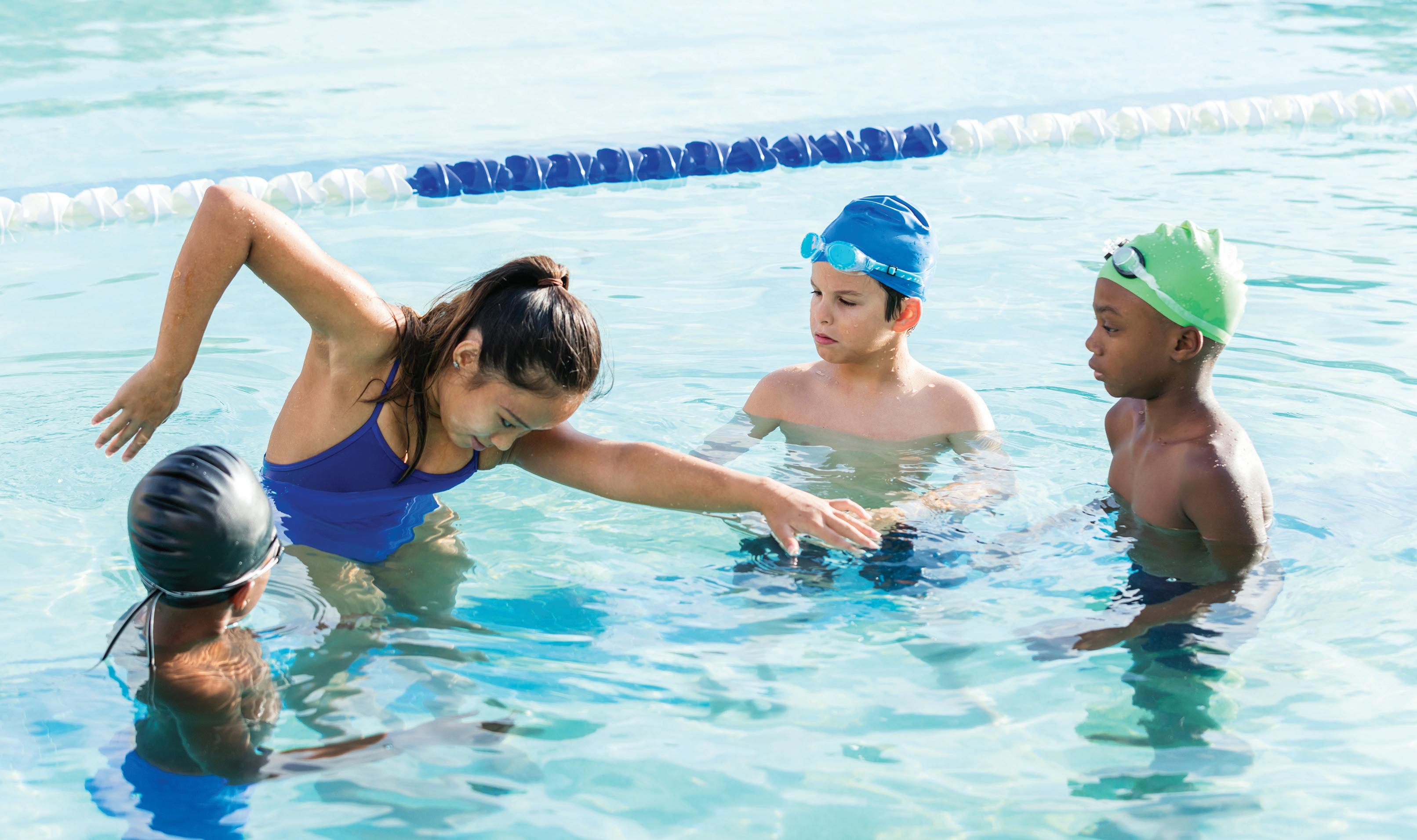
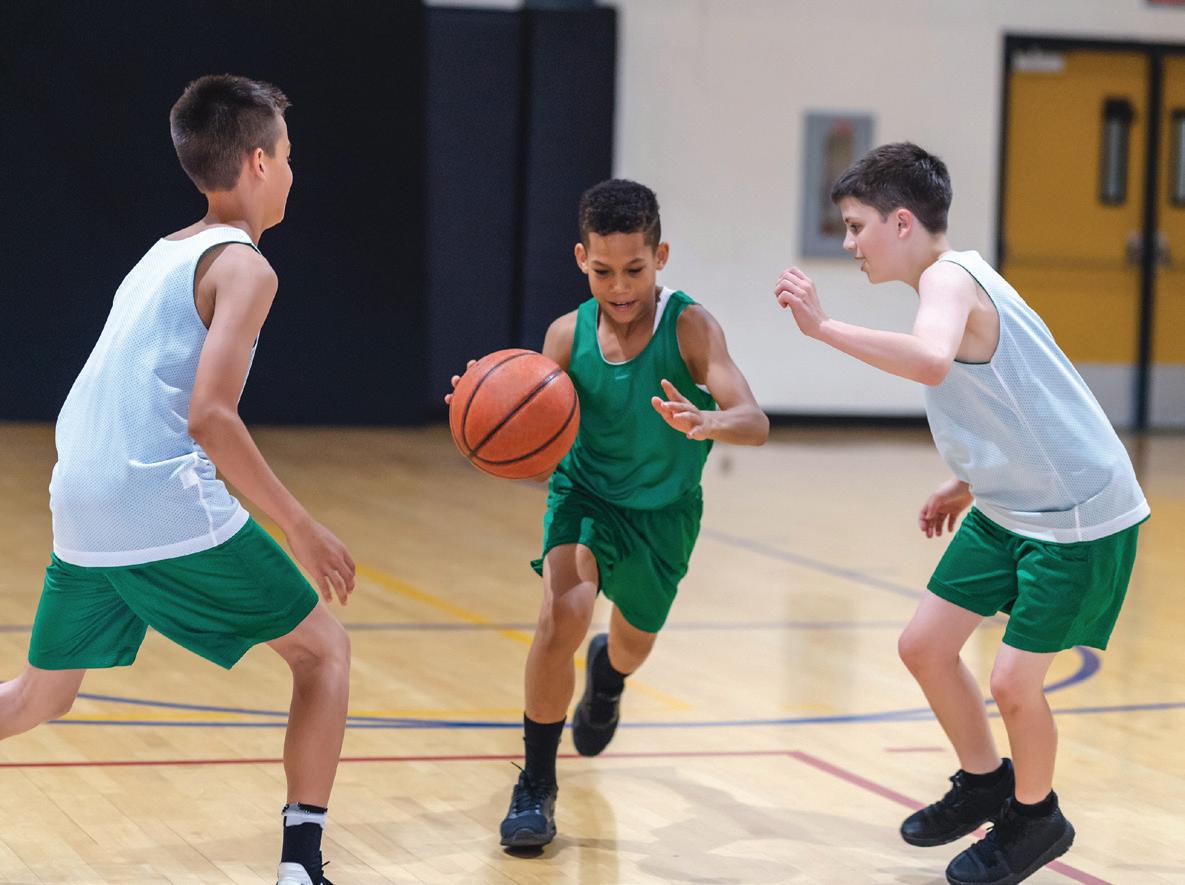 By RONNIE KOENIG
By RONNIE KOENIG
The Elisabeth Morrow School elisabethmorrow.org
Englewood
Camp meets classroom at Summer Explorations (for kids age 2 through grade 9), with selections that delve into genetics, chemistry, mythology, history, astronomy and more.
International Ivy iisummer.com
Multiple locations
Hands-on, in-person STEAM learning (think engineering, math, programming) will keep your child age 3-15 in peak performance mode (full and half days available).
iD Tech idtech.com
Multiple locations
Typically held at one of 150+ campuses nationwide, iD Tech’s camps focus on favorite STEM obsessions such as coding in Roblox and Minecraft.
Gain Ville Learning Center gaincontact.com
Rutherford/Ho-Ho-Kus
Spanish, Italian and French camps for pre-K II to rising sixth graders will be offered from July 10-Aug. 18. Choose from one to six weeks. Extended day and shorter day options available.
Newark Academy newarka.edu
Livingston
Top-notch academics and enrichment for young scholars in grades K-12 covering everything from podcasting to financial literacy. Classes such as Jump Start and Mott-Leeney Baseball Camp are held on the school’s beautiful campus.
Oak Knoll oakknoll.org/summer
Summit
This co-ed summer program offers prep classes for kids entering kindergarten to get them ready for their first day of school and has offerings for elementary students. Middle schoolers through high schoolers can focus on classes like geometry, physics and SAT prep.
Pingry Summer pingrysummer.org
Basking Ridge
An academic mix of core and enrichment classes (language arts, math, engineering, architecture and more) will keep minds sharp whether for credit or the competitive edge. Add a half-day of sports or day camp to round out the camp experience.
Tessa International School tessais.org
Hoboken
Native Spanish, French or Mandarin speakers immerse kids ages 2.5-8 in their choice of language through interactive activities, crafts and whimsical themes such as Space Explorer, On a Pirate Ship and Hollywood.
Wardlaw + Hartridge whschool.org
Edison
The Brain Boosters Junior Academics (grades 1-5) is a three-week program focused on using technology and hands-on activities to develop math, writing and reading skills. The Summer Scholars program (grades 6-12) offers college prep-style courses.
Winston Preparatory School winstonprep.edu
Whippany
The month-long Summer Enrichment Program boosts language facility, math aptitude, executive functioning and independence through small classes grouped by skill level and learning style, plus daily 1:1 instruction targeting the area of greatest need.
The Writers Circle writerscircleworkshops.com
Madison
Teen scribes honing their craft at WC’s week-long Summer Writing Intensive at Drew University focus on
genres like poetry, playwriting or memoirs, enjoying support, feedback and literary fun along the way.
Arts Council of Princeton artscouncilofprinceton.org
Princeton
Join for 11 weeks of camp for kids ages 5-16 led by teaching artists. Kids can try their hand at painting, mixed media, fiber arts, clay and more.
Art Sparks artsparksstudio.com
Hopewell
Kids explore a variety of media such as acrylics, collage, watercolors, pastels, charcoal, printmaking, sculpture, photography, colored pencils and clay.
The Center for Contemporary Arts ccabedminster.org
Bedminster
Get their wheels spinning at this state-of-the-art studio’s ceramics camp, where they can throw and glaze their own creations. If pottery isn’t their thing, there’s also mixed media offered and various projects that change each week.

One River School of Art & Design oneriverschool.com
Multiple locations
One River provides fun and compelling art education experiences to students interested in creative growth and personal development.
Visual Arts Center of NJ artcenternj.org
Summit Camps for kids ages 5-9, tweens ages 10-12 and teens ages 13+ provide youngsters with the chance to explore art media and techniques with weekly themes and small class sizes.
Classic Thyme
classicthyme.com
Westfield
Put their culinary skills to the test in a multi-day, mini-camp focused on baking, vegetarian cooking and more. Classes like "Edible and Living Garden School Yard Farm to Table" allow kids as young as 4 to plant and harvest their own ingredients.
HealthBarn USA
healthbarnusa.com
Ridgewood
Kids can eat, plant, cook and play here! Summer Camp (ages 4-13) and Summer Seedlings (ages 3-5) are hands-on experiences in a test kitchen and organic teaching garden.
Camp Riverbend campriverbend.com
Warren Twp.
Kids play sports and try their hand at woodworking and jewelry-making in small, samesex groups broken down by age. They can also explore nature by canoeing and rope climbing.
The East Orange YMCA metroymcas.org
East Orange
Campers spend the summer swimming in an indoor pool, playing games and engaging in activities centered on a new
theme every week. Teens can participate in the CIT program, where they plan different activities for younger kids.
Gill St. Bernard’s Summer Camp gsbschool.org
Gladstone
Formerly Hi Hills, this camp provides preschoolers through 8th graders with fun-filled, age-appropriate experiences to connect with nature, explore new passions and build social skills in a safe environment.
Kent Place Summer Camp kentplace.org
Summit
Little explorers ages 3–5 spend their days crafting and playing games, while junior and senior campers (ages 5–10) play sports, explore the outdoors and even participate in dance and musical theater. Passport Camp lets kids ages 11–13 take creative arts classes and help with service projects.
JCC Camp Ruach jcccampruach.org
Bridgewater
Eight weeks of fun include three heated pools, a splash pad, baseball and soccer fields, NINJA warrior course, a ropes course and an air-conditioned building with an arts room and gym.
Palisades Country Day School
palisadescountryday.com
Closter and Fort Lee
Campers can choose two electives to dive into per day, work on swimming skills, play sports (including cheerleading) and monkey around on the playground.
Terhune Orchards
terhuneorchards.com/summercamp
Princeton
During two different weeks in July, kids can get a closer look at a 250-acre working family farm. They will get their hands dirty cultivating the children's garden, harvesting the farm crops and playing games.
Camp Veritans
campveritans.com
Haledon
This full-service day camp lets campers participate in daily Red Cross instructional swim as well as a variety of fun activities including sports, arts & crafts, archery, go carts, woodworking, ropes and challenge course, cooking, drama, gymnastics, free swim, game center and more.
Heroes Academy for the Gifted
giftednj.org
Monroe Twp.
This enrichment program feeds their intellectual appetite all summer with exposure to advanced topics like computer science and complex essay writing at an accelerated pace.
Summer Institute
For the Gifted giftedstudy.org
Various locations
Experience life as a college student while studying various topics in humanities, arts, math, science and performing arts at this three-week intensive program. Kids pick from classes
like “Scriptwriting, Page One, Rewrite!” or “Medical Biology,” and take trips on the weekends.
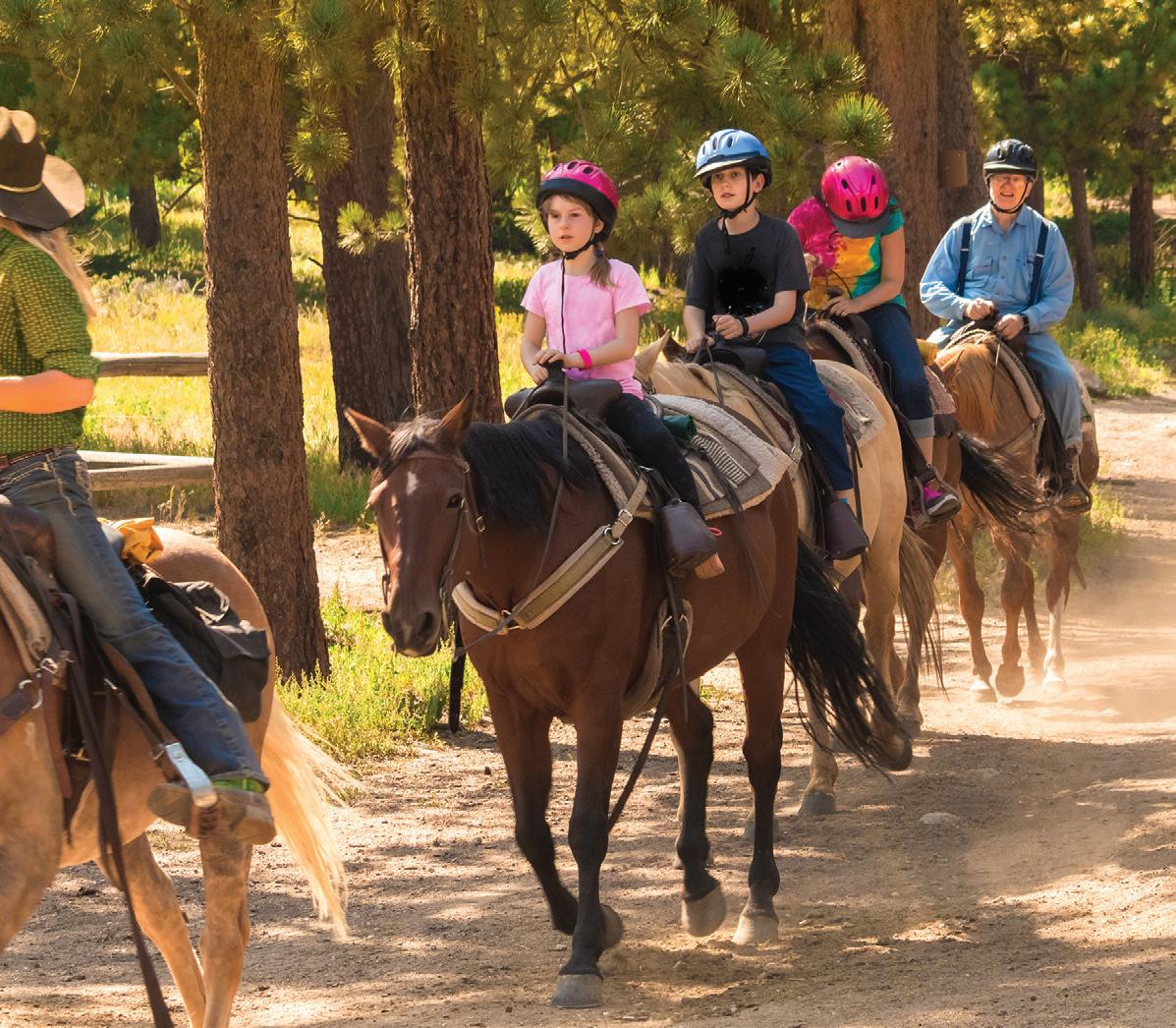
Essex Equestrian Center
essexequestrian.com
West Orange
Novice riders learn grooming in the morning and get a handson introduction to arena riding in the afternoon. Advanced equestrians can work on their trot or canter at the full-day program.
Frost Valley YMCA frostvalley.org
Claryville, NY
Girls spend half of the day perfecting their technique on the trails and then hike, swim and rock climb at Mustang Village during this two-week program. Plus, there’s a camp exclusively for boys at Durango Village (ages 7–11) and sessions for more seasoned riders ages 12 and up.
Seaton Hackney Stables Summer Program
seatonhackney.com
Morristown
Riders of all skill levels spend the day either in the ring or in the barn at this equestrian camp. Beginners learn the basics of riding and horse management, while advanced riders work on their jumping and canters. There’s also a weekly field trip to various shows and clinics.
Cohen Camps
cohencamps.org
Wellesley, MA
For more than 85 years, Camp Pembroke, Camp Tel Noar and Camp Tevya—three Jewish camps—have welcomed young people and their families. Campers celebrate shared values, traditions and love of Israel.
Fairview Lake fairviewlakeymca.org
Newton Fairview Lake YMCA Camp is an accredited sleepaway camp situated on a lake in NJ. Choose from traditional camp, specialty camps, ranch camp and more.
Maine Camp Experience mainecampexperience.com
Portland, ME
MCE is a community of summer camps for boys and girls with strong traditions and so much natural beauty for kids to thrive in. Some camps are co-ed while others are single gender. Explore options for the full summer or just a few weeks.
Surprise Lake Camp surpriselake.org
Cold Spring, NY
SLC is one of the nation’s longest running Jewish sleepaway camps and is located on 400 beautiful acres in Cold Spring. Camp here is about unplugging, growing and exploring Jewish values in a serene setting.
All Children’s Theatre allchildrenstheatre.org
Locations vary
Future stars study comedy, drama and musical theater and end the summer with live performances.
Studio classactpas.com
South Orange
Triple-threats-in-training, tiny performers (ages 3–6) pick from themes like “Frozen” and “Sofia the First,” before showing off what they’ve learned. Older kids (ages 7–14) meet every day for two weeks to put together a Broadway-inspired number.
Summer Theater Camp at Elks Lodge
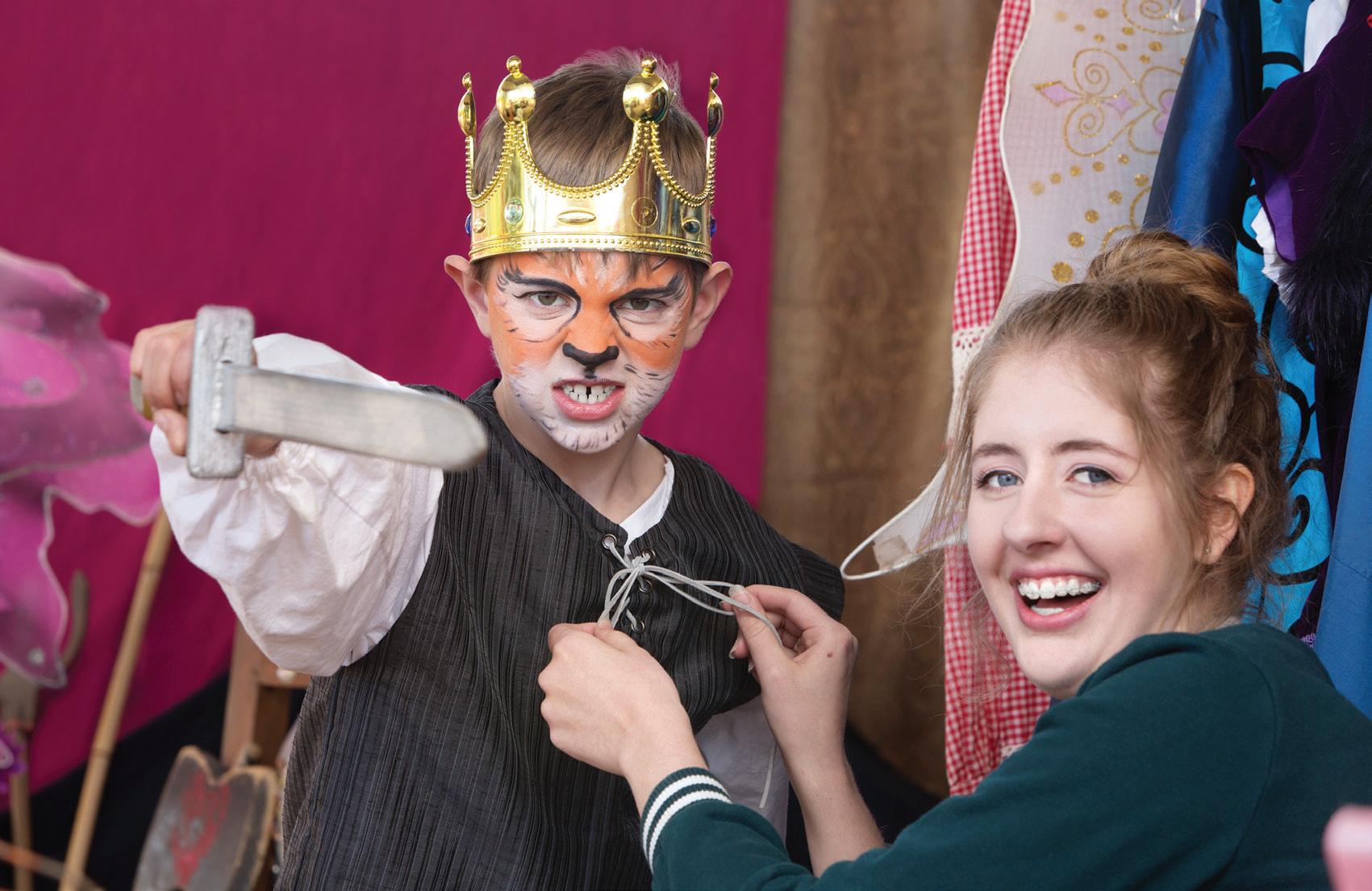
taubenslagproductions.com
Edison
Kids shine in several original productions while learning from seasoned pros during this camp’s two-month duration. Plus, there’s time to swim, play games and even catch a Broadway show.
The Moderne Academie of Fine Arts moderneacademie.com
Scotch Plains
Ballerinas in training spend the mornings on their tippytoes followed by movies, arts and crafts and snacks. More experienced dancers (ages 8–18) choose from different workshops and learn the basics from in-house teachers and guest instructors from NYC.
The New Jersey Workshop for the Arts njworkshopforthearts.com Westfield
Grade-school-aged kids take three-week-long classes like “Broadway Dance” where they learn choreography or “Engineering” where they can explore and build machines using the “LEGO Engineering Program.” There are also options for pre-K and kindergarten students.
Shakespeare Theatre of NJ shakespearenj.org
Madison
The Shakespeare Corps is a unique classical theater experience for young people ages 10-18, offered each summer. The program combines professional acting instruction, classic literature and a creative environment in which to develop self-confidence and creativity and an opportunity to engage in teamwork and collaboration.
Wharton Arts
whartonarts.org
Berkeley Heights
This nonprofit community performing arts education center offers programs in instrumental music, vocal and theater arts to more than 300 campers annually.
Harbor Haven harborhaven.com
West Orange
This seven-week program designed for kids with mild special needs promises an action-packed
summer while improving social and motor skills. Campers spend time outdoors, swim, dance and have an “Olympic” sports competition every Wednesday.
Hybridge Summer Program
hybridgelearning.com
South River
Children with autism spectrum disorders play games, spend time outdoors, participate in team sports and music lessons. Campers receive one-on-one and small-group instruction that helps hone their social and play skills.
AFFA Fencing & Fitness Academy affafencing.com
Garwood
This camp will teach and reinforce basic techniques, rules and strategies of fencing.
Montclair State Ice Arena montclairstatearena.com
Little Falls
Aspiring Wayne Gretskys develop stick skills on the ice and improve stamina with hockey camp. There is also a figure skating camp offered for all ages.
Heron Club Junior Golf Camp heronglen.com
Ringoes
This camp, led by former PGA tour instructors, helps your junior golfers sharpen their drive, regardless of skill level. There’s also a “Birdies” camp for younger putters, for ages 7–11.
NJ Jackals’ Nike Baseball Camp ussportscamp.com
Little Falls
They’ll get one-on-one time with semi-pro players while improving batting and fielding skills at this five-day camp.
Go to njfamily.com/camp to search for more camps.
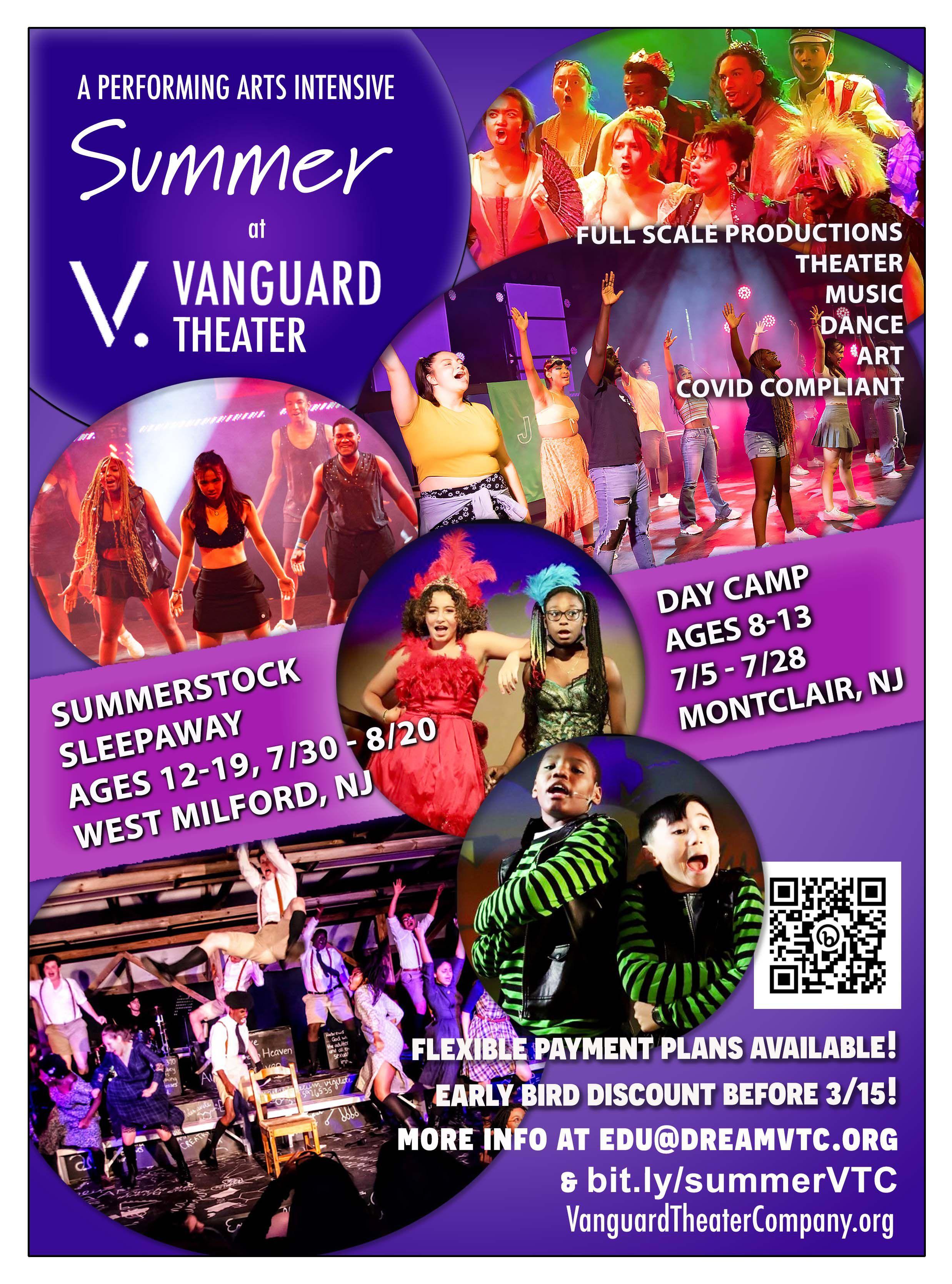

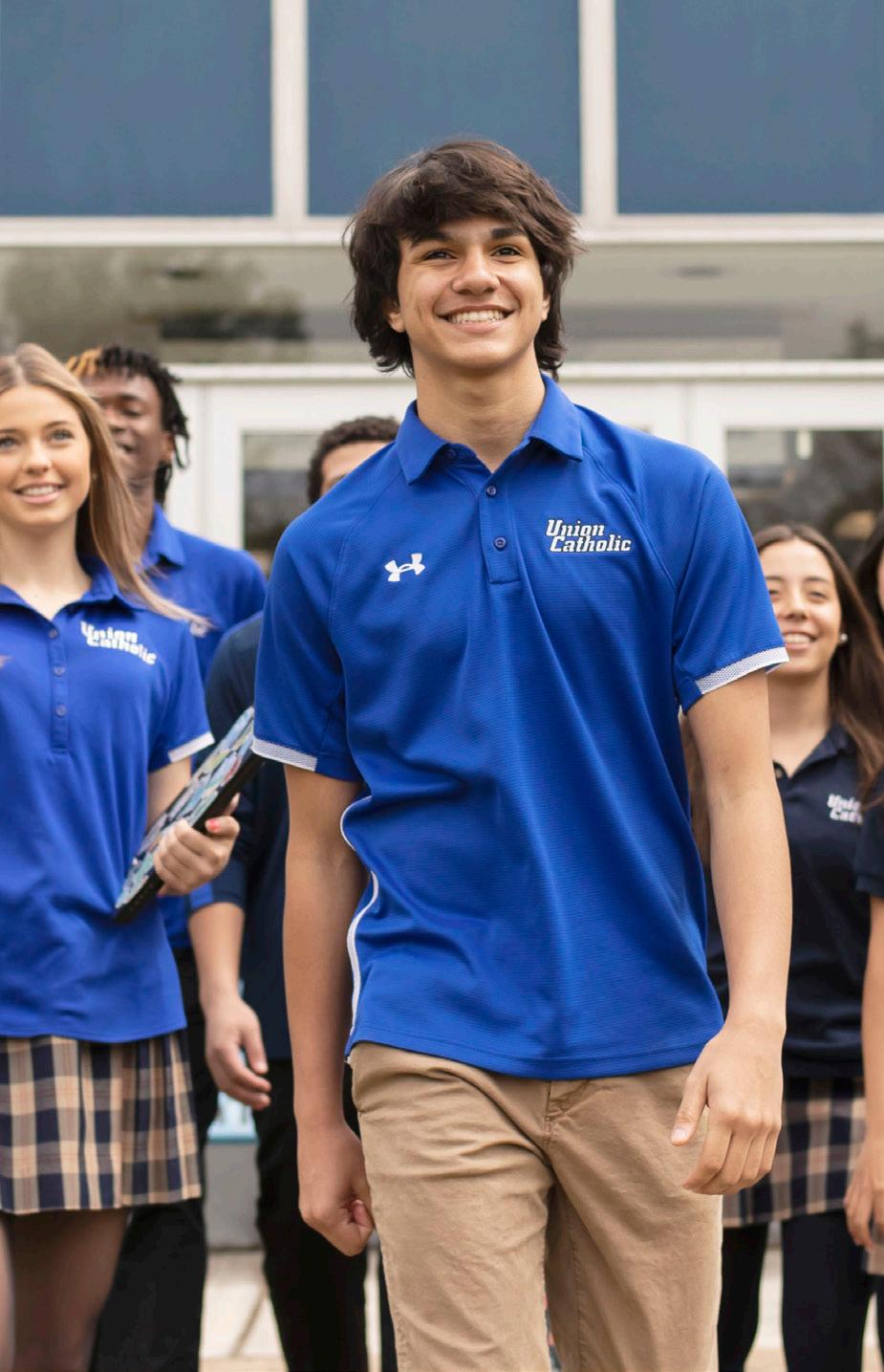
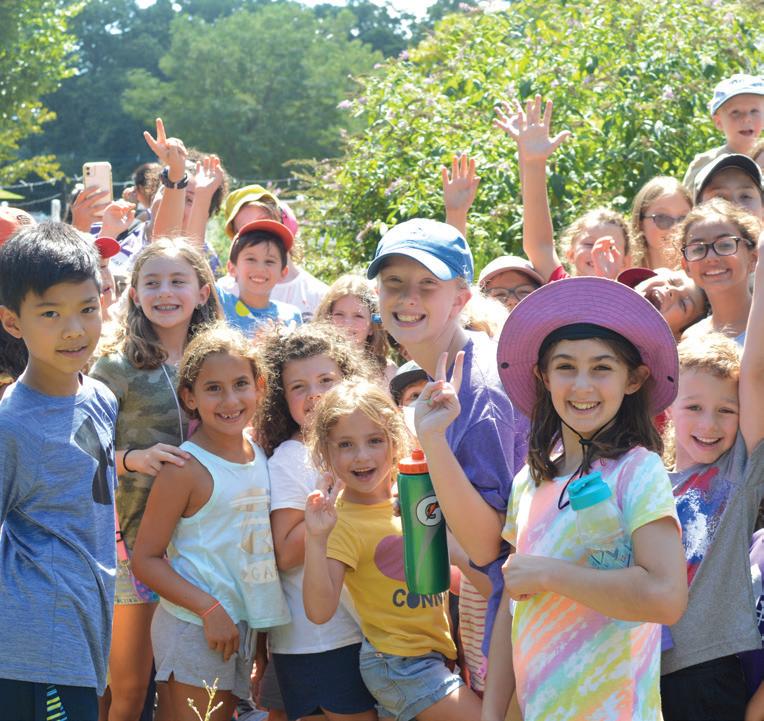

Choosing the right summer camp is a big decision. You want to find a place with a community your kids will love that’s committed to health, safety and fun. Here’s a look at some of the best camps in New Jersey and beyond.
Fairview Lake YMCA Executive Director Marc Koch is proud of the sleepaway camp experience he offers. In the age of screens, social media and handheld devices, he’s happy to give campers a chance to connect with the great outdoors.
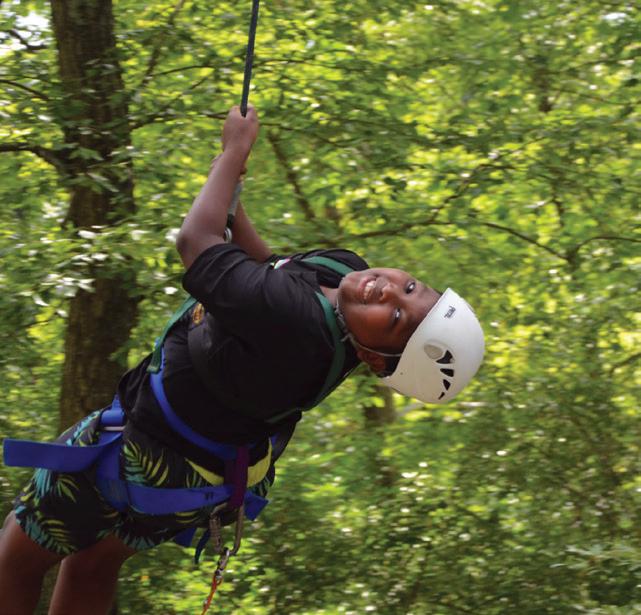
“We’re a 109-year-old sleepaway camp that’s steeped in tradition,” Koch says. Initially founded in 1915 as an all-boys camp, today Fairview Lake offers an array of some two dozen week-long specialty camps that include backpacking, rock climbing, canoeing, horseback riding, windsurfing and sailing camps and farm camps.
“Each of the camps has its own tradition and spirit that have been enjoyed by generations of families,” says Koch, who has been at Fairview Lake since 1998. “We’re proud to represent so many years of history and tradition that comes to life in our campers and stays with them their entire lives.”
Fairview Lake also offers a two-week, weekday sleepaway camp known as Lake in the Woods. Held on the campus of Blair Academy in Blairstown, the program is in its second year and aims to blend a traditional sleepaway camp with a boarding school dormitory—but with weekends off. “It’s a beautiful campus with everything you could want for the summer—from a golf course, indoor pool and athletic facilities to robotics and ceramics studios—for those who may want to experience summer camp outside of a cabin in the woods,” Koch says.
While Fairview Lake provides a diverse mix of options, there’s no shortage of traditional activities as well. “We’re located in the midst of 660 acres of forests, fields
and hiking trails that surround our 110-acre namesake lake, and so we offer the perfect camp environment,” he says, noting that the breathtaking 70,000-acre Delaware Water Gap National Park is right in the camp’s backyard. “However, our campers are given the opportunity to experience all of those traditional camp offerings, or they can choose to hone in on a special area of interest and focus on something they truly love to do.”
Fairview Lake strives to uphold the mission of a YMCA camp: to strengthen community through youth development, healthy living and social responsibility. “As far as youth development goes, we teach lifelong skills from how to ride a horse to how to swim. In fact, more people have learned how to swim through the YMCA than any other organization,” he says.
For the traditional camps, children and teenagers in grades two through 10 live in cabins with electricity, showers and bathrooms. Specialty camps feature camping and more rustic cabins that serve as a base between backpacking up the Appalachian Trail or canoeing down the Delaware River.
At Fairview Lake, it’s all about life outdoors—and that includes the camp’s animal farm with donkeys, goats, chickens
and sheep. “There are some summer camps that are held in air-conditioned dorm rooms. That’s just not who we are,” he says.
Today, many of Fairview’s former campers are parents who are sending their own children to camp. The camp offers a counselor-in-training program for students at age 16, followed by a junior counselor program that leads to the opportunity to hold a senior staff position. The camp is also committed to hiring international staff members. “We strongly believe in exposing children to role models from many different walks of life; it teaches them empathy, respect and understanding while giving them the opportunity to learn about other countries and their cultures,” he says.
Given its long history, the camp is also well-equipped to handle feelings of homesickness among campers. The staff partners with parents to help support their campers through the transition to camp, and will often pair new campers with an older veteran camper (dubbed a “big brother” or “big sister”) to help them adjust to life at camp.
A point of pride for Koch is that so many of its campers and staff return each and every year. A first-year camper might do one horseback trail ride and sign up for a week of horseback riding the next year. Or a camper might sleep overnight in a tent for the first time in their first year and then sign up for a weeklong backpacking trip.
“The majority of our campers are here for the social experience and the lifelong memories,” Koch says. “Camps teach leadership and problem-solving skills, and parents just want kids to be kids again—so we provide an environment where they learn how to socialize and build those skills that will last a lifetime.”

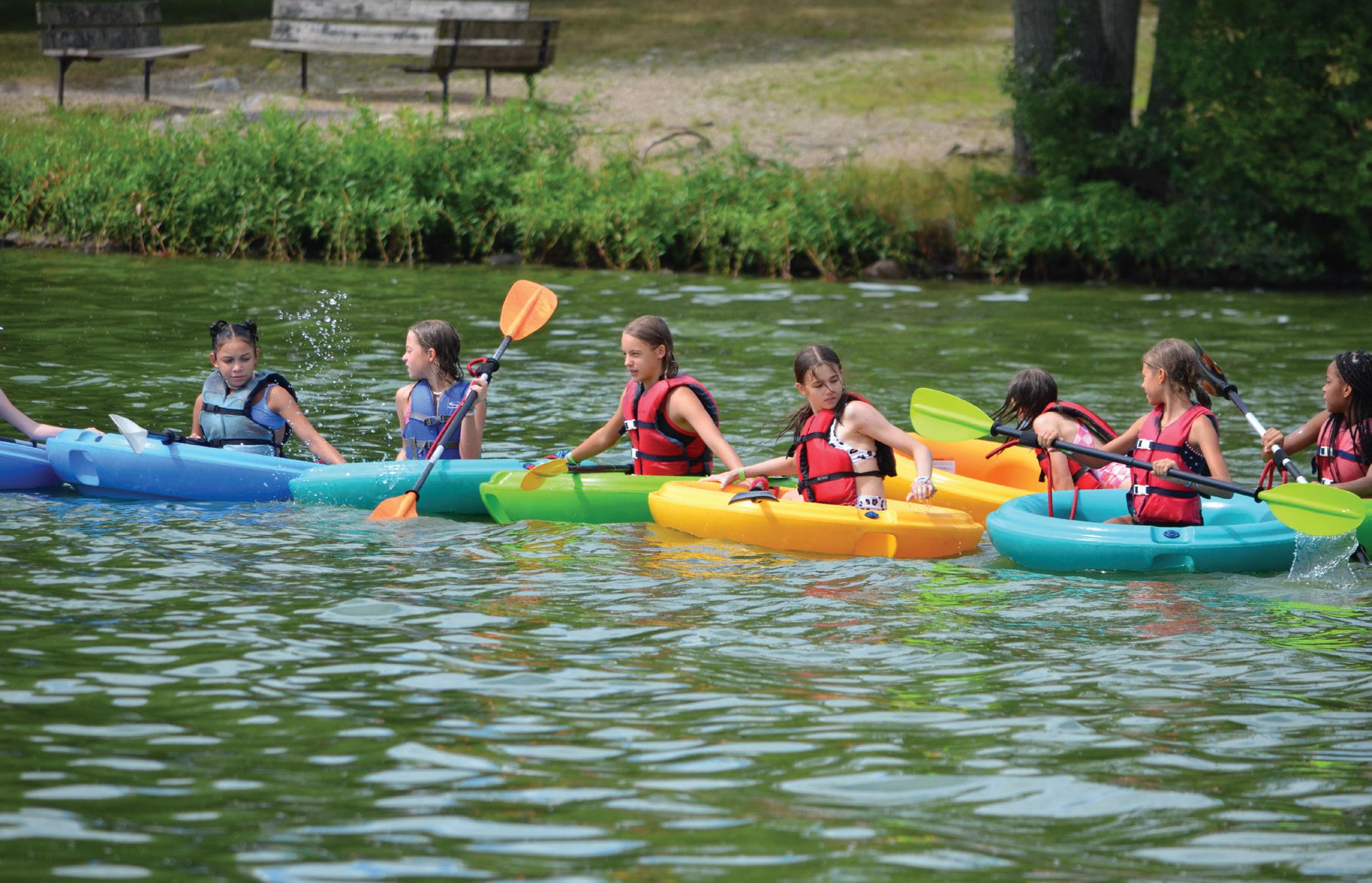
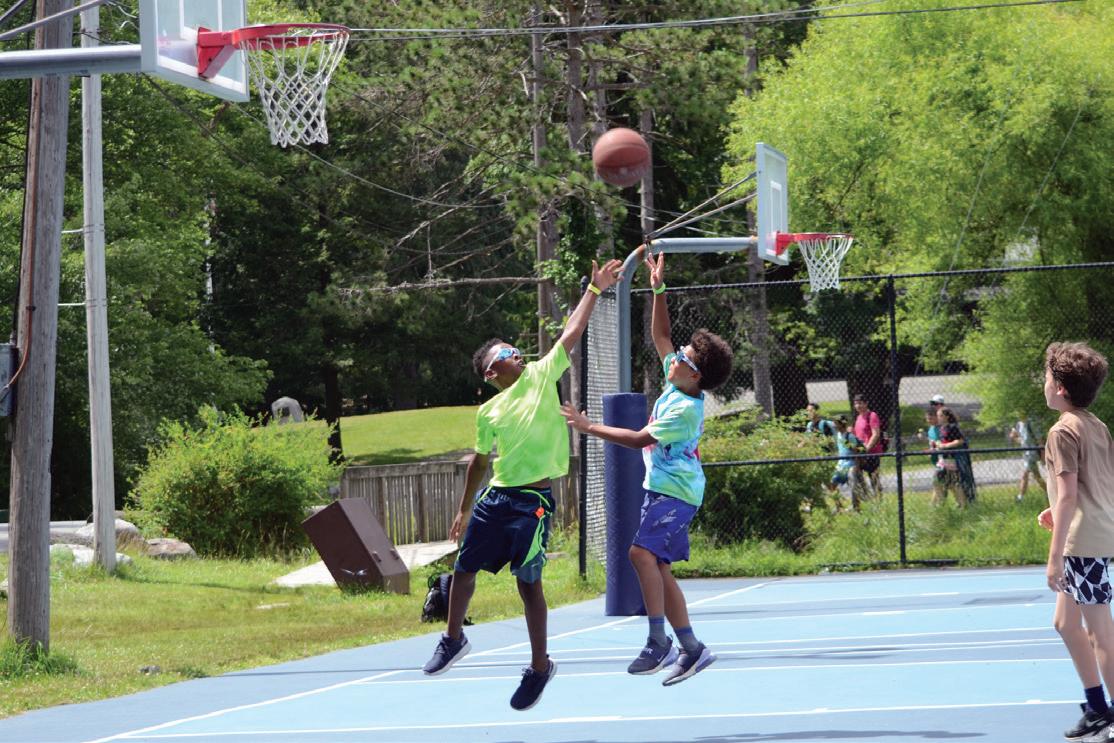
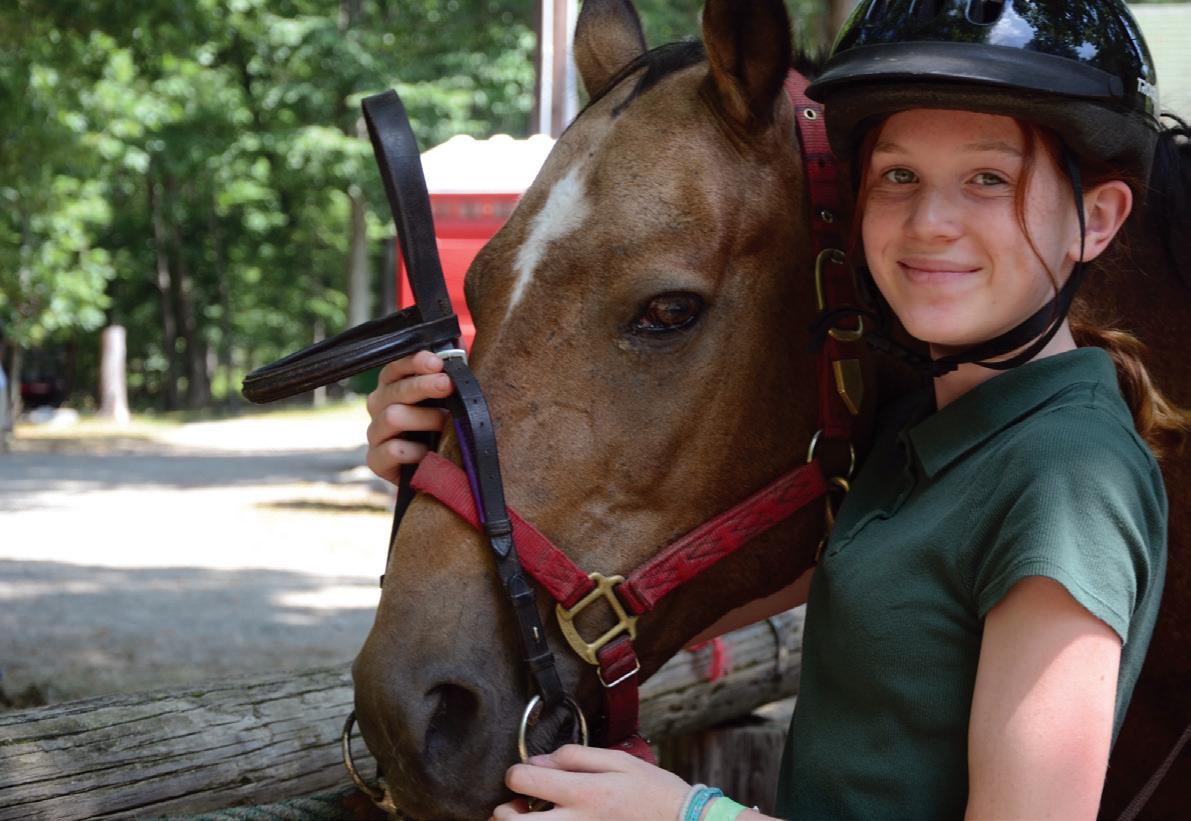

With three campuses totaling 303 acres, complete with a ropes course, a swimming pool, 16 outdoor athletic fields and five full-size gymnasiums as well as more than 30 dedicated spaces for performing and visual arts, three kitchens for cooking and 15 labs for scientific exploration, there is truly something for everyone at Pingry Summer. The camp’s phenomenal summer staff is dedicated to helping campers quickly connect and develop new skills, have fun and experience their best summer ever.
Pingry Summer is a co-educational environment with programming for children ages three through eighteen. The summer programs are designed to give students and campers a “taste of Pingry in the summer,” says Camp Director Cindy McArthur.
There are more than 100 programs campers can sign up for on three campuses across Somerset and Essex Counties, including overnight offerings and full- and half-day options.
“Campers can try something new, dive more deeply into something they love, or— best of all—they can do both,” McArthur says. The camp’s summer offerings include: academics, theater, dance, music, swim instruction, sports, cooking and STEAM, just to name a few. With handson instruction and small staff/child ratios, Pingry Summer offers individualized attention from registration to selection.
In addition to Pingry’s varied selections, the camp also offers a concierge service. “Pingry can build out personalized plans for each child that navigate the parents through the decision process by creating
a customized summer plan including all items on their camp wish list,” McArthur says. “We’re very confident that we can provide a meaningful summer experience for each camper.”
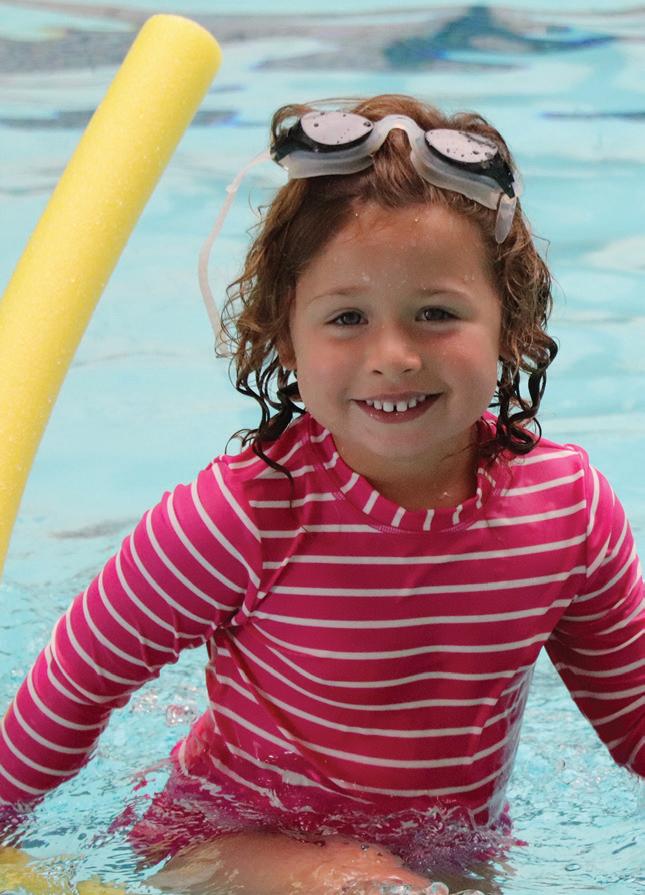
The Short Hills 28-acre campus offers a turf field, STEAM classrooms and studio space, as well as a playground and two fulllength grass athletic fields. The camps held on this campus include Pingry Academics, Pingry Sports, Mega-V, International Ivy, Red Bulls Soccer and Swax Lax.
The 192-acre Basking Ridge campus is a veritable athletic wonderland with three full-length turf athletic fields, 12 tennis courts, three baseball diamonds, an indoor pool, three theaters and the Bugliari Athletics Center, which includes four basketball courts, eight squash courts and an athletic training room. Outdoor features include a campsite and a 3.1-mile trail course that winds through woodlands,
meadows, farm and a pond. The Basking Ridge campus is home to Big Blue Day Camp, Minis Camp, Pingry Academics, Pingry Sports, Elefante Summer Music Theater Program, Pulse Sports Camp, Diplomat Chess, Sticky Fingers Cooking Camp, Grit Basketball and Yankees Baseball.
Lastly, the 83-acre Pottersville campus is an overnight home that sleeps more than 150 campers across three dormitories. It includes a 40-foot-high climbing wall, a ropes course, indoor artificial turf athletic center, theater and 22 buildings that house everything from community and collaborative spaces to classrooms and laboratories.
The Pottersville camps include Big Blue Day Camp, Pingry Academics, Pingry Sports, Maestro Soccer and Pulse Sports Camp. “The breadth of physical space is just another part of the diverse experience of a Pingry summer,” McArthur says. “We have a strong academic program, a strong arts program and a strong sports program.”
Along with the diversity of its camp offerings, Pingry Summer also takes pride in being accessible and affordable to the surrounding community. In fact, as many as 60 percent of campers are not Pingry students during the school year.
“Our price point is very competitive, if not better than a lot of the surrounding schools,” McArthur says. “Our goal is to make it as accessible and as open to the community that we serve, regardless of whether those community members are students at our school, or just happen to live in the area. And that’s why we believe that having a variety of menu options is so important—because we want to be able to reach as many people in the community as possible.”
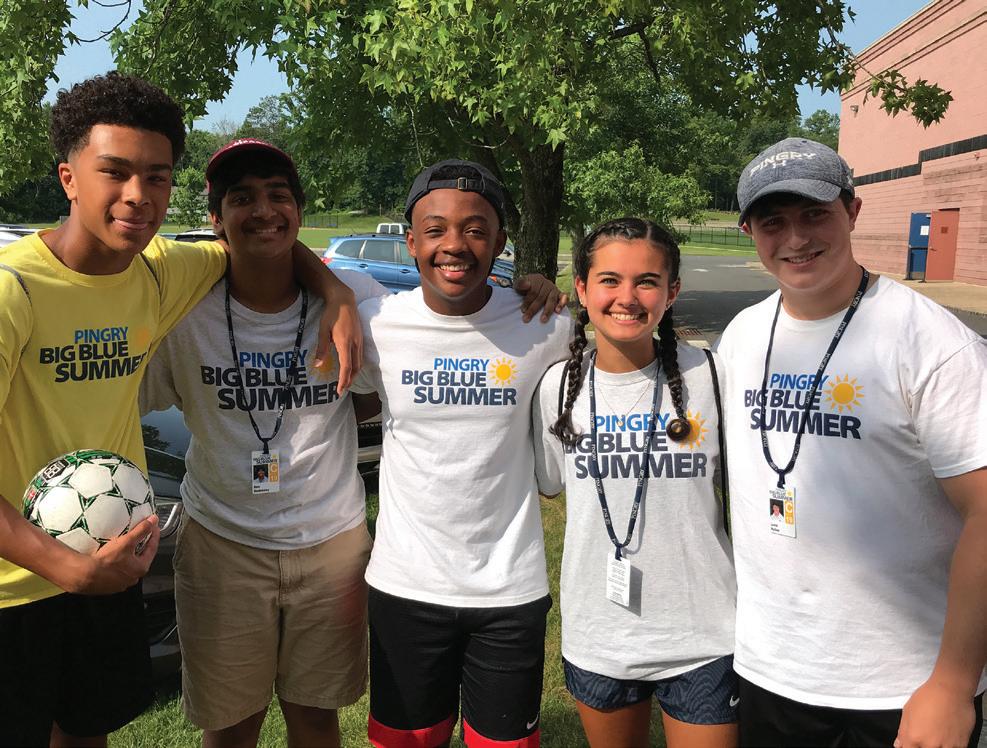
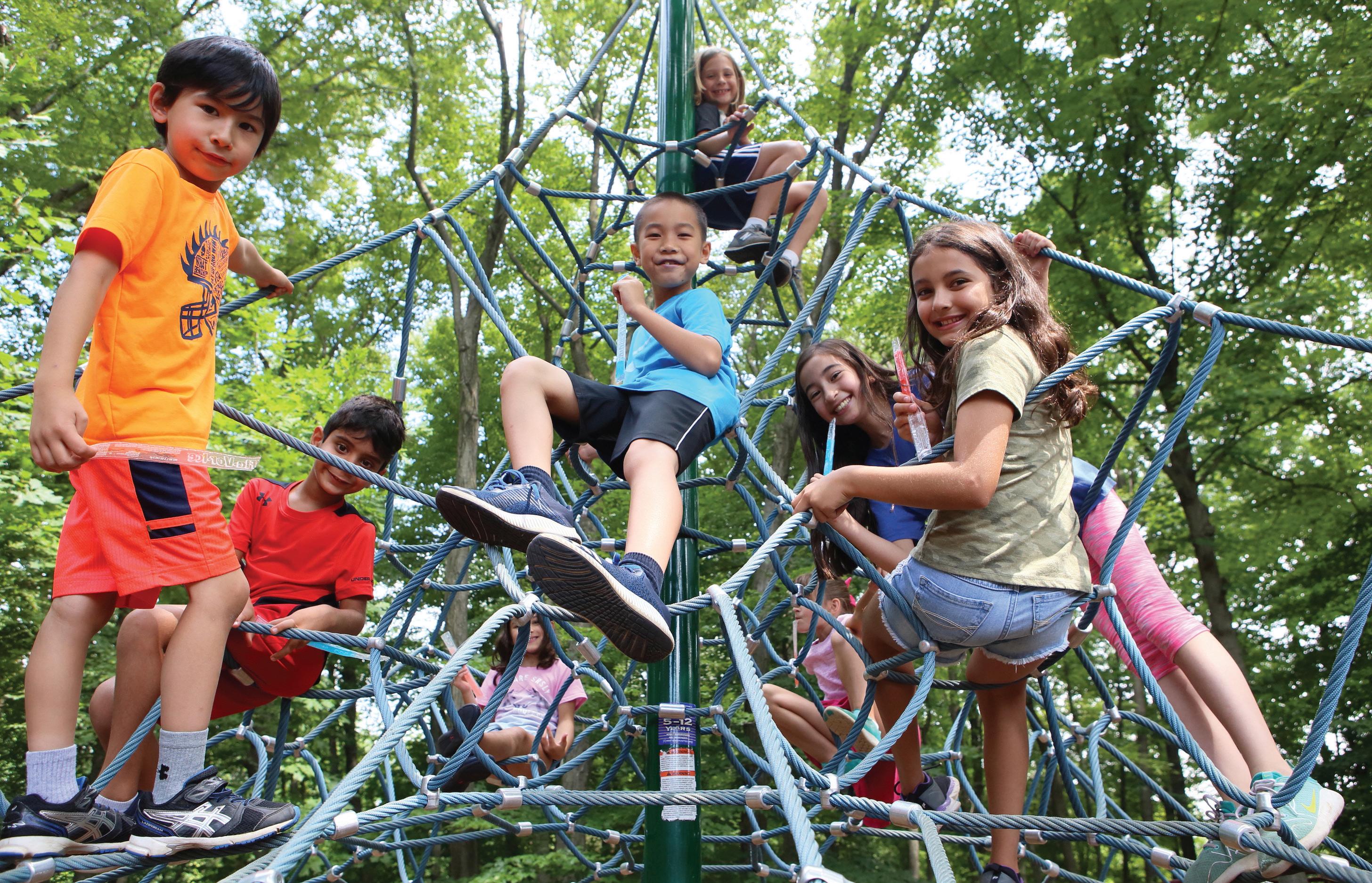
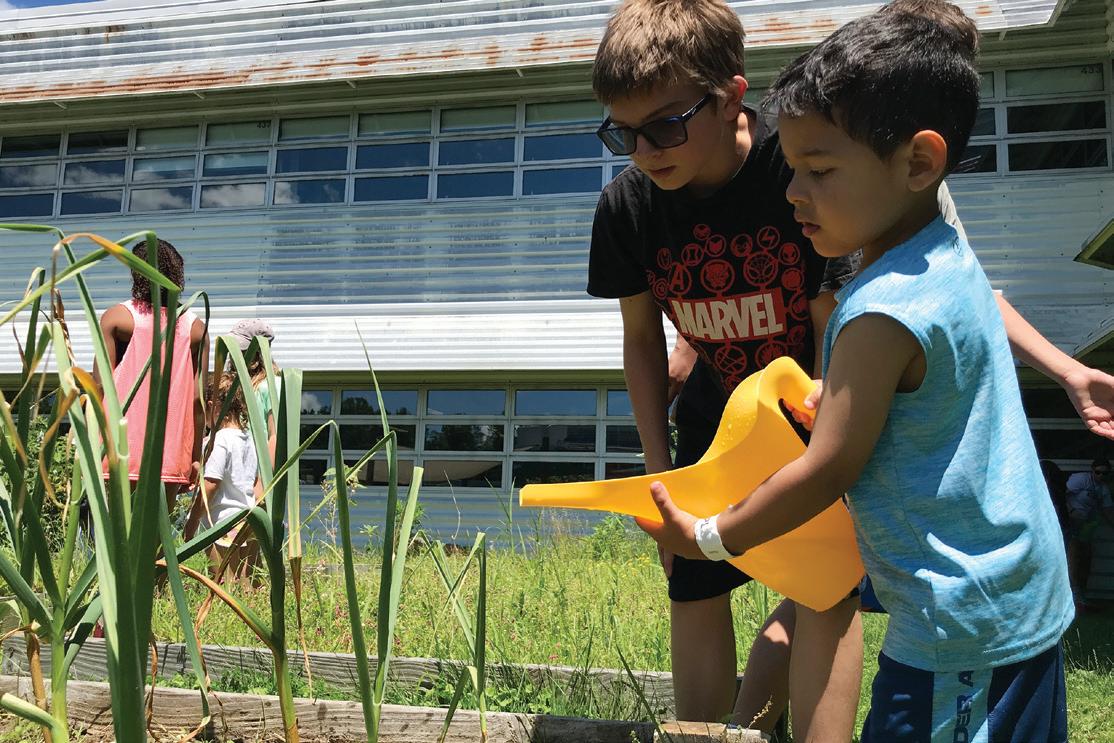
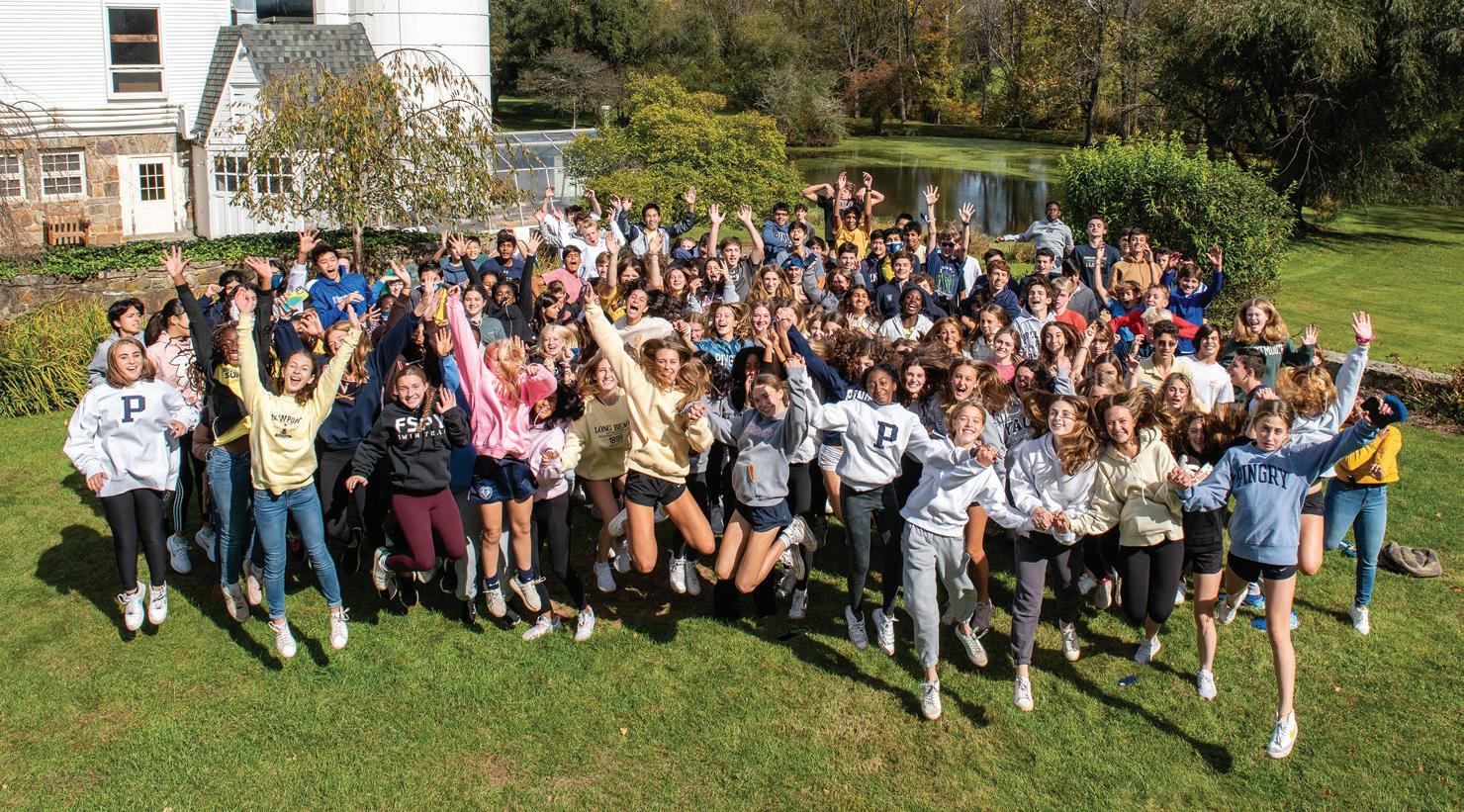
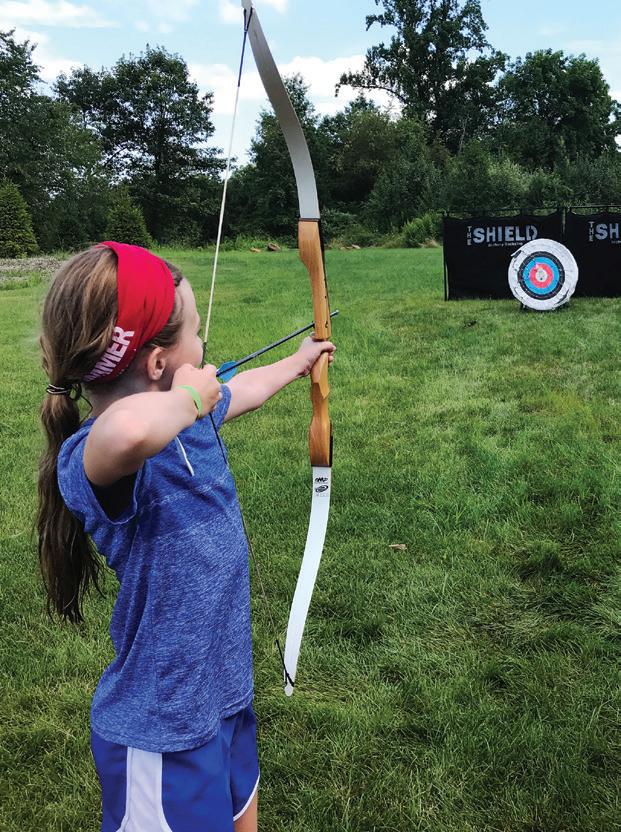
Maplewood / Cold Spring, NY • 929-397-9393 • camphalfbloodbklyn.com
Atruly unique summer camp experience, Camp Half-Blood offers rising 2nd through 6th graders the opportunity to embark on adventures ranging from dueling sword battles to mythological riddles that muddle the mind.
Inspired by the Percy Jackson series, Camp Half-Blood trains demigods to unleash the heroes inside them—campers learn sword-training, armor forging, mythcrafting, storytelling and more. New for summer 2023 is the three-week overnight Camp Mythik, for rising 6th through 9th graders.

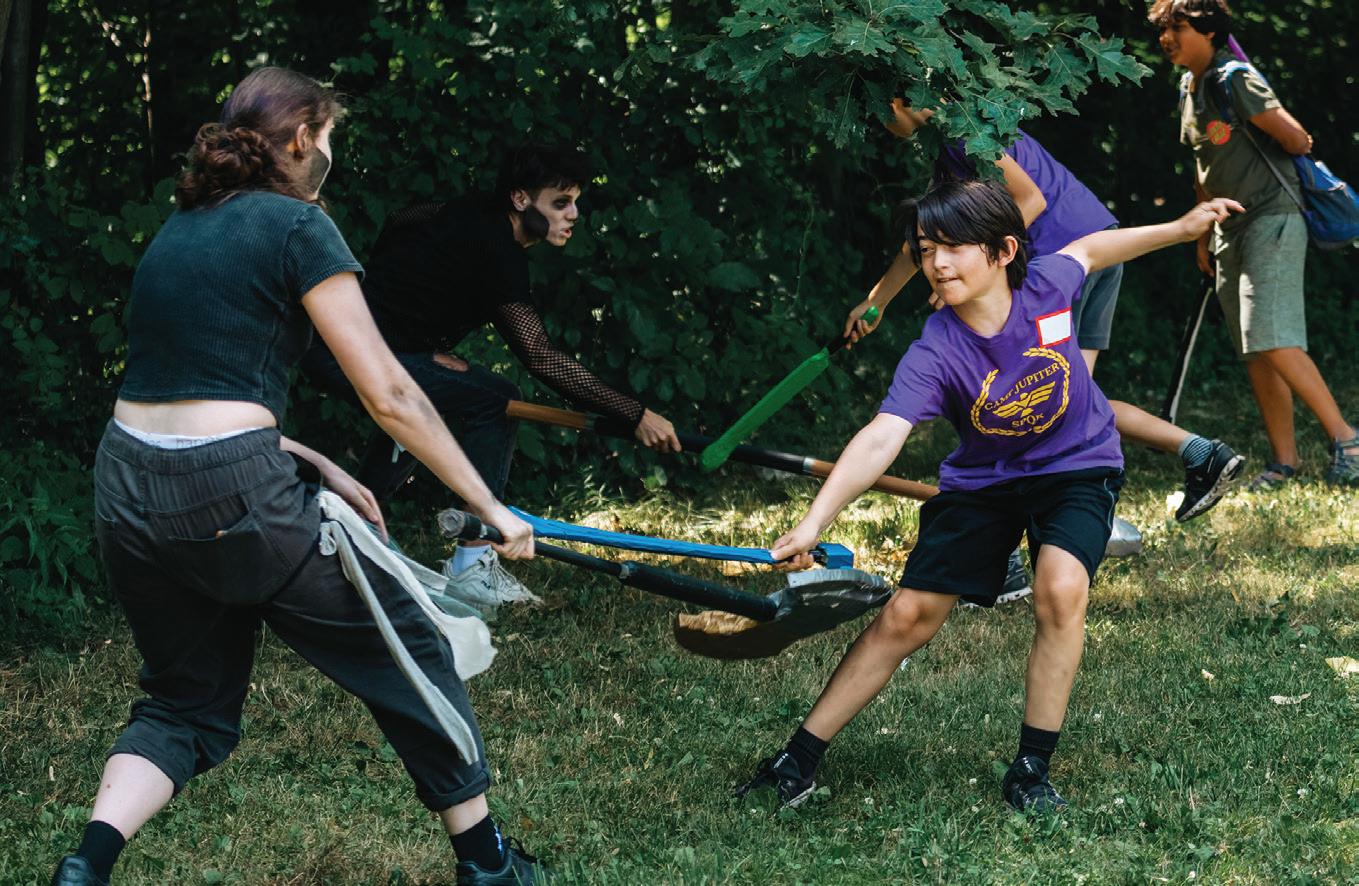
“We’re excited to offer an overnight extension of our immersive storytelling and mythological adventure program,” says Jordana Elias, national program director. “We know campers will enjoy the extra time on their adventures with friends and opportunities like evening scouting, more expansive foraging projects and access to a ropes course and archery programs at Camp Mythik.”
The first iteration of Camp Half-Blood started in Brooklyn, and it has since spread across the country with programs in seven states. This year, the week-long New Jersey camps will be held outdoors at Tulip Springs in South Mountain Reservation the week of June 26 and July 10-August 18. Transportation is not provided for Camp Half-Blood, but there will be busing for Camp Mythik, which will be held at the Taconic Outdoor Education Center in Cold Spring, NY.
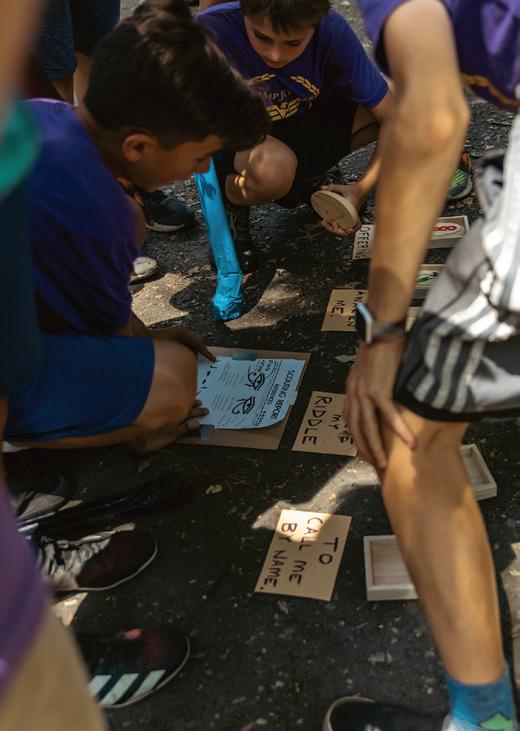
Campers engage in stories and group activities outdoors, from morning sword circle and Quest Days to weekly Olympic
trials and Mytho, a roleplaying game of the camp’s own design. “Our camp is unique because of the passion and dedication that our staff and story department have for building the fantastic world of mythology into something very real for our campers,” says Timothy Ling, director of branding and customer experience.
Camp Mythik will run June 26-July 1, July 3-8 and July 10-15. An extended Camp
Jupiter program, inspired by the mythology and history of Ancient Rome, will be offered at the Maplewood location for rising 6th through 10th graders.
“Our new program enhancements will ensure that campers will have bigger, better stories and mythical odysseys,” Elias says. “We want our campers to write their own stories and be the heroes of their own adventures.”
225 Pompton Rd., Haledon • 973-956-1220
campveritans.com
Founded in the 1950s, Camp Veritans provides an environment where campers can build selfesteem while making friendships and lifelong memories. A family-oriented day camp, Camp Veritans is located on more than 60 beautiful, wooded acres.
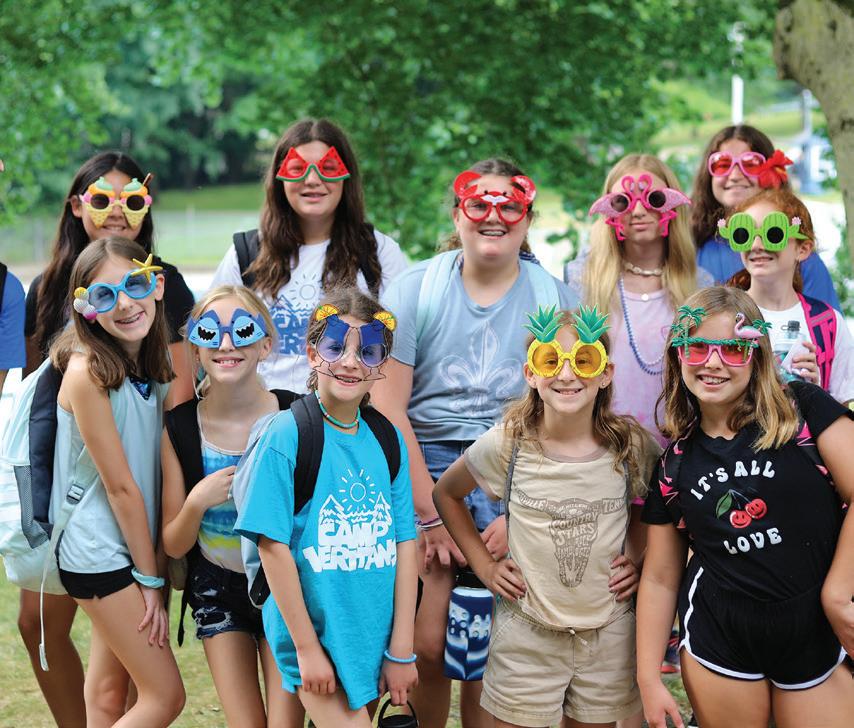
“Everyone is considered a part of our CV family—not just the campers, but their families,” says Director Carla Rudow. “We’re seeing generations of families now who are enjoying a summer camp experience with us, and we think that’s really special.”
The full-service day camp provides everything from daily transportation to hot catered lunches and snacks. Each day at Camp Veritans consists of eight periods, with campers rotating through their activities.

Campers participate in daily Red Cross instructional swim as well as sports, arts and crafts, archery, go carts, woodworking, ropes and challenge course, cooking, drama, gymnastics, free swim, game center and more.
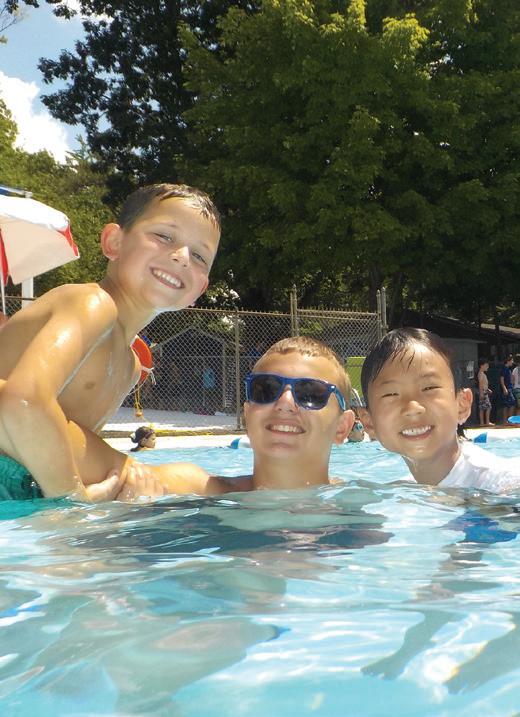
The camp is looking forward to bringing back programming like game trucks as well as trips, with the oldest campers participating in three trips per week. “We’re all looking forward to returning to a normal summer camp experience, with trips and other new and exciting programs,” Rudow says.
Whether they’re shooting hoops, splashing around in the pool or practicing for their weekly bus competition on the way to camp, kids have the time of their lives and can’t wait to return the following summer. Both parents and campers say the dedicated, passionate camp staff is what makes Camp Veritans such a special place to spend the summer.
“Our families know when they put their child on that bus in the morning, they are going to be safe and happy,” she says. “They may come home tired, and a little dirty, but they’ll be filled with memories that will last a lifetime.”
Daily transportation to and from camp plus lunches and snacks are included in camp tuition. Campers can attend for four, five or six weeks or the full summer.
Camp dates for 2023 are June 26-August 17 (camp is closed July 4).
“This is truly a special place for kids to grow; I’ve seen kids start camp not being able to make eye contact with anyone to becoming leaders in their groups,” Rudow says. “But above all, campers have fun outdoors without electronics, and they thrive in a safe, nurturing environment where they can just enjoy being kids.”
2000 Frost Valley Rd., Claryville, NY • 845-985-2291 • frostvalley.org
Frost Valley YMCA is dedicated to creating a diverse and inclusive camp community where every camper is accepted for who they are. The camp offers one and two week programs from July to August for second through 10th graders and features a traditional overnight summer camp, teen and pre-teen adventure trips, horse camps, farm camp and its very own adventure survival camp.
“We want children to know this is a safe place for them to be exactly who they are and who they want to be,” says Erin Johnson, director of marketing and PR. “Children and teens grow in a safe and engaging environment where they can spend their first nights away from home, gain skills as young leaders and bond with new friends on mountain hikes, swimming and boating in Lake Cole, ziplining, sleeping beneath the starry Catskill sky and more.”
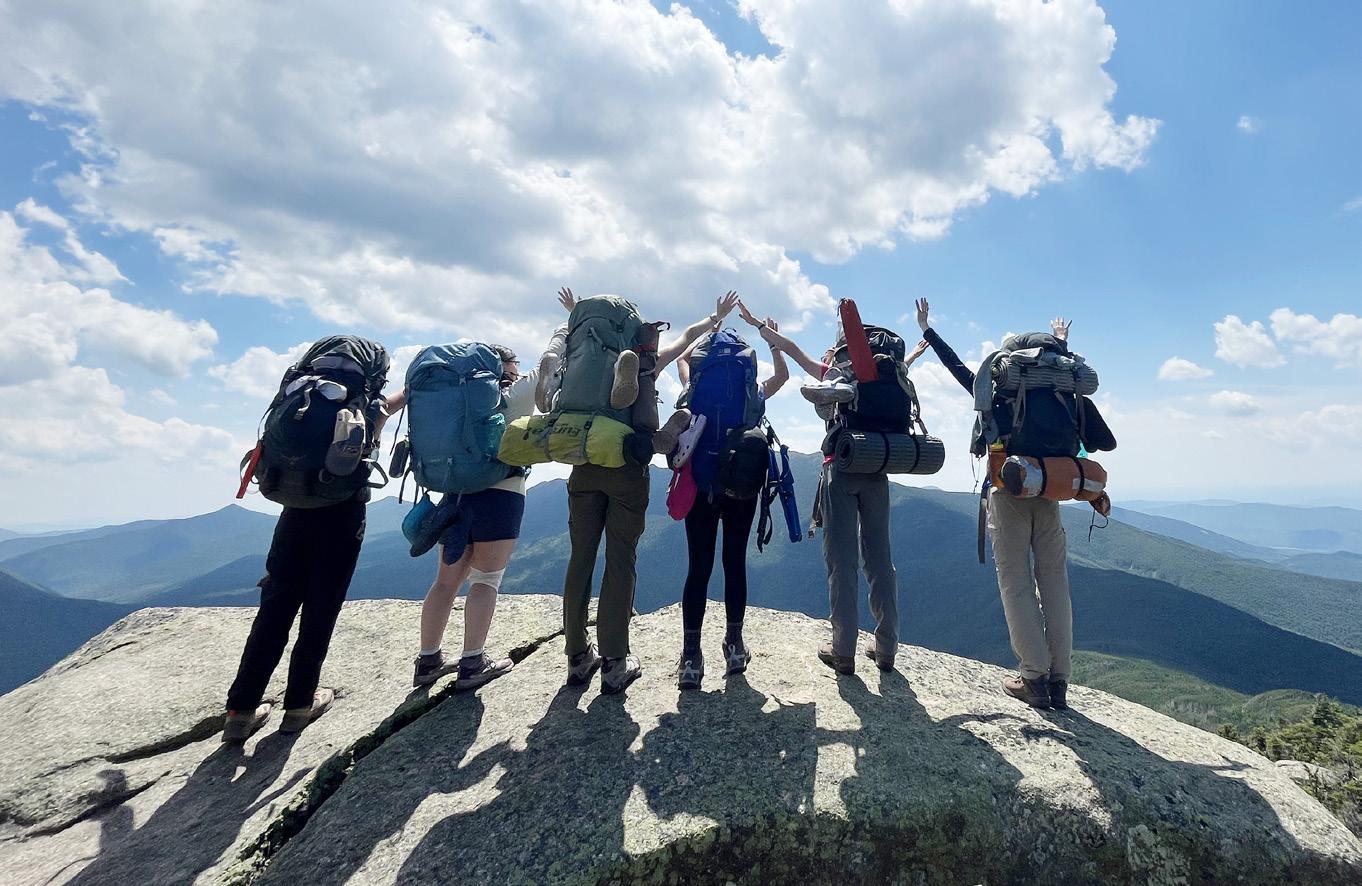
Along with its values-driven programming, Frost Valley YMCA offers a unique tiered pricing structure that allows parents to pay the price that works best for them, as well as financial assistance so that no child has to miss out on a life-changing camp experience. Food is included, and transportation can be added for a fee.
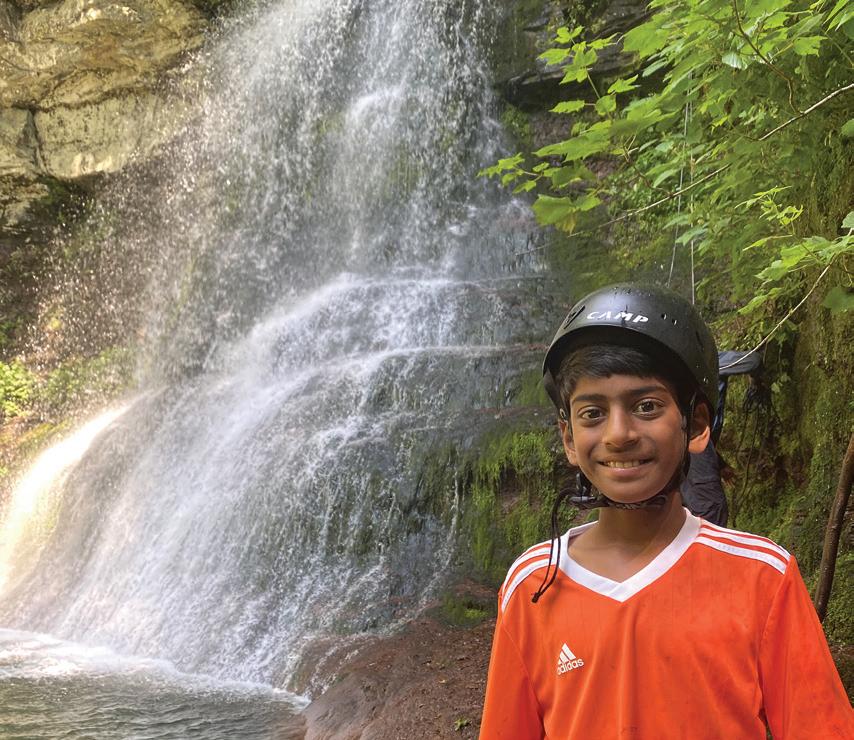
“The one phrase we hear over and over again is: ‘Frost Valley is my home away from home,’” Johnson says. “Campers learn how to step out of their comfort zones, try new things and work together as a cohesive camp community with campers and counselors from all walks of life.”
Frost Valley YMCA was founded in 1885 as The Boys’ Camping Society and after several iterations held its first camp in 1958 on the former estate of Julius
Forstmann. The original 2,200-acre piece of land in the Catskill Mountains has since expanded to 5,500 acres.
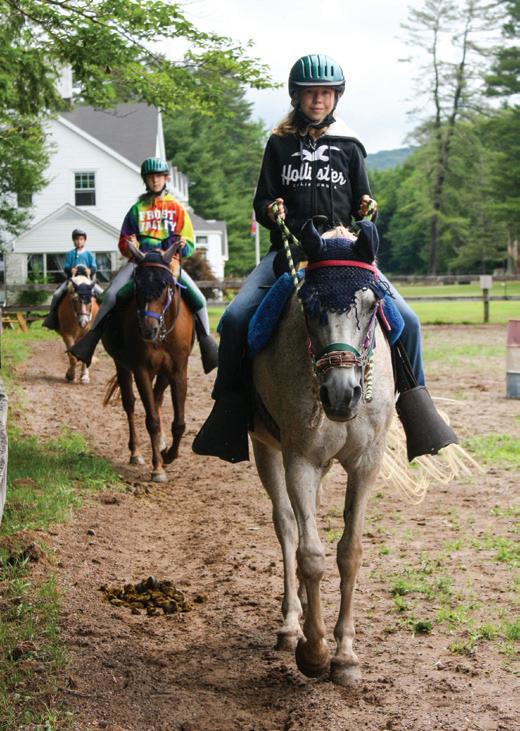
Today, the camp is a traditional overnight experience including waterfront activities, daily flag raising and a twist on “capture the flag” called USB. It’s all driven by eight core values: Caring, Community, Diversity, Honesty, Inclusiveness, Respect, Responsibility and Stewardship.
“Frost Valley infuses its core values into nearly every aspect of a camper’s day, from seeing the names on our camp road signs—for example, Diversity Drive—to participating in activities that have been intentionally developed to foster an appreciation for each of our core values,” she says. “Our camp is best known for its values-driven programming.”
Water safety is a top priority of Njswim. For more than 20 years, the swim school has advocated for children learning to swim as the number one defense in avoiding the tragedy of a child drowning. Learning to swim is an essential life skill that Njswim recognizes as the core of its mission. Today, the swim school teaches more than 5,000 students per week in seven locations in New Jersey: Brick, Florham Park, Lakeside-Roxbury, Manasquan, Sparta, Turnersville and Warren.
Each Njswim location offers a summer swim program. Depending on the location, they offer a swim lesson program for children of all ages. Parents can choose from:
• Intensive Summer Swim Program
• Power Swim Camp
• Summer Swim Lessons
These summer and camp programs are available during July and August and can be viewed on Njswim.com. The summer programs have limited space and sell out quickly, but you can register beginning the first week of February if you’re already enrolled in a year-round Njswim program. Summer Swim programs are open for registration to new students beginning March 1st.
If you really want your child to be able to swim this summer, now is the best time to enroll in swim lessons. This way, your child has several months of lessons and will be more comfortable and safer in and around the pool or the beach.
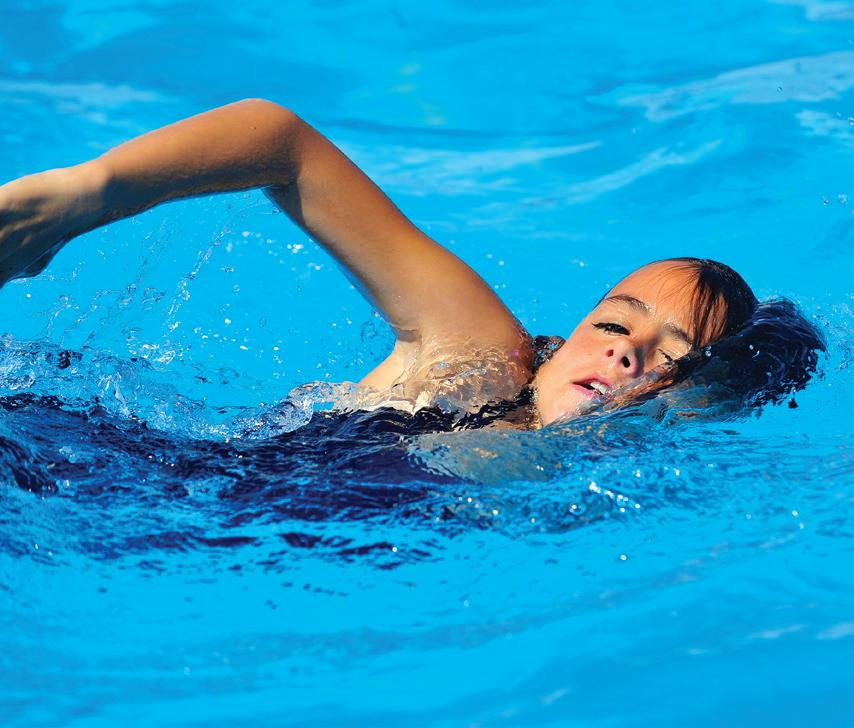
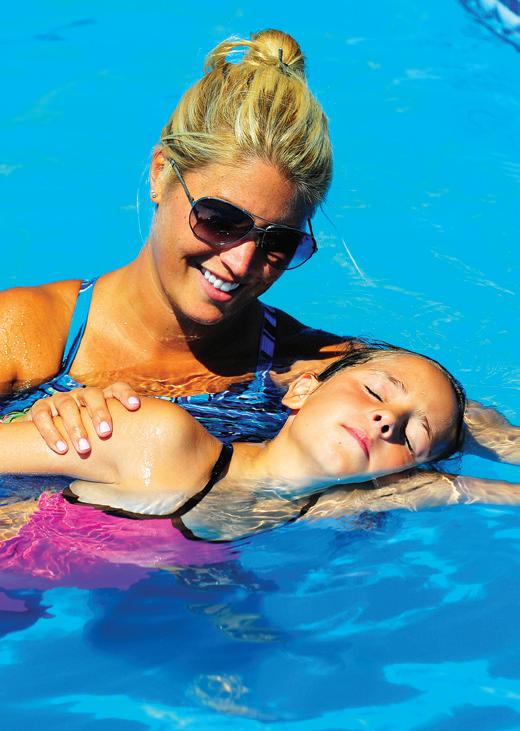
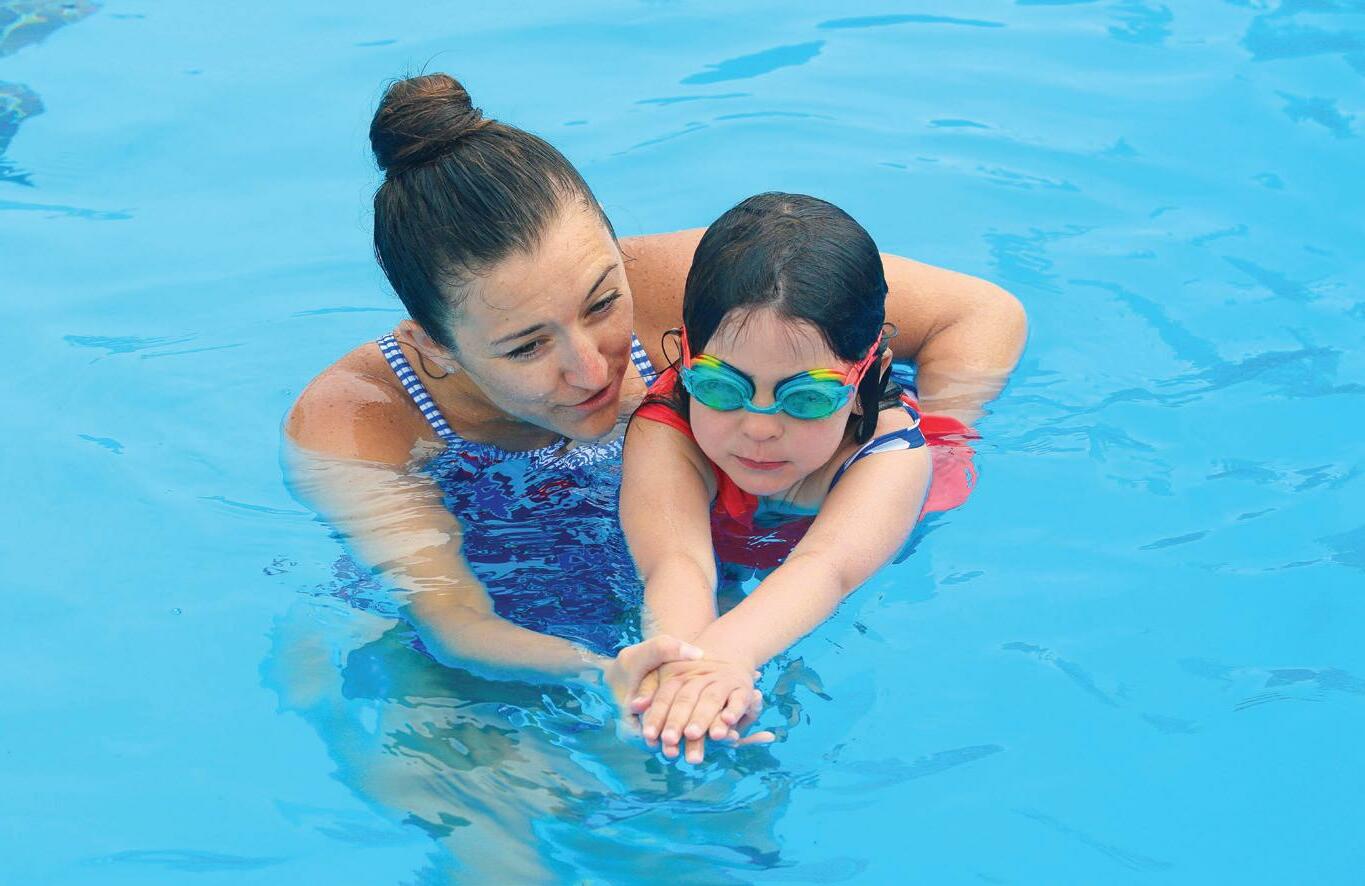
“Summer swimmers happen from winter swimming,” so we encourage families to consider starting in the winter months, so the student will be confident
and safer when the nice weather begins in June. Njswim offers quality, year-round swim lessons with “warm water, cool teachers, happy kids.”
Njswim has created a safer approach to swim lessons that helps children of all ages become proficient swimmers. Njswim lesson programs are for all ages and
developmentally suitable to keep children interested in swimming and building strength as they become independent swimmers.
Swimming is a life-long activity to be enjoyed as children grow. It all begins with learning how to swim...a priceless life skill every child should know. For more information on how to teach your child this crucial life skill, go to Njswim.com.
435 Lydecker St., Englewood • 201-568-5566, ext. 7333 • elisabethmorrow.org/summer-explorations
Summer Explorations, the summer program at The Elisabeth Morrow School, is what any good expedition should be—curiosity-driven learning with the excitement of discovery. Established more than 50 years ago, Summer Explorations offers educational programs taught by certified, experienced teachers who know what children need at each age to provide the optimal blend of learning and fun.
The program takes place on the school’s 14-acre campus, a certified wildlife habitat with nature trails, community gardens, a pond, brook, playgrounds, outdoor classroom patios, a turf field and state-of-the-art science and technology labs. Field trips also deepen kids’ learning and further instill a sense of wonder.
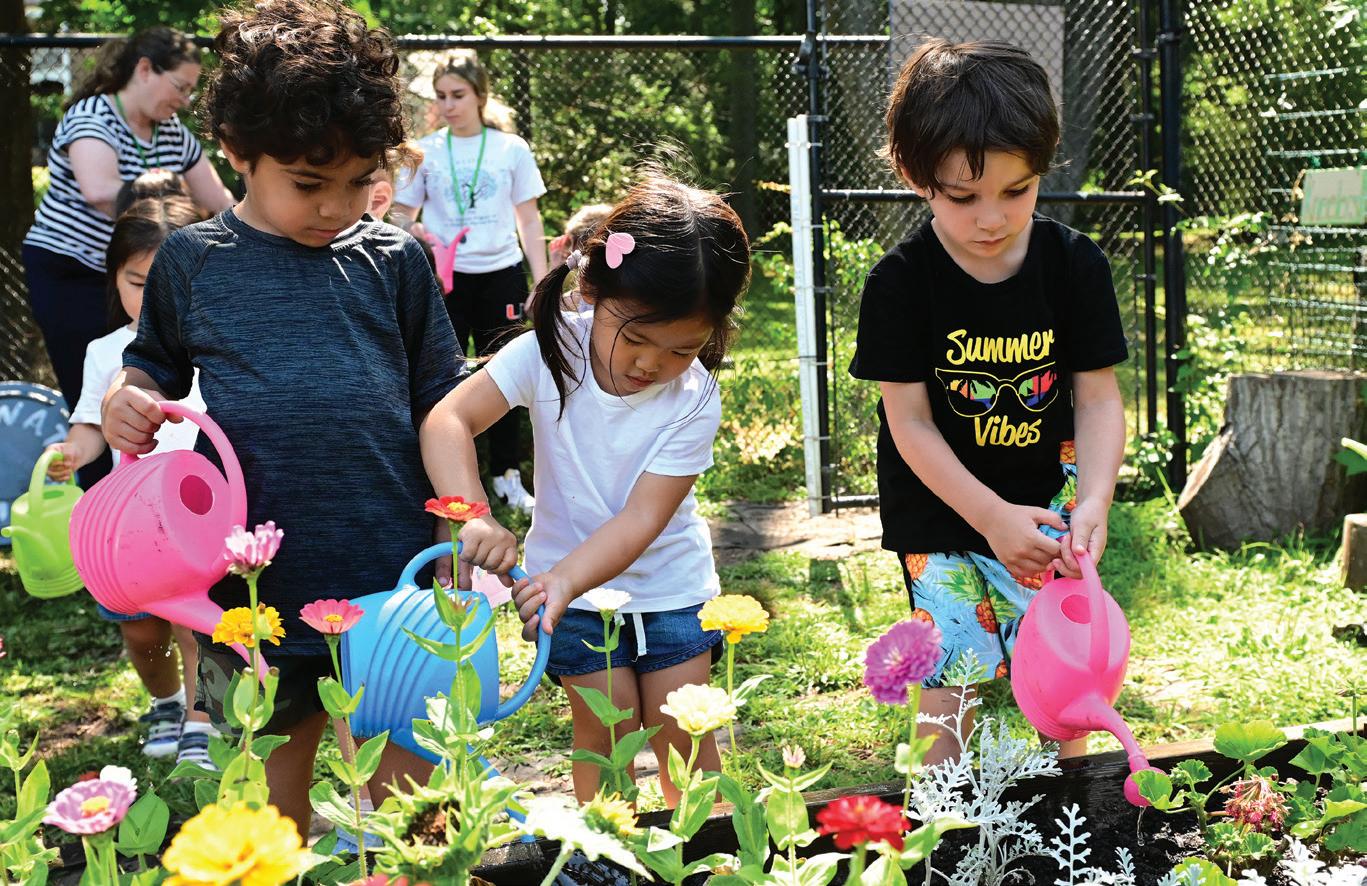
“Parents want their students to stay engaged over the summer and maintain the skills they’ve worked so hard to develop during the school year, and we do that in a hands-on, fun and creative way—our campers never feel as though they’re in school,” says Director of Auxiliary Programs Liza Hards.
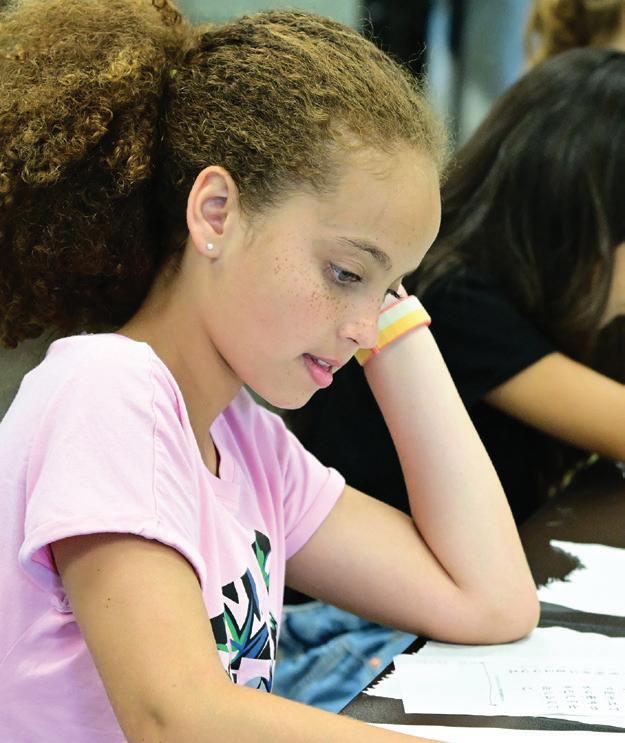
Summer Explorations is open for six weeks for children ages two through the ninth grade; half- and full-day options are available. Programming for kids ages two up to first-graders is developed around a weekly theme and incorporates outdoor activities and creative projects. Kids in grades 2-6 customize their experience by choosing weekly workshops, including science, art, coding, app design, creative writing, theater, music and nature exploration. Kids in grades 7–9 develop strong leadership skills through the Leaders in Training program, an intensive three-week course.
“Students are learning and keeping skills sharp…with plenty of opportunities
to collaborate, communicate and create within a supportive and caring community,” Hards says. “We see our campers’ confidence grow tremendously over the course of the summer.”
Whether it’s little ones in a classroom or workshops for the older kids, the school’s
certified educators know how to encourage students to follow their passions while also taking advantage of opportunities to try something new. “Our goal is to provide young people with exciting opportunities, guided by our dedicated staff to learn, grow and play, with a focus on developing personal interests and making their own choices,” Hards says. “It’s the perfect summertime recipe.”
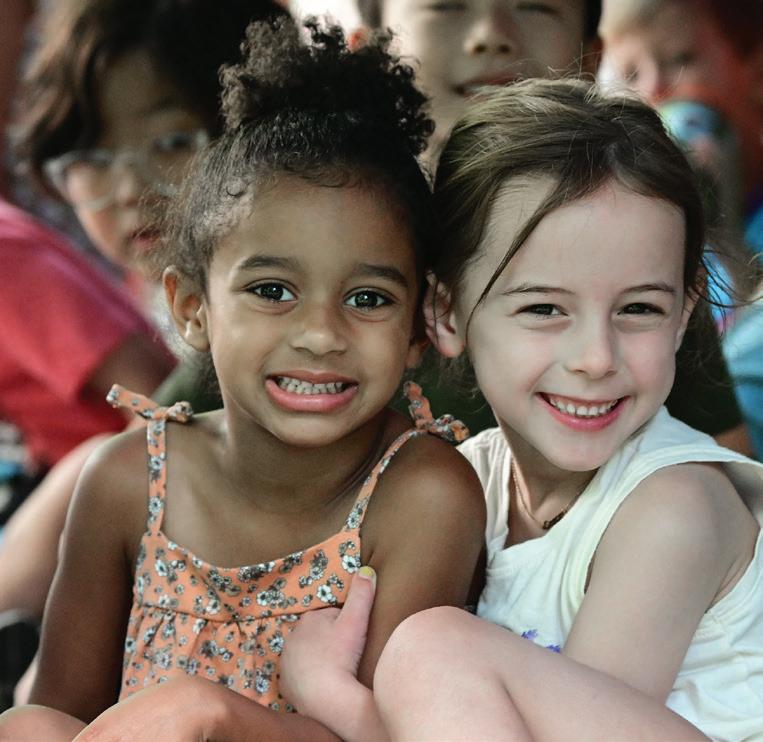
75 Knickerbocker Rd., Englewood • 201-871-8808 • abilityschoolnj.org
The Ability School’s summer camp program blends all the pleasures of summer—from outdoor adventures to arts and crafts— with opportunities for children ages 4-12 to enhance their skills in reading, mathematics, writing, science, study skills and more.

Students can either catch up or get ahead with their academics in small classroom settings in the morning while enjoying exciting camp activities in the afternoon. From picnics, nature walks and water fun to games, theater activities and weekly field trips, there’s no shortage of fun, but parents appreciate that their children can also keep their study skills fresh all summer long.
“Our camp is unique in that we blend academics with fun and play,” says Headmistress Joan Marrazzo. “We conduct assessments and consult with parents to determine each child’s strengths and
weaknesses and decide what they might want to work on over the summer.”
Morning classes are taught by Ability School teachers, who provide individualized instruction in small classroom settings. Camp runs from June 26 through August 11, Monday through Friday from 9 am to 4 pm. Three- to seven-week sessions are available, each with their own unique themes and activities.
“Parents love the fact that their children
are learning in a relaxed classroom environment that’s geared towards building their confidence and foundation in areas that they may want to strengthen before the next school year, but they’re also having a lot of fun and going on trips in the afternoons,” she says. “Our camp students come back year after year because they know they’ll have a fun and productive summer and never once feel as though they’re spending their time in summer school.”
For more than 60 years, Appel Farm Arts Camp has sparked the imaginations of thousands of young people from around the world in beautiful, rural southern New Jersey.
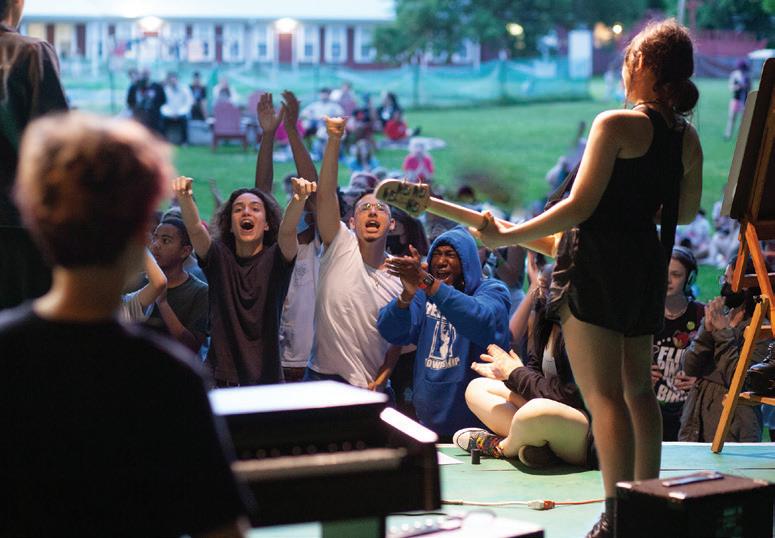
An overnight summer arts camp for ages seven to 17, Appel Farm provides a safe space for campers to be themselves and explore art free of judgment where safety, community, personal growth and fun are valued.
Small class sizes that engage mixedage groups are available in music, theater, technical theater, dance, visual arts, photography, media arts, environmental arts, creative writing, sports and swim. Campers also enjoy free time, workshops, trips, campfires, performances and special events.
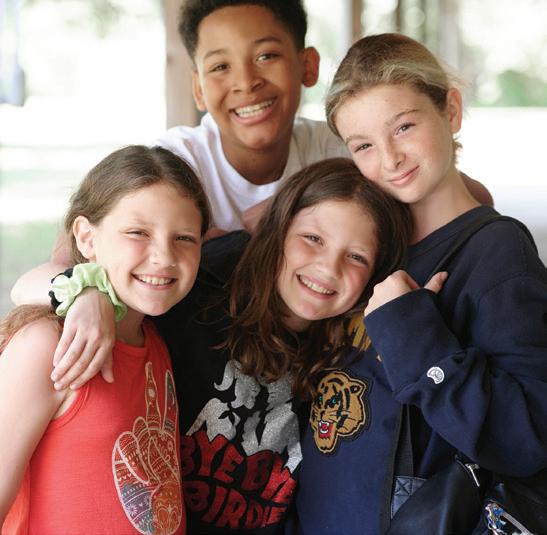

Appel Farm works to be an explicitly anti-racist, anti-sexist, trauma-informed, trans-inclusive and gender-affirming space for both staff and campers.
“We’re a place where kids can come to be themselves,” says Tanner Rushing, assistant camp director. “Whether a child is the star of their school’s drama club or they’ve never picked up a paintbrush, they will feel comfortable and supported here at Appel Farm.” Community is one of the core values at Appel Farm; campers are taught to be kind and support each other.
Campers and parents alike appreciate
the autonomy campers are given over their art and portions of their schedule. “During their free time, kids may be running lines, jamming on the picnic tables, swimming in the pool or playing gaga,” Rushing says. “Our goal is to ignite creativity, kindness and confidence in our campers. Watching campers grow and become more confident, more empathetic and more independent as artists and people is a truly magical thing to witness.”
For more than 50 years, Apple Montessori summer camps have offered the perfect blend of fun and learning. The camp balances traditional summer activities with academic instruction to ensure that children continue to advance and avoid summer learning loss, all while building friendships and lasting memories.
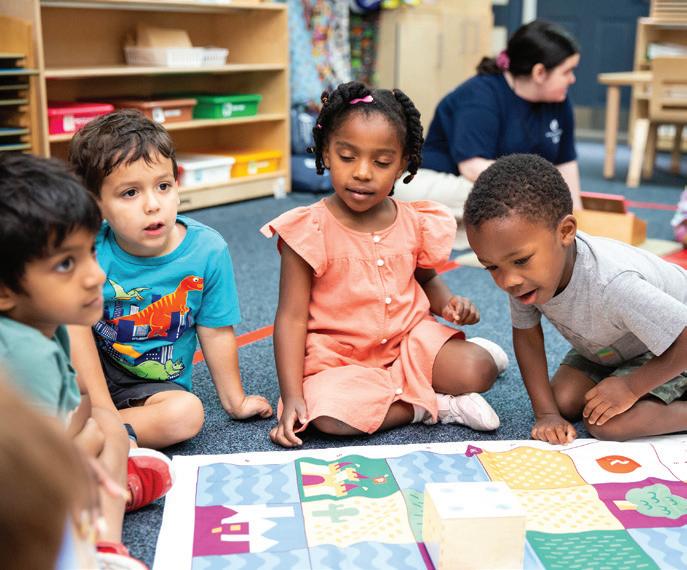
“We’re more excited than ever for camp this year. With the pandemic mostly behind us, we’re able to pivot our attention to creating opportunities for socialization and improved mental health,” says CEO Andrea Vargas.
With multiple locations across New Jersey, the summer camp program is open for a total of eight weeks (with a flexible weekly minimum) and offers half- and full-day options. Each day is filled with indoor and outdoor immersive adventures and activities including coding, robotics, music, drama, art, sports, Montessori

Big Blue Marble Academy’s (BBMA) Passport to Adventure Club is a high-energy, fun-filled summer camp. The full-day camp takes global learning to a deeper level through hands-on and multi-sensory experiences, virtual field trips, interactive interest-based clubs and world language learning.
Open to school-age children, BBMA’s summer camp combines fun and learning, and allows campers to create lasting memories and lifelong friendships. The summer theme is also incorporated into the preschool program with on-site activities. “Our exciting summer camp takes global learning to the next level,” says Center Director Brittany Feliciano.
This summer’s theme is “More than Music Global Music Tour.” Campers will navigate their way around the globe as they explore musical artists from different countries while participating in educational experiences designed to develop
lessons, special events and field trips. Camp activities are designed to build each child’s confidence and independence and facilitate a smooth transition into the fall. “Camp is a wonderful time to see students coming together for continued learning and rewarding play experiences,” Vargas says.
Most locations offer daily swim lessons with Red Cross-certified instructors, while
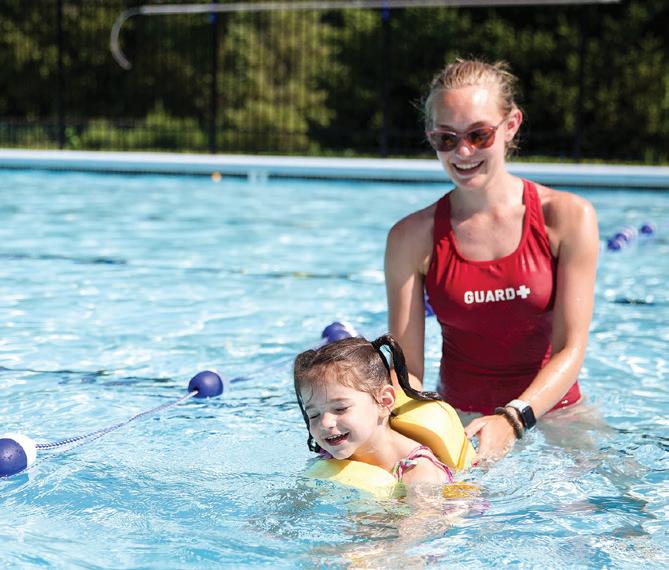
some offer splash pads and sprinklers. Daily lessons help each child build upon their skills—by the end of the summer, most campers have greatly improved their confidence and comfort levels in the water.
“Every summer we’re so happy to see children outside, making new friends and memories at our summer camp,” Vargas says.
their knowledge and physical, language, communication, cognitive (STEAM), social and emotional skills. Themed camp activities include STEAM, music, drama and art, sports and field trips. The camp also invites vendors to provide special events ranging from bubble shows to reptile presentations. “Whether it’s a field trip to a bowling alley or pool, or participating in an on-site program taught by a local art teacher,
everything is very hands-on and the children always have a great time,” Feliciano says.
BBMA also upholds its ongoing commitment to service all summer; last year, campers worked together to create materials and help educate the community about Alex’s Lemonade Stand, a pediatric cancer charity. “We strive to instill a passion for community service in children starting at a young age,” she says.
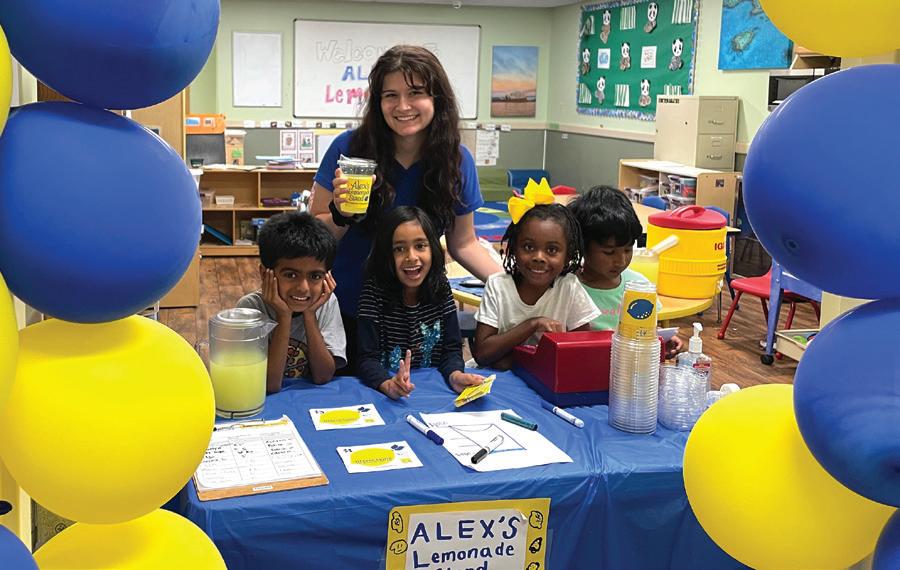
335 Sylvan Lake Rd., Hopewell Junction, NY • 845-221-2771
Founded in 1927, Camp Kinder Ring is a nurturing Jewish community where the goal of making the world a better place for all is introduced to campers in a fun, safe and joy-filled environment. The camp offers a wide variety of activities, from sports and gymnastics to cheer, mountain biking and archery. Campers can swim in a heated pool and Sylvan Lake with non-motorized boating and inflatables.
“We delicately weave Jewish values into everything we do—and all while allowing our campers and staff to enjoy a traditional residential camp experience,” says Dr. Marc Rauch, camp director.
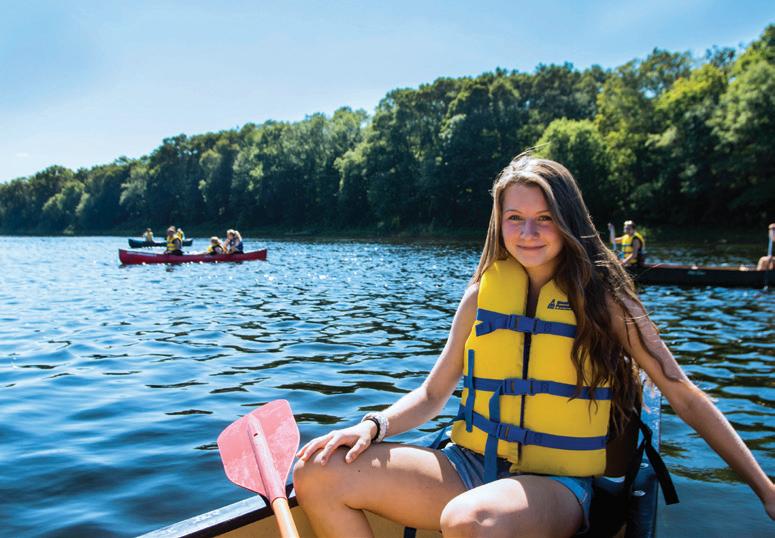
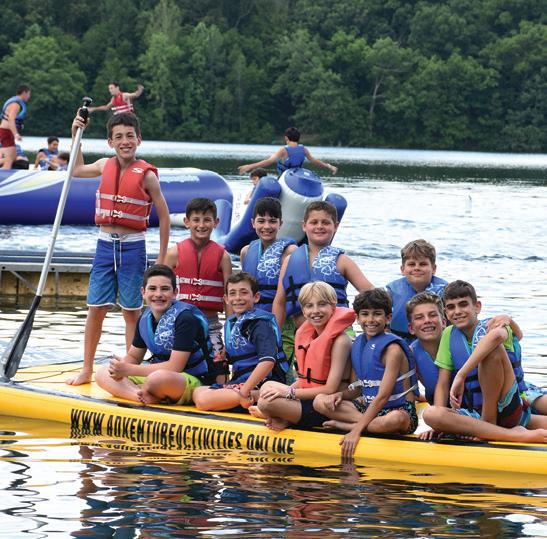
Camp Kinder Ring offers a diverse arts and crafts program including woodworking, ceramics, glass making and textiles, a hands-on and impactful Jewish cultural program, a state-of-theart adventure center complete with zip line, bungee jump, ropes courses and dance and drama programs. New for this
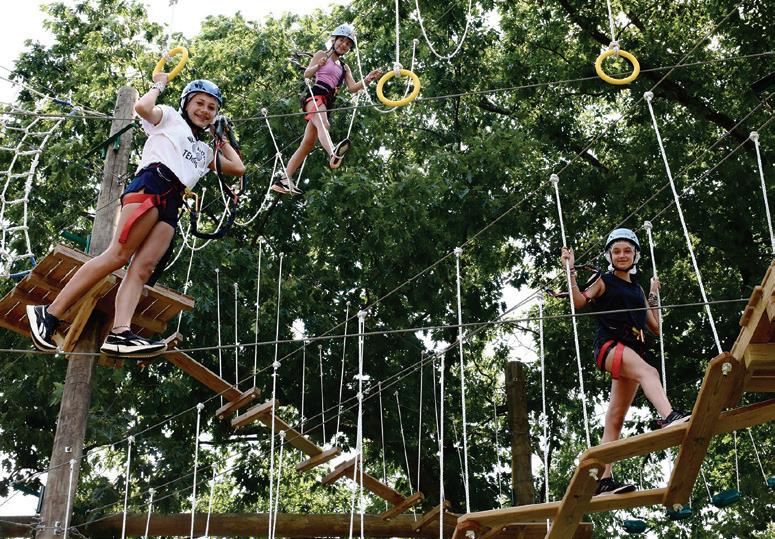
summer is a pickleball center with eight courts.
“We work tirelessly to create a camp community focused on our mantra— Friendship, Love and Spirit—which means being kind to one another, caring for one another, accepting differences and allowing alternative perspectives,” Rauch says.
Older campers participate in overnight trips upon entering seventh grade, while younger campers enjoy ice cream in the
campkr.com
local town, bowling and day trips. The camp brings in top-rated entertainers throughout the summer including musicians, hypnotists, magicians, drumming circles, dueling pianos and bubble parties.
“Our families always tell us how impressed they are with the connections their children made and the values they were taught at camp—and the overall incredible summer camp experience we provide,” he says.
• campmason.org
Every camper counts at YMCA Camp Mason. “We like to say Camp Counts!’’ says Chief Executive Officer Keith VanDerzee. “It means we never lose sight of the importance of each of our campers. We provide them positive outlets and impactful experiences to be their best selves, build meaningful relationships and grow within our larger camp community.”
Founded in 1900, Camp Mason is adjacent to the Delaware Water Gap National Recreation Area, and offers oneand two-week sessions where campers can choose camp staples like swimming in an Olympic-sized pool, boating, archery, arts and crafts and sports. There are also plenty of other programs, including movie-making, a climbing tower, a zip line, ax throwing, skateboarding, making the band and more. “Every camper finds programs that interests them,” VanDerzee says. “Also, our location next to the Delaware Water Gap enables us to run unique experiences like tubing
on the Delaware River and hiking on the Appalachian Trail, included in the cost of camp tuition.”
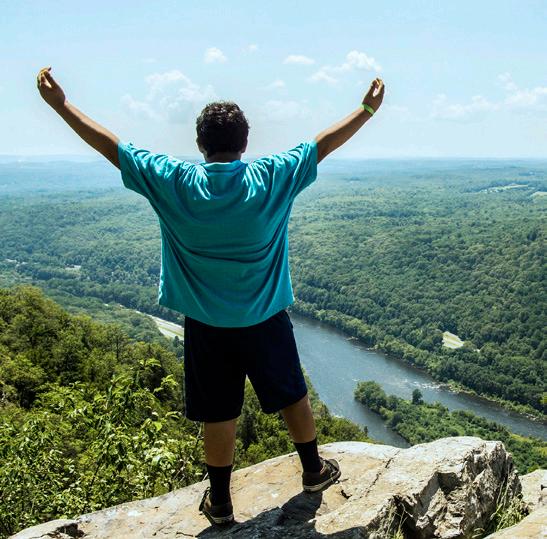
VanDerzee takes pride in Camp Mason’s facilities, which include comfortable cabins and abundant program areas that help campers make the most of their experience. He also mentions the camp’s generous scholarship program, low counselor-to-cabin ratio and highlights the fact that campers and staff come from
all over the world. “Camp Mason’s diverse and inclusive community provides a great opportunity to appreciate our global community.”
In the end, he says, “Camp Counts means that every child has a camp experience uniquely their own. Our campers learn essential skills being immersed in our experiences, develop relationships and explore positive values, all while being celebrated for being themselves.”
888 Worcester St., Ste. 350, Wellesley, MA • 781-489-2070 • cohencamps.org
New England’s three Cohen Camps cultivate friendships and Jewish values, and each shines with its own personality. Near Cape Cod, Camp Pembroke is a unique sisterhood for girls. On lakes in southern NH, Camp Tevya and Camp Tel Noar are co-ed. Campers ages 7-16 enroll for three-and-a-half or seven weeks.
Younger first-timers can try Tel Noar for one week or Pembroke for two weeks. First-timer and sibling discounts are available, along with up to $1,000 from onehappycampernj.org for a first summer at a Jewish camp.
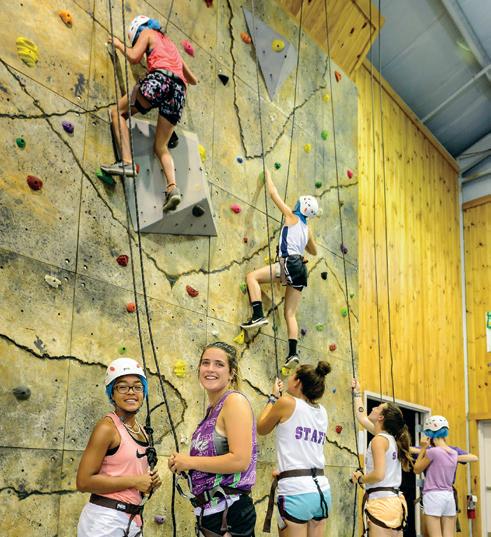


“Parents choose the Cohen Camps to get the warmth of a family-run nonprofit organization along with our 90-year legacy. We can help them choose which camp fits their child,” says President Jonathan Cohen, whose grandparents founded the camps. “What sets our camp experience apart is how we build community, connect with each other and grow as people and in
our Jewish identity.” The camps are nondenominational and kosher, welcoming families of all Jewish backgrounds.
At all three camps, children and teens live the magic of summer—friendships, outdoor living, arts, swimming and sports. “We create a balanced program with more and more electives as you age—there really is no ‘ordinary’ day at camp,” Cohen says.

Campers enjoy lakes featuring beaches, canoes, kayaks and sailboats, athletic
fields, tennis courts and a gaga pit. Each camp has photography, videography and creative arts.
“Our great staff is the heart of what we offer,” notes Cohen. Much of the staff grew up at camp and are committed to giving the next generation of campers great summers, too. “Parents tell us their children and teens think of camp as their ‘happy place,’” he says. “That makes us happy, too.”
Curiosity Camp at Simon’s Rock is a camp for inquisitive and motivated students completing grades 9, 10 or 11 who are interested in exploring their academic and creative interests in a college environment. The camp is located on the campus of Bard College at Simon’s Rock, which enrolls students who are ready to begin working on their bachelor’s degree after the 10th or 11th grade. The campus is also home to Bard Academy, a unique twoyear high school for students planning to begin college early.
“Curiosity Camp gives campers an inside look into what life and academics are like at Bard College at Simon’s Rock and Bard Academy,” says Susan Lyon, vice provost at Bard College at Simon’s Rock. “Our students leave Curiosity Camp with an understanding of a college environment, experience across diverse academic courses and opportunities to make new connections with peers—and all before they’ve
completed high school.”
Camp includes Simon’s Rock’s signature Writing and Thinking Workshop along with a seminar, as well as arts and science courses for campers to experience diverse and exciting academic offerings. “Parents have said that attending Curiosity Camp gave their student more confidence and a better sense of the experiences and academics they’ll be looking for when applying to colleges in the future,” Lyon says.
Located in the Berkshires, Simon’s Rock’s includes a beautiful 275-acre wooded campus, the state-of-the-art Kilpatrick Athletic Center, nearby downtown Great Barrington and planned excursions to cultural and historical attractions.
“Our campers enjoy having the opportunity to explore new academic topics in creative, exciting and hands-on ways,” she says.
52 Great Hills Rd., Short Hills • 973-379-3442 • farbrook.org/summer
Rooted in deep traditions and experiential programs, Far Brook School’s summer camp aims to provide students with a truly meaningful experience that reflects the school’s educational approach—hands-on, inquiry driven; intentionally diverse, small community; arts-infused and STEAM powered; and grounded in nature.
Since 1948, Far Brook’s progressive approach has provided a unique combination of essential inquiry-based learning that’s intrinsically connected with high academic standards. “These values inspire campers to fuel their passions and awaken their curiosity by creating a supportive and caring camp community that cherishes love of learning, movement, creativity, diversity and individuality,” says Director of Auxiliary Services Melissa Williams.
Camp is held on Far Brook’s beautiful wooded, nine-acre campus that’s more akin
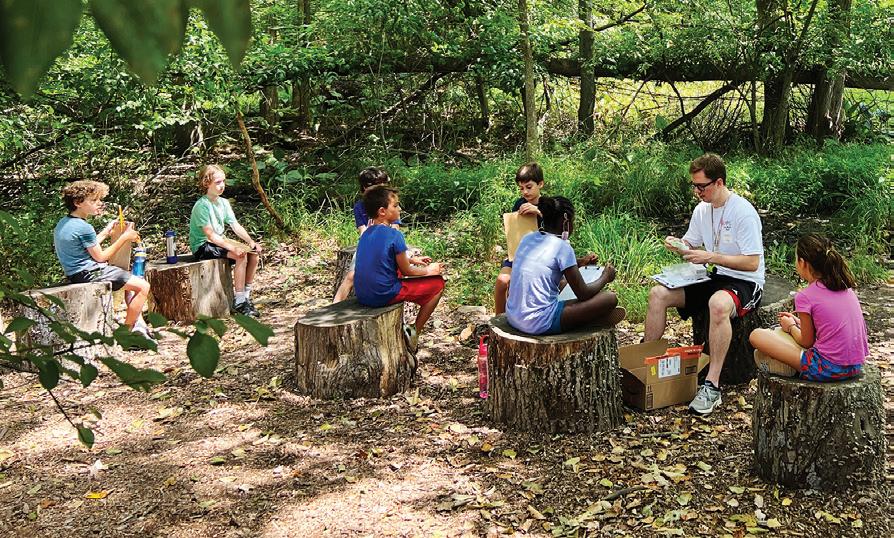
to a small village than a school. Facilities include an indoor climbing wall, multipurpose spaces, music and arts building, walking path and nature trail.
Sessions are spread over nine weeks for preschoolers through tenth graders; open enrollment begins in early February. Options include a traditional day camp and weeklong “Master Classes” taught by Far Brook faculty. There are also weeklong athletic programs focusing on skill
development, rules of the sport and game play. Lunch is available for purchase and the camp also offers morning and afternoon extended hours.
“Parents have told us that they love our campus, facilities and highlycredentialed staff, but most importantly that our program combines play with thinking—and that there’s something for every one of their children at our camp,” Williams says.
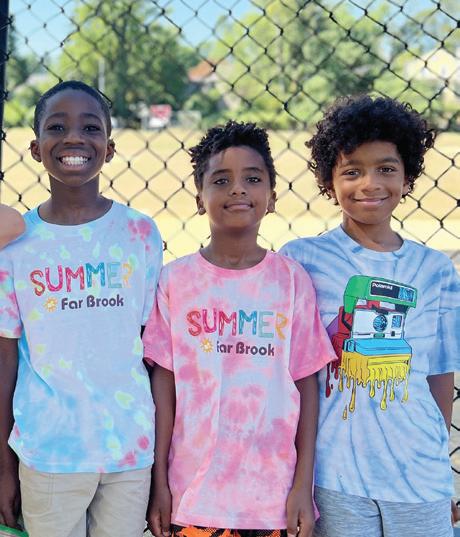
350 Riverside Ave., Rutherford • headcoach@nereidbc.org • nereidbc.org
Nereid Boat Club’s summer camp program offers the perfect opportunity to experience the sport of rowing. Designed for newcomers to the sport, the two- or three-hour weeklong summer camps allow campers to enjoy the outdoors and get some exercise while making new friends. Camp is open to students going into sixth through 12th grades.
“Our camp provides access to a sport that a lot of people don’t know much about,” says Zach Spitzer, head coach and director of Nereid Boat Club. “It’s a great opportunity to see if the sport is for you, or to experience rowing in a new way.”
The boat club is home to world-class coaches who provide an elite experience, even to beginners. Nereid combines lessons in safety and basic rowing skills with fun activities and games to keep the camp experience exciting. The last day of each weekly camp features a scrimmage between
campers.
“Our camp families love having the opportunity to see the progress their child has made and, in many cases, watch them compete in a sport that they may have just learned for the first time that week,” Spitzer says.
Camp directors are committed to fostering a team-like environment. “Rowing is the ultimate team sport, and many of our campers have formed lasting friendships

from just one week of summer camp,” says Jessica Eiffert-Spitzer, head of athlete development and head varsity girls coach. “We see a transformation in all of our campers, not only physically but mentally and emotionally. It’s so exciting to see the kids gain so much confidence and conquer a sport they didn’t think they could do—it’s no surprise that so many of our campers step into that boat and never want to stop rowing.”
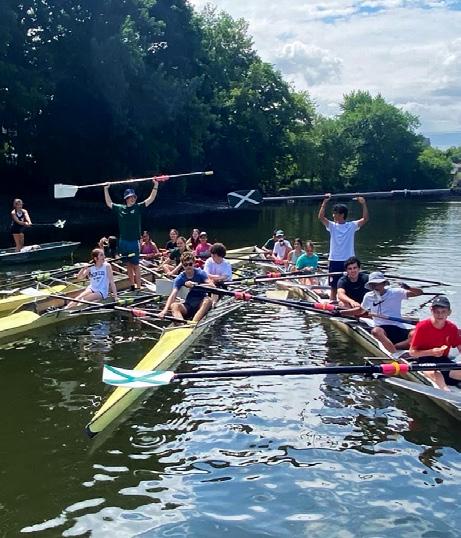
91 South Orange Ave., Livingston • 973-992-7000 • Newarka.edu/summer-programs
If your child is seeking a fun and enriching experience this summer, look no further than Newark Academy (NA), where you’ll find an array of rigorous and exciting learning experiences for students entering kindergarten-12th grade. From late June through early August, Newark Academy Summer Programs proudly offers more than 250 academic classes and a host of activities including a baseball camp, new athletic camps focusing on specific sports and a new jazz camp!
“Our students end the summer not only better prepared for school in the fall, but they also have opportunities to learn from peers and instructors who’ll encourage their development and growth,” says Newark Academy Director of Summer Programs Nancy Celente. “Whether they’re a young learner entering kindergarten grappling with key math concepts, an 8th grader who wants to improve their soccer skills or a rising senior developing their analytical
writing, there’s something for students of all ages and interests.”
Established more than 50 years ago, Newark Academy Summer Programs provides campers with a variety of opportunities to sharpen their minds and hone their athletic and artistic skills. The Academic and Enrichment Program includes courses in SAT/ACT Prep, art, STEM, writing, languages, coding and leadership. NA’s NA-X courses are
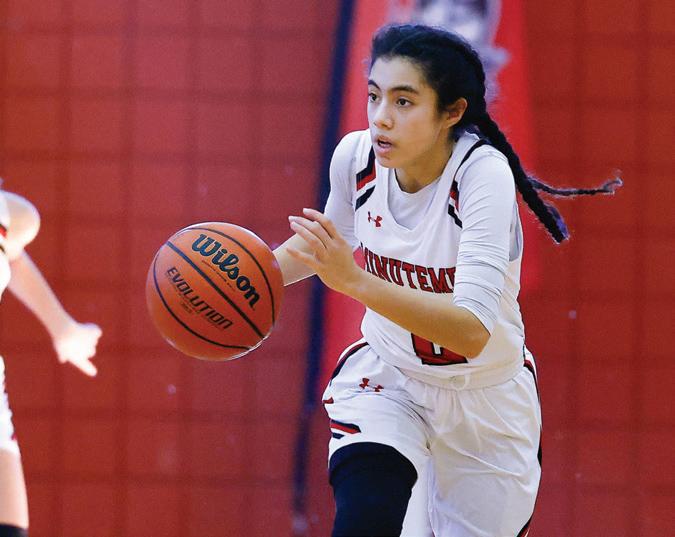
taught exclusively by NA teachers and administrators who engage students in experiential learning and Mott-Leeney Baseball Camp offers top-notch instruction. This year, NA will debut its Summer Athletic Camps for students in grades 3-8 and the JTole Summer Jazz Camp for students in grades 6-12. “We look forward to once again welcoming more than 1,400 students to our camp, where they can find inspiration,” says Celente.
248 Herbert Ave., Closter • 201-784-7600 • palisadescountryday.com
Palisades Country Day Camp
(PCDC) was built and designed exclusively for the young child; the campers’ ages start at 21 months, known as “Tiny Tots,” through age eight, known as “Senior Campers.” Owners MaryAnn and Richard Hubschman are excited to be celebrating PCDC’s 30th year.
Conveniently located close to the city and accessible to all of Bergen County, PCDC is home to seasoned camp professionals and educators with extensive early childhood experience. “Some of the things that set us apart are that we are ACA-accredited, have beautiful campgrounds for campers to enjoy and a welcoming, nurturing staff who return year after year,” says Niki Livanis, the camp’s enrollment coordinator.
PCDC is known for its outstanding swim program. American Red Crosscertified lifeguards teach the youngest campers aquatic basic skills and water
safety while helping older campers build upon their previous aquatic abilities and master new skills—and all while improving self-confidence and building self-empowerment.
Each camper enjoys swimming twice daily in our heated pools. Every morning campers receive age- and skill-appropriate swim lessons and in the afternoon they can enjoy recreational swim and an aquatic splash park. The camp’s other offerings
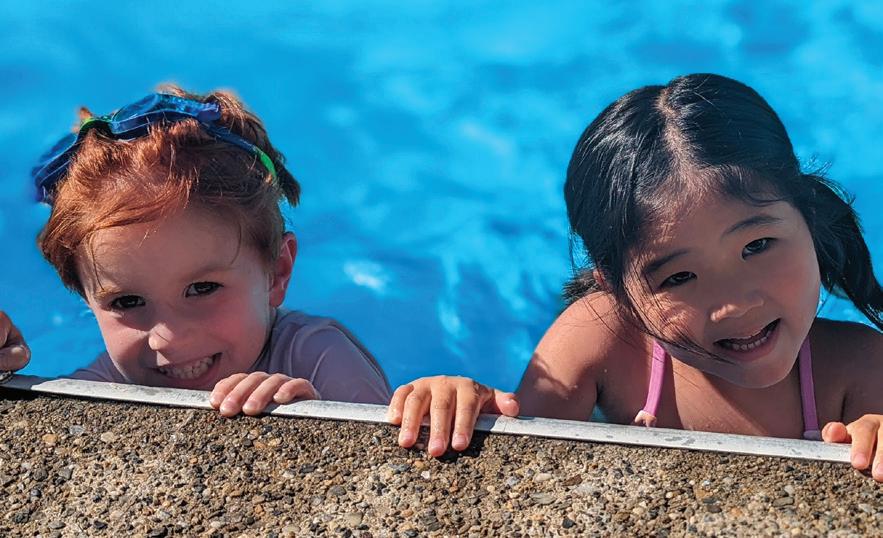
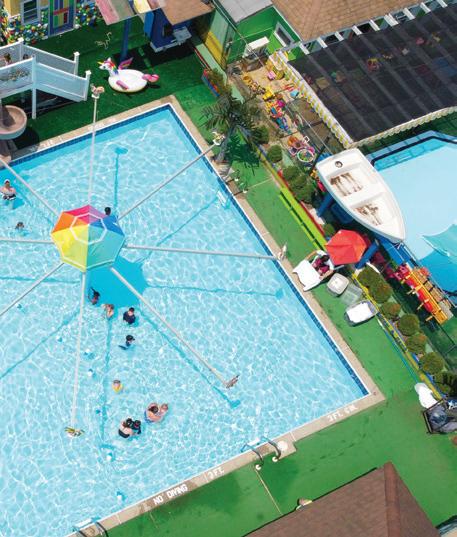
include theme days, arts and crafts, ceramics, sports and music. Enrichment programs for the senior campers include cooking, science, Lego, robotics/coding, dance and woodworking.
“We are a close-knit camp community, building strong connections with one another and establishing lifelong friendships,” Livanis says. “Many of our campers return years later as counselors to spread the PCDC magic.”
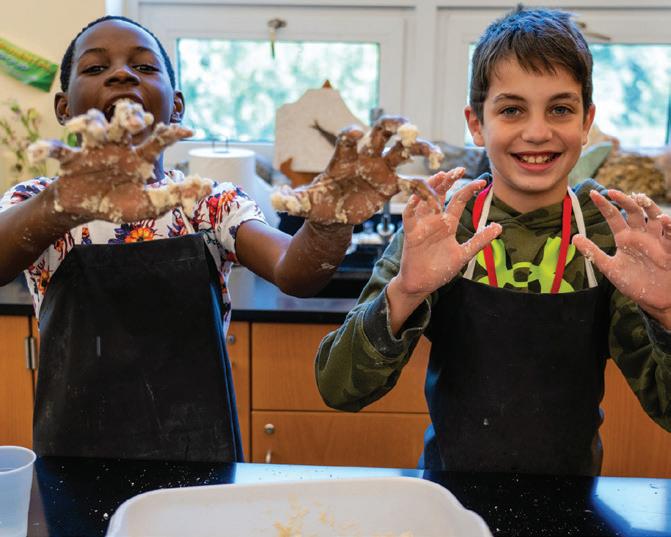
131 Millburn Ave., Millburn • 973-755-2253 • ptwonline.com
Since 1983, Performers Theatre Workshop (PTW) has provided top-notch training and created a supportive community that empowers young performers to shine. This summer, students can experience live performances, breakthroughs and fun led by awardwinning faculty who have appeared on Broadway, film and TV.
The PTW Junior Camp for ages five through eight offers two three-week sessions to introduce and establish the building blocks of performing, foster creativity and nurture self-esteem.
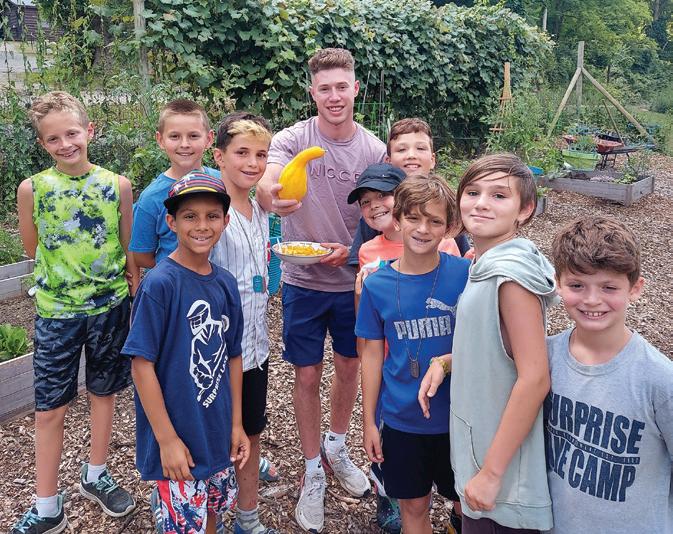
The Summer Broadway Showcase and Conservatory for ages nine through 18 allows students to enhance their performance technique through private lessons and conservatory ensemble classes.
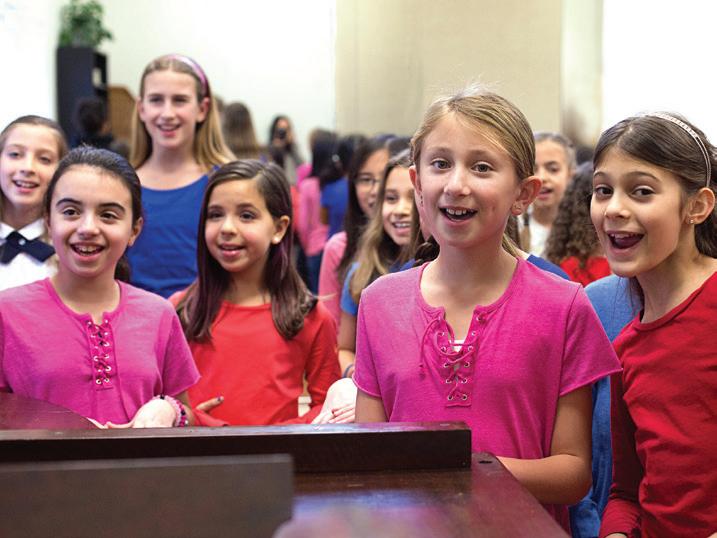
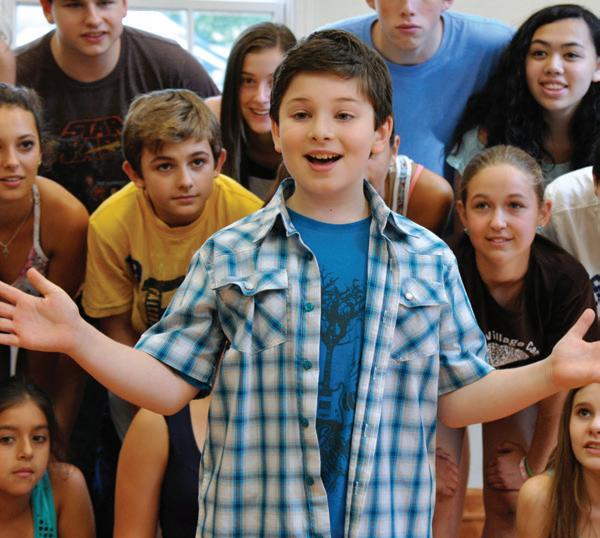
Students select a concentration in musical theater, voice, acting or dance to perform in a NYC showcase attended by industry agents, managers, casting
directors, friends and family. Private lessons, “Technique Week” and college prep are also available.
“We offer many diverse opportunities for students to focus on their interests,” says Executive Artistic Director Dean Kravitz. “We provide individual attention to each and every student to help them achieve their unique goals—and in our shows, everyone gets the chance to shine.”
This summer will also feature the shows
382
The country’s longest-running Jewish sleepaway camp, Surprise Lake’s mantra is: Unplug. Connect. Grow.
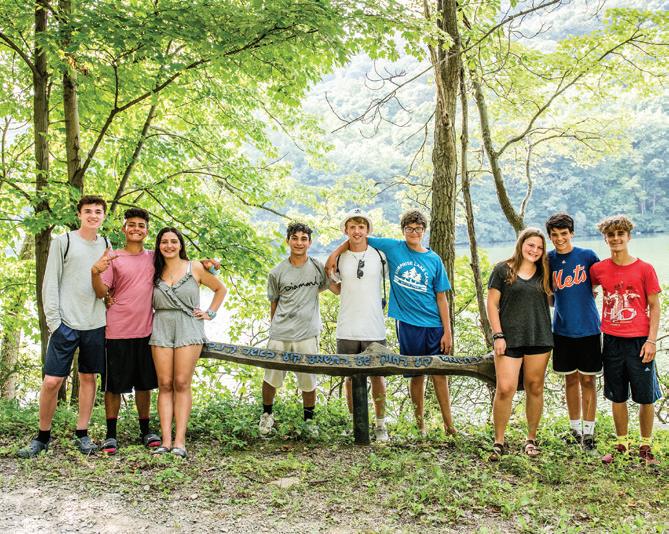
“Our mission is to create a nurturing camp experience in which young people learn essential life skills by being immersed in nature, developing relationships and exploring Jewish values. Everything we do at camp reflects these goals,” says Camp Director Sheryl Kirschenbaum. “We’re unplugged and strongly believe kids need to be kids…we disconnect to reconnect.”
It’s an approach that has worked since Surprise Lake’s founding in 1902. Today the 360-acre camp for ages 7-16 has a pool and offers water sports and dozens of specialty electives so campers can choose their own summer adventures. Campers can play on brand new tennis courts and an archery range, and Surprise Lake is always incorporating special experiences like balloon animal making, juggling or
young scientists.
“With so many options, campers find lots to love,” Kirschenbaum says. In addition to the traditional blend of summer fun and Judaism, the camp provides a well-rounded program where kids can be kids and disconnect sans phones for the summer. The camp also received a grant to hire additional social workers to work with both campers and staff to address any mental or emotional
Students can experience the excitement and camaraderie of being in the cast while building their technique during a fun and fast-paced two weeks of rehearsal.
“We’ve created a safe environment for students to explore who they are as artists and as people, and because of that they’re able to take risks and grow—and form lifelong friendships,” says Executive Program Director Elisabeth Kravitz.
struggles they may still be dealing with after the challenges of the past two years.
“With so much to experience and choose from, Surprise Lake is truly a special place—we like to think of it as a home away from home for generations of happy campers,” she says. “Our campers build friendships that last a lifetime, and in a time when the outside world can feel a little crazy and out of control, our camp has become a safe haven for kids.”
1295 Inman Ave., Edison • 908-754-1882 • whschool.org

At Wardlaw + Hartridge, campers have the opportunity to learn and explore all while having lots of fun. The summer camp’s smaller size means that each and every child receives personalized attention from caring counselors—most of whom are former campers, current students or alumni. Parents appreciate the relationships that their children build with the camp’s team of caring, passionate counselors and staff.
“We aim to provide a safe environment for all children where they can develop a sense of independence while learning through hands-on creating, play and games,” says Dawn Cancryn, who has served as director of auxiliary services and summer programs since 2012.
The hands-on approach is an extension of the educational model at Wardlaw + Hartridge, a co-educational college preparatory day school known for its small class sizes. “The kids are always
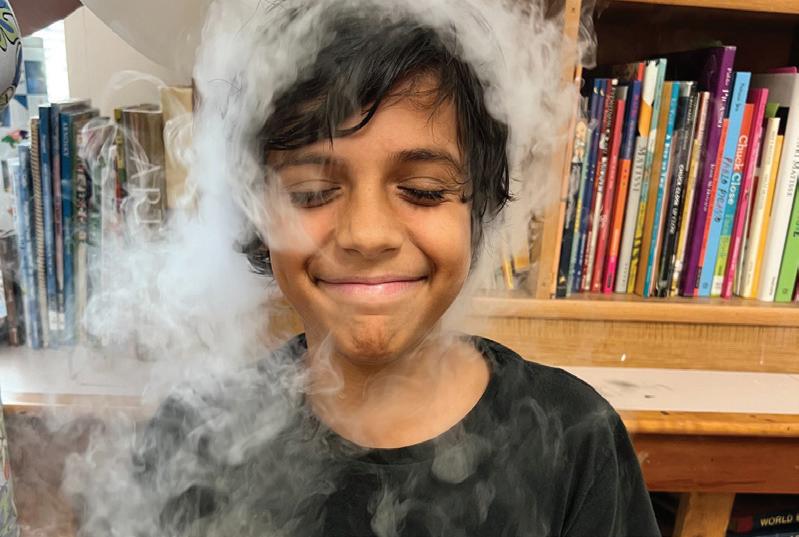
having fun at camp, but they’re also learning a lot of new things—we base our activities around weekly themes which include art, games, music, cooking, trips or events and recreational and thinking games,” Cancryn says.
Camp is held on the school’s Edison campus, but campers also have the opportunity to participate in weekly field trips and special events. Wardlaw + Hartridge is home to an indoor swimming
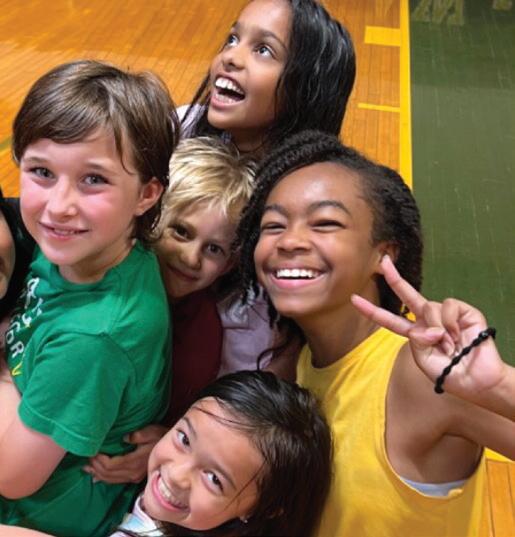
pool, tennis courts, two gymnasiums, acres of playing fields, art rooms, STEM rooms and classroom spaces. Weekly sessions include freshly made hot lunches, however transportation is not provided.
“We ensure that each camper enjoys a safe, comfortable environment where they can make new friends, be challenged to learn more about their world and themselves and be amazed at what they can accomplish,” she says.

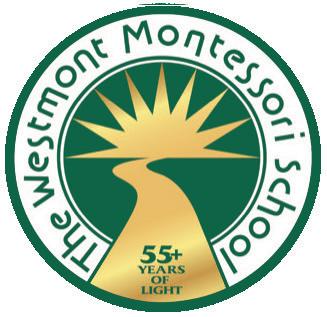
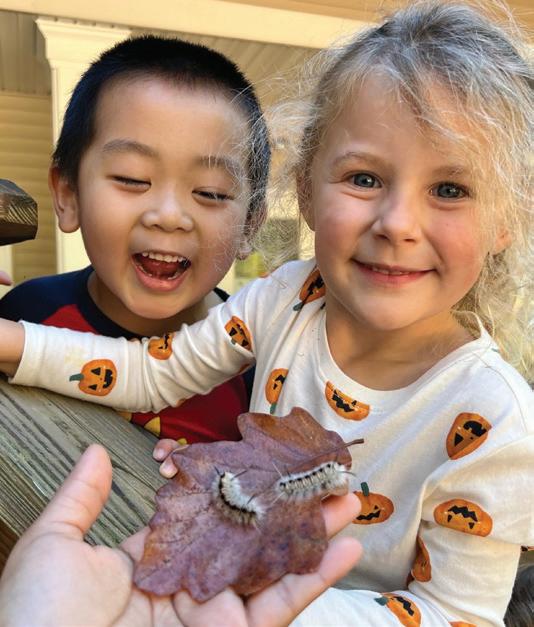
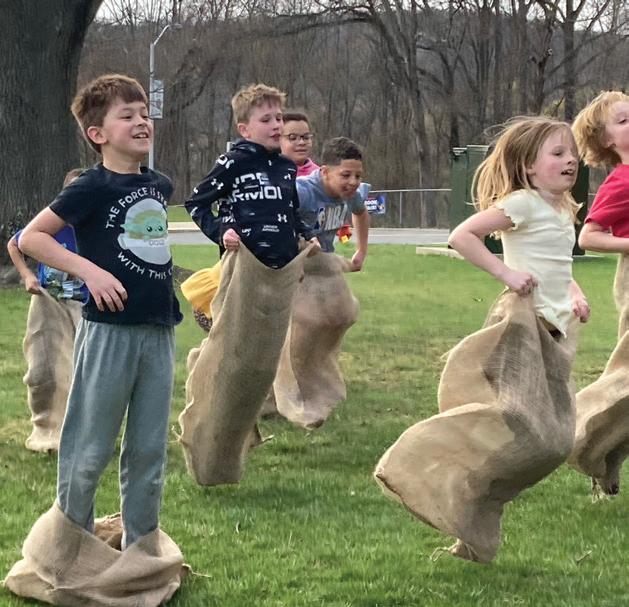





S u m m e r c a m p o p t i o n s f o r
b o y s a n d g i r l s a g e s 3 - 1 7 !
D a y C a m p
J u n e M i n i C a m p s
K i n d e r g a r t e n R e a d y
S u m m e r S c h o l a r s
N o w e a r n c o u r s e c r e d i t !

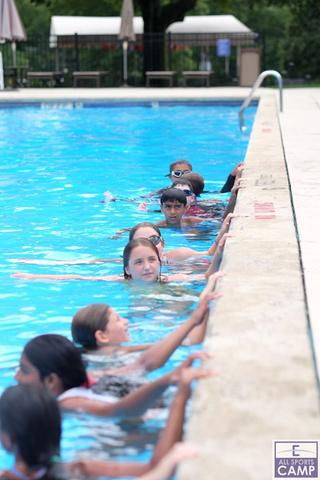


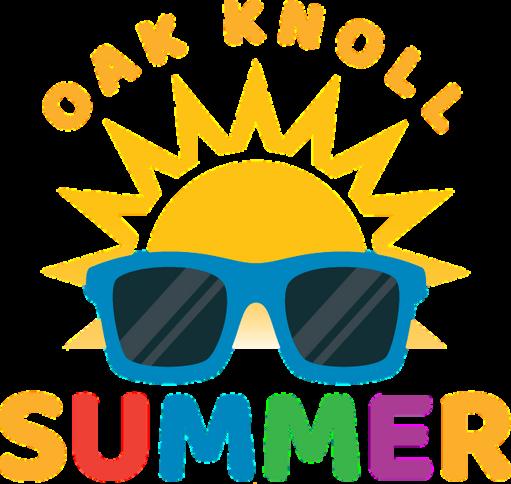
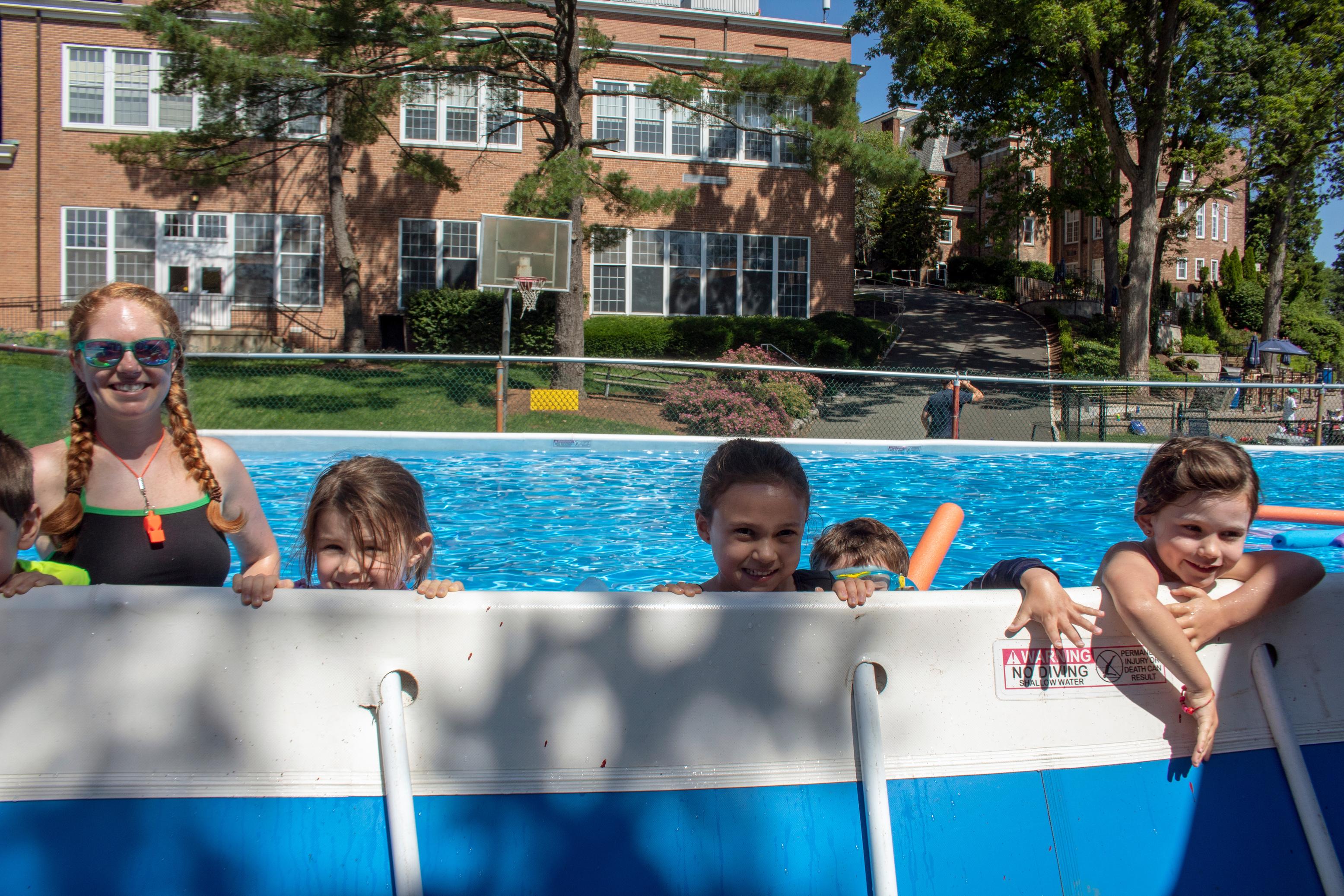
AGES 4-12
A F u n W a y t o E n j o y t h e S u m m e r w i t h
S p o r t s , S w i m , A r t & A c t i v i t e s G a l o r e !
A t t h e s t u n n i n g c a m p u s o f E d g e w o o d C C i n R i v e r V a l e , N J

F o r M o r e i n f o r m a t i o n , c o n t a c t
M a r i l y n T i n e o , C a m p D i r e c t o r
E d g e w o o d C o u n t r y C l u b M e m b e r s h i p n o t R e q u i r e d 9 7 3 . 8 2 0 . 6 3 9 6 m a r i l y n @ e d g e w o o d n j . c o m


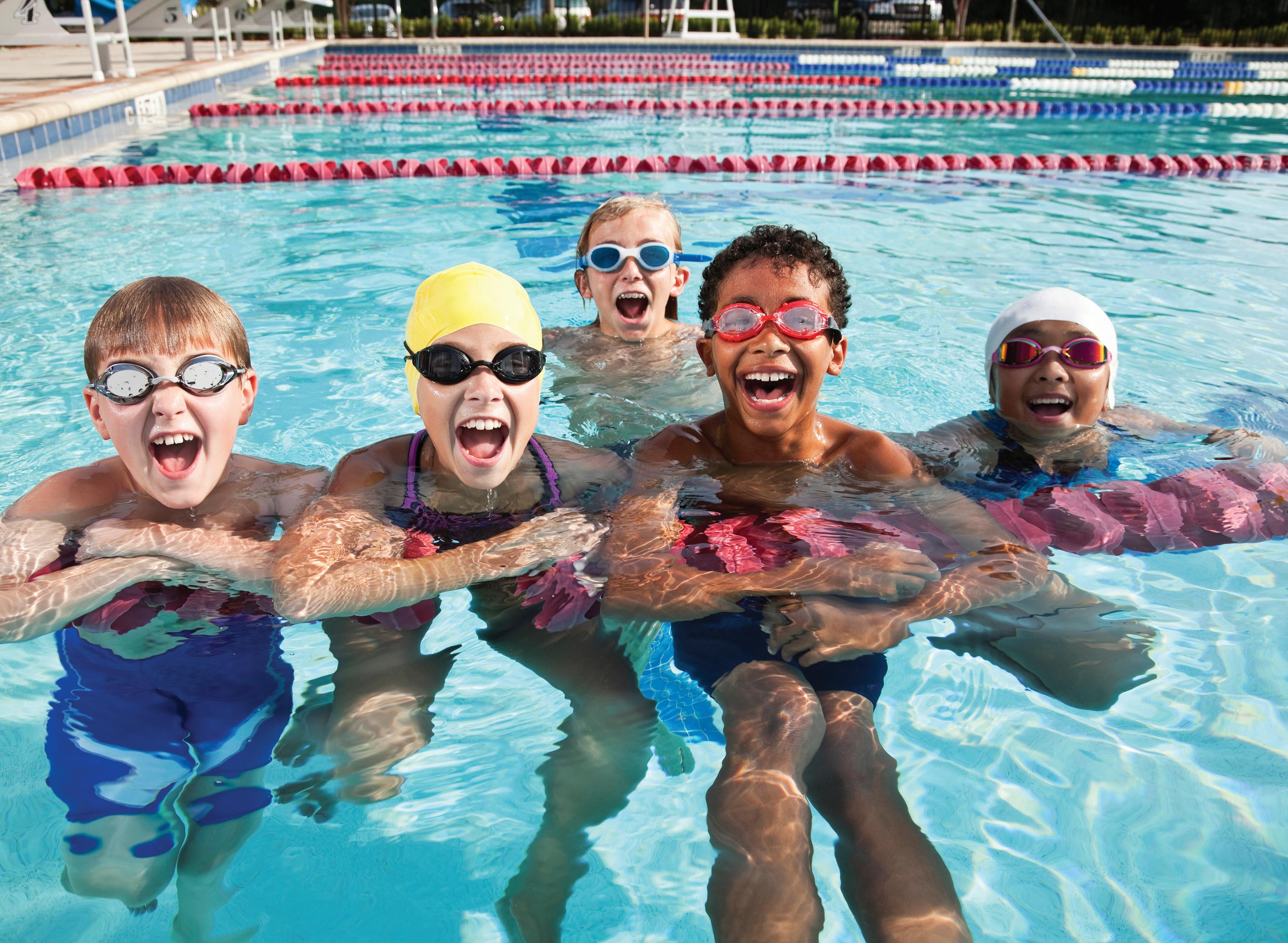
Neil Klatskin Summer Camps
JCC on the Palisades
Camp Name
Camp Pembroke, the Cohen Camp for Girls (Jewish)
306 Oldham St. Pembroke, MA
Camp Tel Noar, a Cohen Camp (Jewish)
167 Main St. Hampstead, NH
Camp Tevya, a Cohen Camp (Jewish)
1 Mason Rd. Brookline, NH
Curiosity Camp 84 Alford Rd. Great Barrington, MA
Fairview Lake YMCA Camps
2 Park St., Blairstown, NJ 1035 Fairview Lake Rd., Newton, NJ
Frost Valley YMCA
781-489-2070 camppembroke.org
7–16 yrs.
3.5–7 wks.
2 wk. option for first time campers
Please call
781-489-2070 camptelnoar.org
7–16 yrs. 3.5–7 wks.
1 wk. option for first time campers
Please call
781-489-2070 camptevya.org
413-644-4400 simons-rock.edu/academics/beyondthe-classroom/curiosity-camp
973-383-9282 fairviewlakeymca.org
7–16 yrs.
3.5–7 wks.
Please call
9th–11th
July 16–29
3,000
2nd–11th
June 26–August 26 / day camp options available
Please call
When it comes to athletic camps, there are as many types to choose from as there are sports. From golf and swim to soccer, fencing and beyond, the choices can be overwhelming. Day and overnight athletic camps offer kids the chance to get extra playing time on the field, develop new skills and bond with fellow athletes. Whether you’re looking for a serious athletic experience or a more traditional camp with a focus on sports, you’ve come to the right place.
Alicia Skovera, executive director of the American Camp Association (ACA), NY and NJ, says a child’s excitement for sports camp
can inform parents about whether or not it’s a good fit. “You don’t want parents to push and then they’ll not like the sport,” she says. “Just like choosing a college, it’s about finding the right fit.”
When it comes to what type of program is right for your kid, there’s a lot to consider. Athletic camps operate as both day and overnight camps and there are programs as short as one week or up to seven.
“If a child has a deep passion for a specific sport or activity, I think a specialty camp is a great option,” says Katy Kreiner, director of Berkshire Soccer Academy in East Otis, MA. If your child is playing a specific sport three, four or five times a week, that’s a great reason to consider an athletic camp,

Kreiner says. “The camper will get immersed in training in their sport throughout their time at camp. Our Berky campers can gain almost a season’s worth of training during their stay at a 2-week camp. I also think specialty camps are fantastic for kids to build quick relationships because they are all coming in with a common bond of being an athlete as well as loving a specific sport; in our case our campers are all soccer-loving girls. The friendships that develop in just a few days are remarkable.”
Skovera says your first step should be to make sure you’re dealing with an ACA-accredited camp. You want to know that the camp is regulated and there are background checks done on the people working with your child. “Know who the camp director is,” she advises. Skovera also advises parents to ask what staff training looks like at any camp they’re considering. “Who is the staff? Who’s caring for them on the field and in the bunks? Are the coaches people who work with kids when they’re not at camp?”
Since there’s an inherent risk of injury with sports (some more than others) it’s essential to ask questions such as: What happens if my child gets injured? Where is the nearest healthcare facility? Is there someone on call 24/7? This is especially important if it’s an overnight camp. “Any good camp director will be happy to answer these questions,” Skovera says.
Also important is to know what your child will get out of attending an athletic camp. “Are you looking for a camp that focuses on a specific sport or lots of sports? Is your aim for your child to walk away a better athlete or focus on other things like
building community?”
“For kids who are passionate about a specific sport they will likely get many more hours of training and get to train alongside other kids who have the same love of the sport,” says Kreiner.
If your child is ready for an even more immersive experience, an overnight sports camps can be a great option to consider.

“Just as any other residential camp does, kids get the chance to be away from their parents and family, step outside of their comfort zone and try new things. It helps them become more independent and build deep relationships and bonds with their bunk mates,” says Kreiner.
The best way to get to know an athletic camp is to visit in person, either in season or during an open house. “Visit a camp to find out the culture,” says Skovera. “See how kids are feeling – most of it depends on the culture of the program. Do kids compete against each other or is it more collaborative?” Parents can also ask about each coach’s philosophy to see if a camp would be a good fit.
“I like to tell parents, if your daughter is excited to be on the field for four hours a day and work hard, athletic camp is a good fit!” says Kreiner. “I believe mindset and motivation play a big role in a camper’s success.”
If you’re looking for advice before making a decision, Renee Flax (director of camper placement, ACA) offers free one-on-one guidance and can help you figure out next steps and give suggestions. Parents can also visit acanynj.org for more info.
For a list of sports camps in and around NJ, go to njfamily.com/ sportscamps.



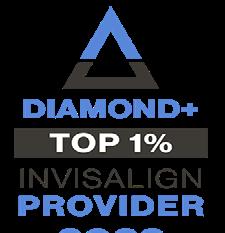
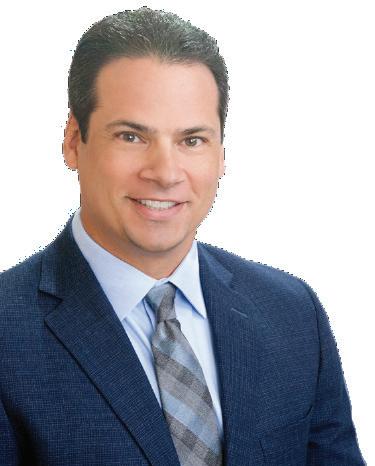
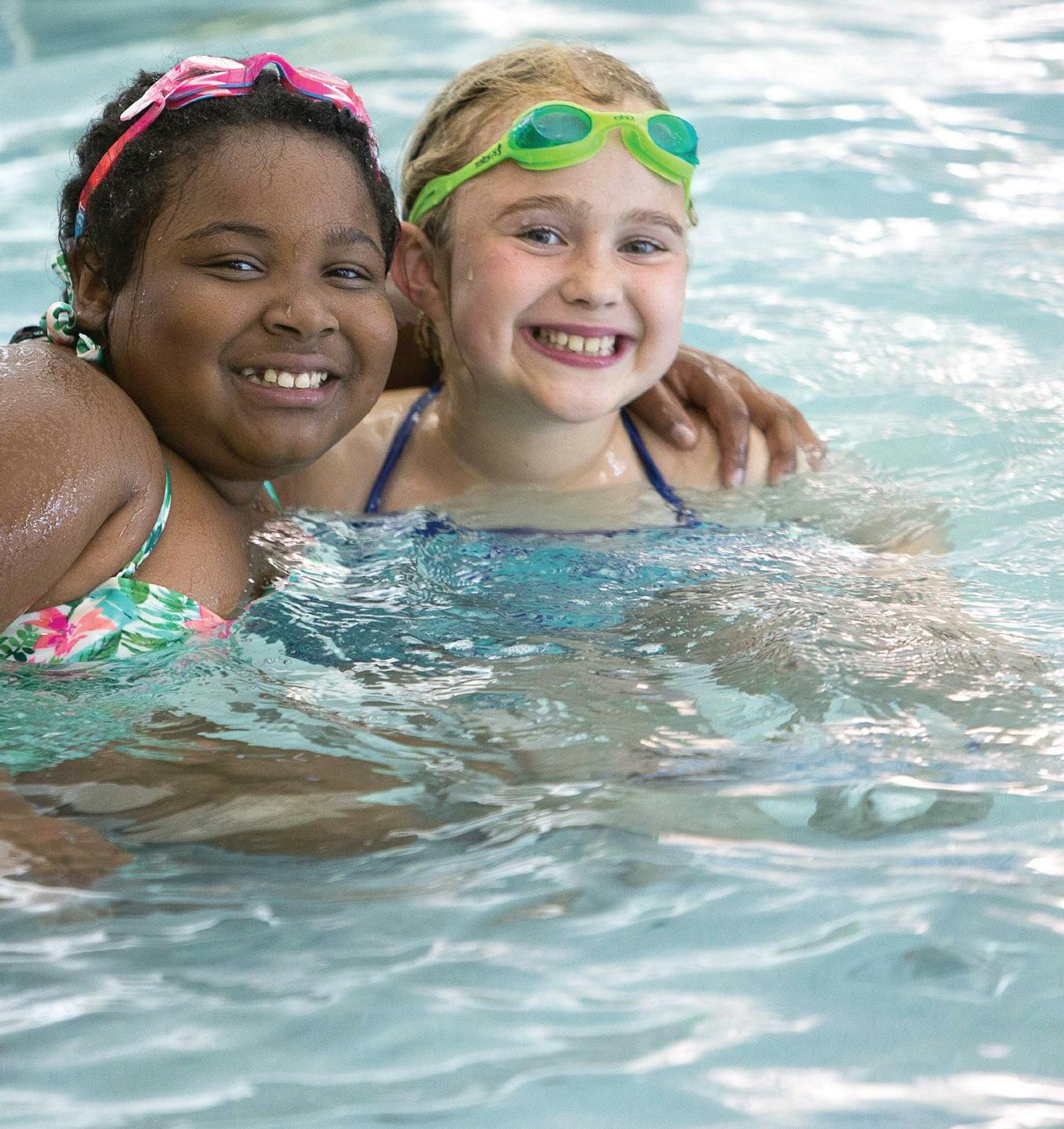
leepaway camp may be the first time your child is out from under your wings for an extended period of time. How do you know when they’re ready? How do you know which camp is best for them? Once you determine which camp you’re headed to, your child will dive into a summer of community living, building relationships, trusting new adults and exerting their independence.
There is no set age that a child is ready for sleepaway camp. Alicia Skovera, executive director of the American Camp Association, (ACA) NY and NJ, says she rarely sees kids younger than 8 years old pack their bags for overnight camp, but it’s very child-specific and depends on their social skills and attachment to family.
If they bring up the topic, it’s a great time for a parent to explore the option, she says. If they have a friend who’s gone before or is interested in going talk, to their parents. “I encourage parents to not push their kids to go to camp before they’re ready … because you don’t want them to not have a good experience,” she says. “But usually it’s their best experience ever.”
Jackie Brethel, director of Camp Kippewa Point, a two-week sleepaway camp in Maine for girls ages 6-13, says the most important factor is finding a camp that matches your child’s interests. For example, if they’ve always wanted to try horseback riding and a camp offers that, it could be a big draw. “If it’s interesting to them it’s a good way to set it up,” she says. “Does it feel like a place you could see your child?”
If you or your child prefer a more
educational component, a specialized day camp may be a better option. Sleepaway camp offers “recreational education,” Brethel explains—for example, there aren’t math and science classes but kids are learning to follow directions, a routine and handle tasks. Some kids come home from sleepaway in the habit of making their beds and keeping their rooms neat because they did that on a daily basis at camp.
Skovera says finding a camp for your child is an individual decision. “Every camp really has its own philosophy and set of values. You want to make sure the camp you choose matches your family’s values as well,” she says. “Take into consideration who your child is…and what their interests are.”
Skovera explains that regulation by the state’s health department is step one, and accreditation by the ACA is a must because “it’s truly a parent’s best evidence of a camp’s commitment to safety.”
She recommends attending camp fairs and open houses so you and your child can get a firsthand look at both the scenery and programs offered. In addition, Renee Flax, director of camper placement for the ACA, offers free one-on-one advice on what camp may be right for your kid when you call. She works with more than 400 camps in the Northeast.
“Talk to other families that have been there. It’s a great way to find out about the camp’s reputation and their safety record,” Skovera suggests.
Skovera recommends having these questions ready in advance:
Who’s the camp director? How long have they been employed? Are they seasonal or
“Nerves are normal that first summer, and nerves are actually a good sign because it means your kid is processing what a big step this is.”
a year-round employee? Do they have a background in youth development?
What is the age of the staff and what is their experience level? What training do they receive? Does everyone go through a background check? Do they have character references on file? What are the qualifications for instructors?
What are the behavior management protocols and child safety protection measures?
What are the emergency plans, especially in the event of a natural disaster or evacuation? Is there a doctor or nurse on staff or on call—and do they live on site?
Where is the nearest clinic or hospital?
What is the policy for visitors or guests?
If there is a waterfront area, are the
lifeguards certified? How many kids can be in the water at once and what is the ratio of staffers to campers?
Nicki Fleischner, who co-directs Camp Scatico in Elizaville, NY, with her father, David, suggests parents ask if the camp you’re considering offers a trial day or trial week. She also recommends asking: Is the camp all-elective where kids choose their activities or is everything scheduled in advance? How many campers attend and how many cabins are assigned per group?
Kids will most likely be nervous no matter where they go, but Brethel says offering to take them home sends a
message that it’s okay to give up, and that their parents are the only ones who can keep them safe.
“Nerves are normal that first summer, and nerves are actually a good sign because it means your kid is processing what a big step this is, and it really is a big step,” Fleischner says.

She said it’s a good idea to talk with the camp director or head counselor and come up with a strategy to deal with homesickness before camp starts. Don’t bargain in advance, giving your child the option to come home; instead, let them know they will be safe and have fun.
Says Fleischner: “Once you step through the gates of the camp…your sense of how far you are from home disappears.”

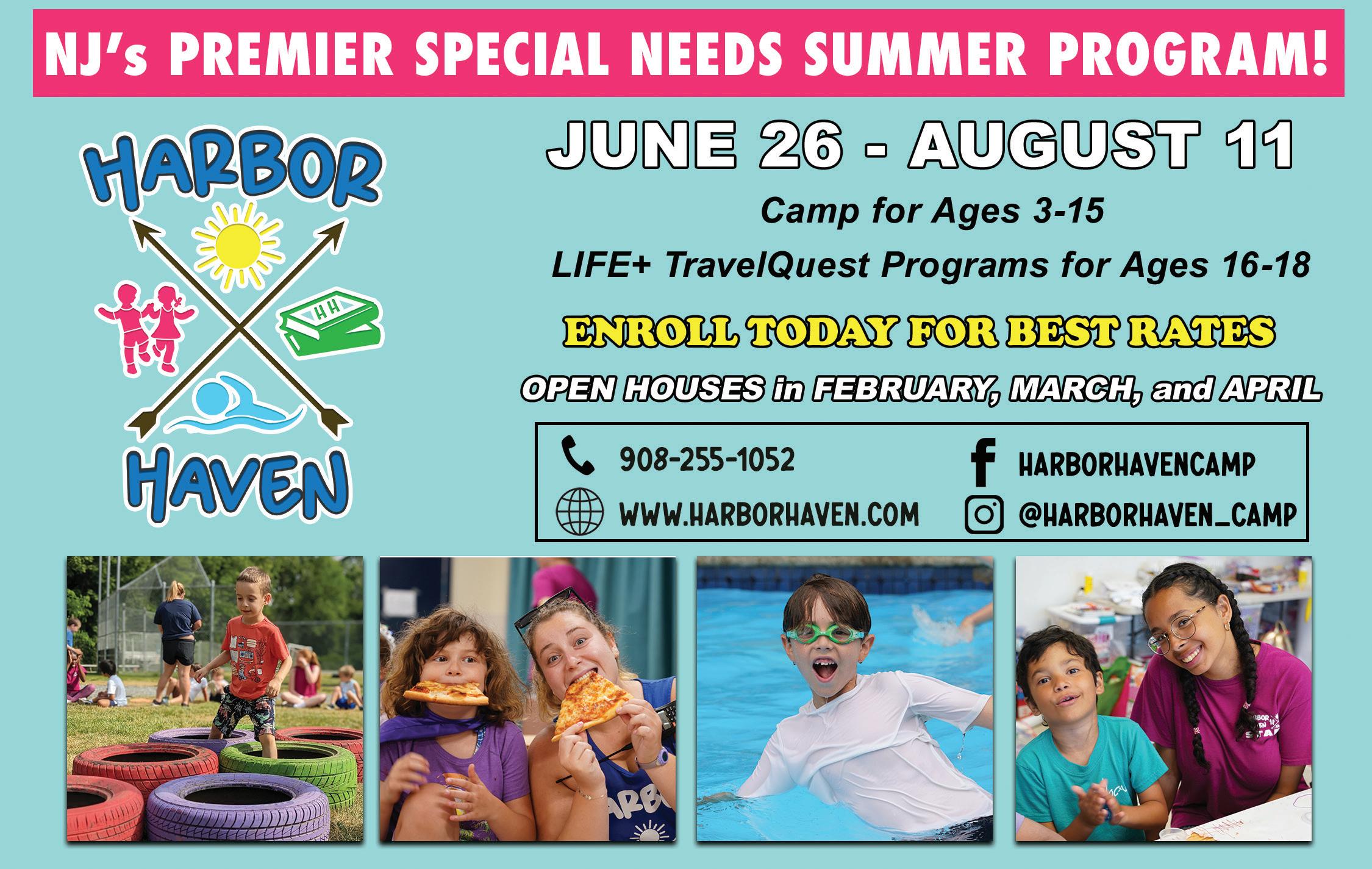
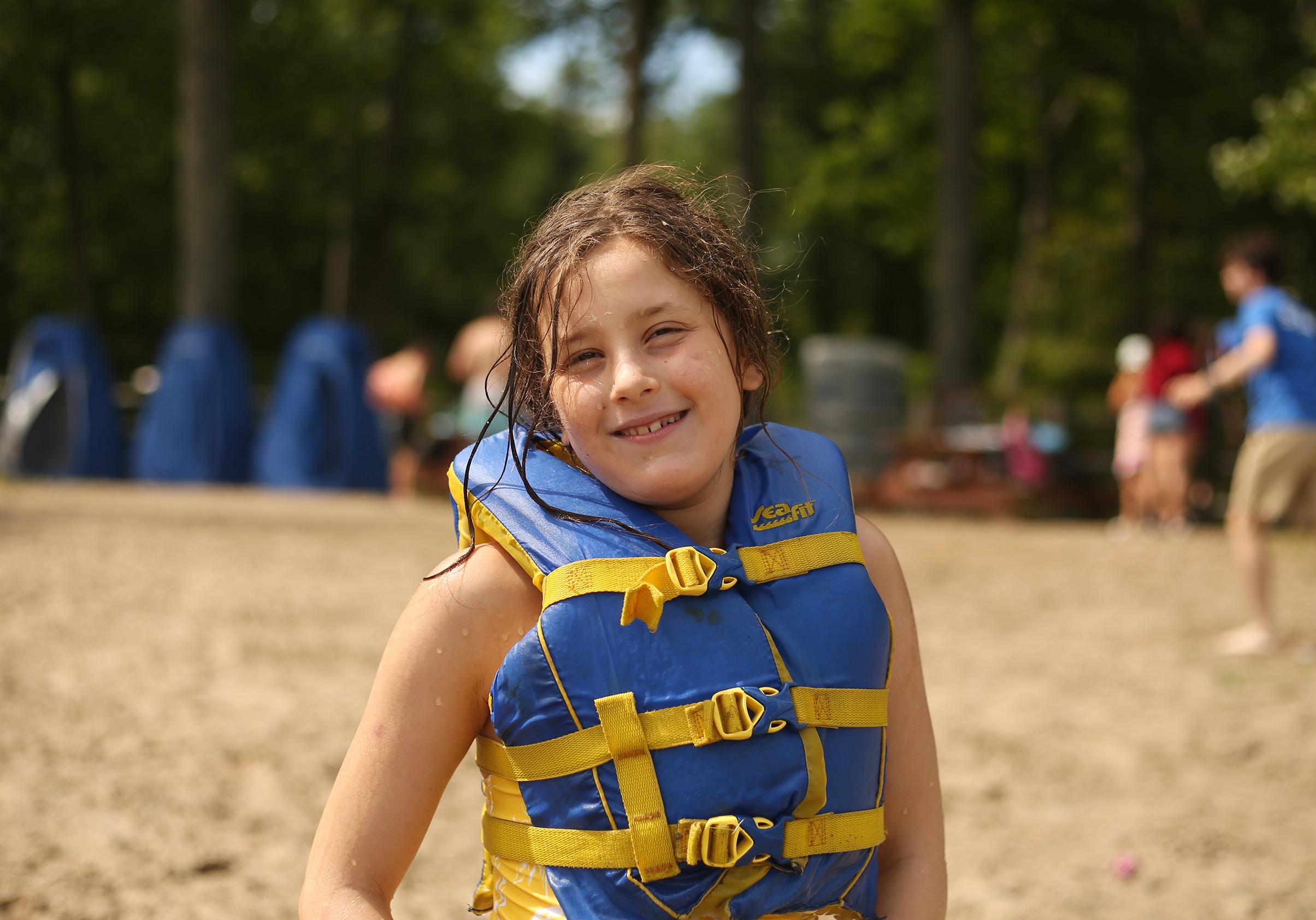
When my now 11-year-old twins were little, I couldn’t imagine sending either of them to sleepaway camp. But two years ago, when we visited Camp Speers YMCA in the Poconos during an open house event, my son’s eyes lit up at the rustic cabins, the cheerful dining hall and the gorgeous lake with every water sport imaginable. I knew the experience was just what he needed—a break from the stress and isolation of the pandemic and the chance to be outdoors and just be a kid again. I called my husband and we signed him up on the spot.
But as parents of kids with different abilities know, choosing a camp, whether it’s day, specialty or overnight, is not that simple. My son’s twin sister E is on the autism spectrum, and while she loves swimming and playing outdoors and all the other fun things that go with camp, the thought of her sleeping somewhere else set
off fire alarm bells in my head. E’s daily living skills like brushing teeth, showering and dressing are emerging but still require supervision and assistance. There was no way I could leave her at some cabin in the woods to fend for herself. Or could I?
The first summer my son attended Camp Speers he interacted with a young girl who was attending the Dragonfly Forest Camp, a specialty camp for kids with disabilities that’s part of Camp Speers at the same location. The day we picked him up, my kind, empathetic guy explained he had volunteered to buddy up with this girl during a Fourth of July carnival. I began to wonder—could E have the experience of sleepaway? Would it be good for her?
My first step was to start a conversation with the camp directors. Since they already knew my son, we had an easy
rapport and they answered all of my questions—and there were many! I learned about the camper-to-counselor ratio, how communication with parents was handled, what the daily schedule looked like and every other detail about the five-night experience. It’s important to note that I was also very upfront about E’s skill levels. The last thing I wanted was for the counselors to be surprised that my girl needed extra help in certain areas. When you’re interviewing a camp, my advice is to make sure that the information is going both ways. The staff assured me that from what I had told them, E was a great candidate for Dragonfly Forest.
Now that we were seriously considering sending E to sleepaway camp, I leaned on my autism community for help and advice. I emailed with parents whose kids had taken the leap to ask them what the experience had been like. Unanimously, they told me that while they were initially terrified to let their child go, the experience had been only positive for their now-teenagers. In fact, both parents I talked to said that the week of camp has now become something that their kids look forward to, and that having that experience fostered an incredible sense of independence.
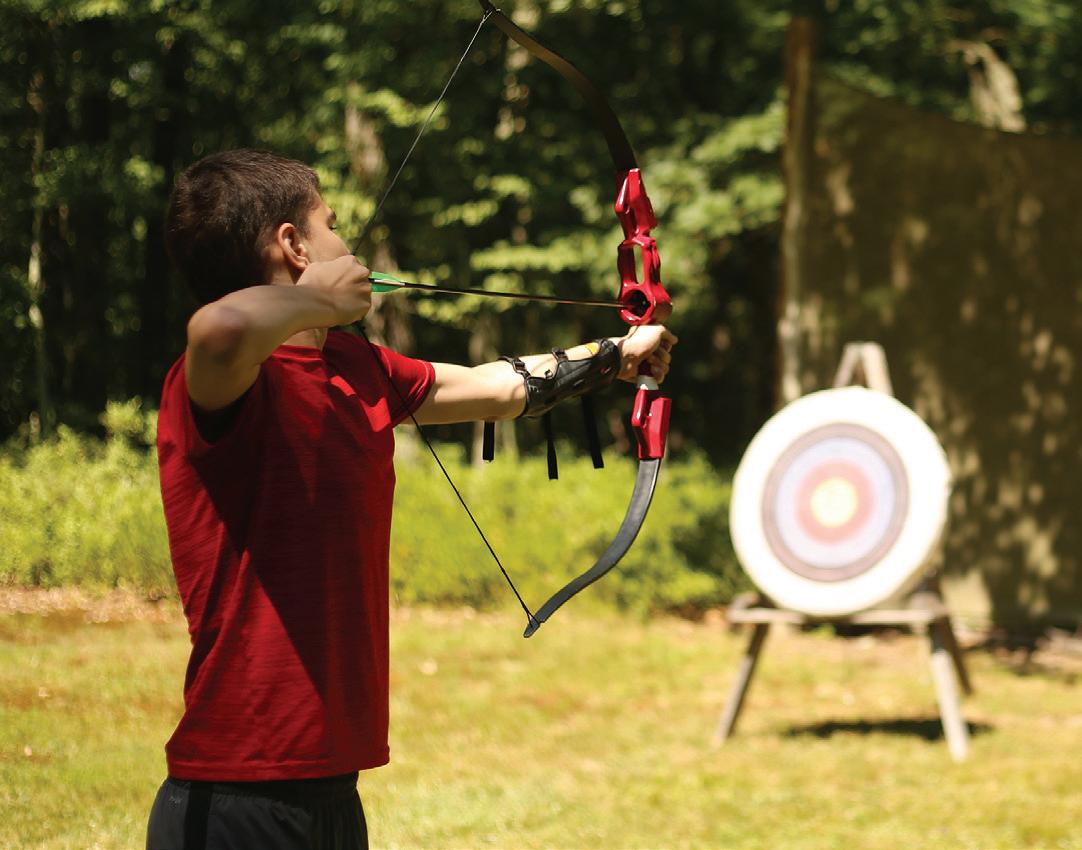
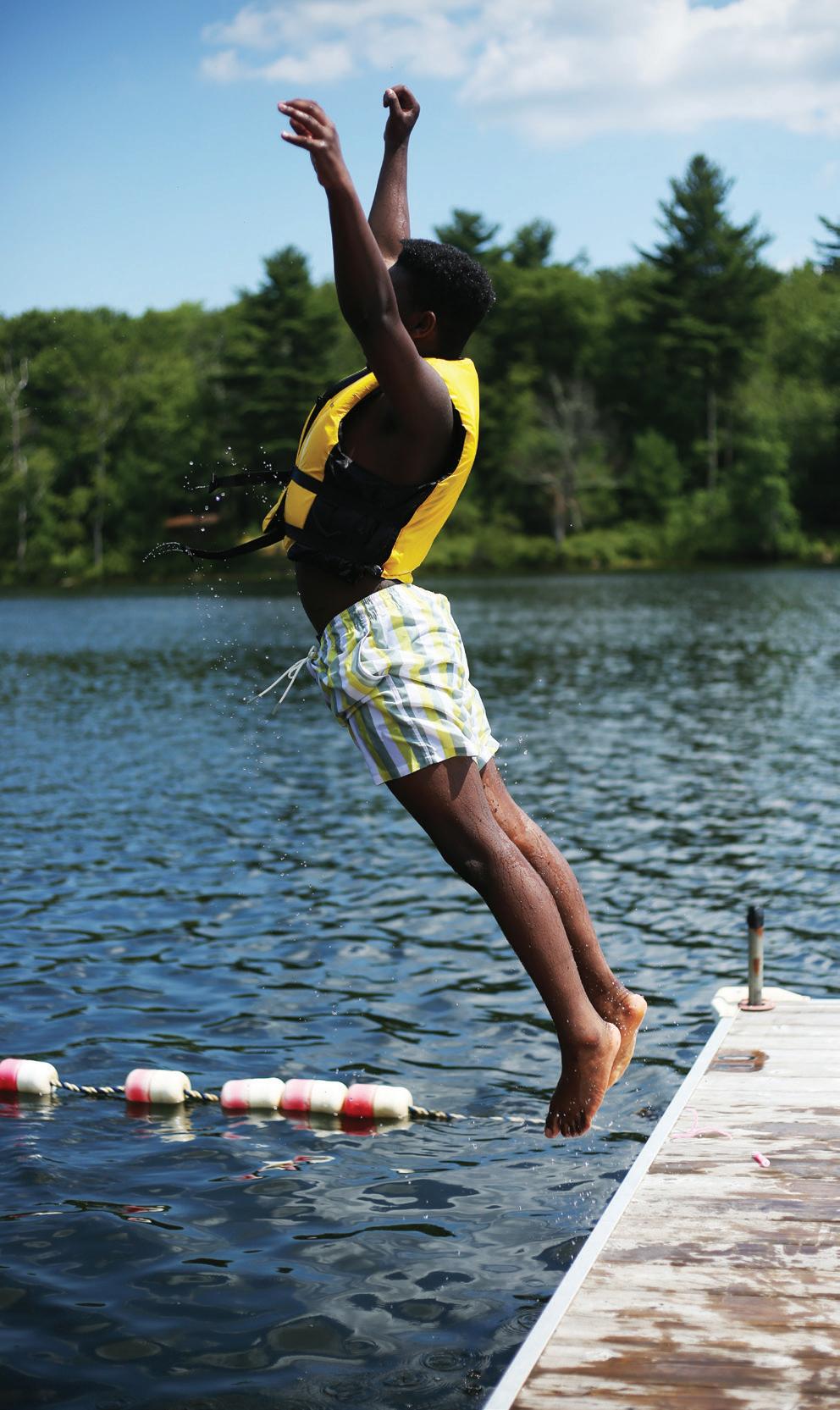
While parents of typical kids can get pretty crazy trying to fulfill the packing lists for camp, with a child who has different abilities, there are so many more things than whether they have enough socks or labeling 14 pairs of shorts (only two of which they’ll actually wear) to consider. The first step was to make sure E understood that she was going to sleepaway camp and what would happen there. It helped that we had already visited Camp Speers in person several times for the open house and to drop off and pick up her brother. I suggest you go to the camp in person with your child so the surroundings are familiar when
it’s time for camp to start.
E really enjoys reading social stories (books we make that explain with words and pictures in simple terms an event that’s going to take place) so using clip art I made a book “I’m Going to Sleepaway Camp” for her to read and re-read. The book explained that we would drop her off and say goodbye, that her counselors would take good care of her, that she would make friends and do fun activities and that at the end of the week we would come pick her up. As I expected, E poured over the book during the weeks leading up to camp.
At the same time, I wrote up a “guide to E” to give to the counselors. I wanted them to know her likes and dislikes and all of the quirks I instinctively know how to respond to but that might confuse a stranger. E is verbal, but her communication is limited so letting her counselors know that for example, if she’s upset, playing music can soothe her, was essential in my mind.
Although it sounds like I was fully prepared for E to go to Dragonfly Forest, even right before the two-hour drive to the Poconos I was whispering maniacally to my husband that if we got there and things didn’t look right, we would take E and drive back home. The separation anxiety that many parents feel sending their kids to overnight camp for the first time is quadrupled when you have a child who cannot necessarily tell you what happened or when something is wrong. Although I knew that I trusted the camp staff, this is a very real fear that parents of children with different
“...camp has now become something their kids look forward to...having that experience fostered an incredible sense of independence.”
abilities face every day. We are our children’s guardians, protecting them from everything about the world that they don’t yet know how to access or navigate. What if E wandered away? I reassured myself with the words of the camp staff that this is exactly the type of situation they are all trained for, and off we went to camp.
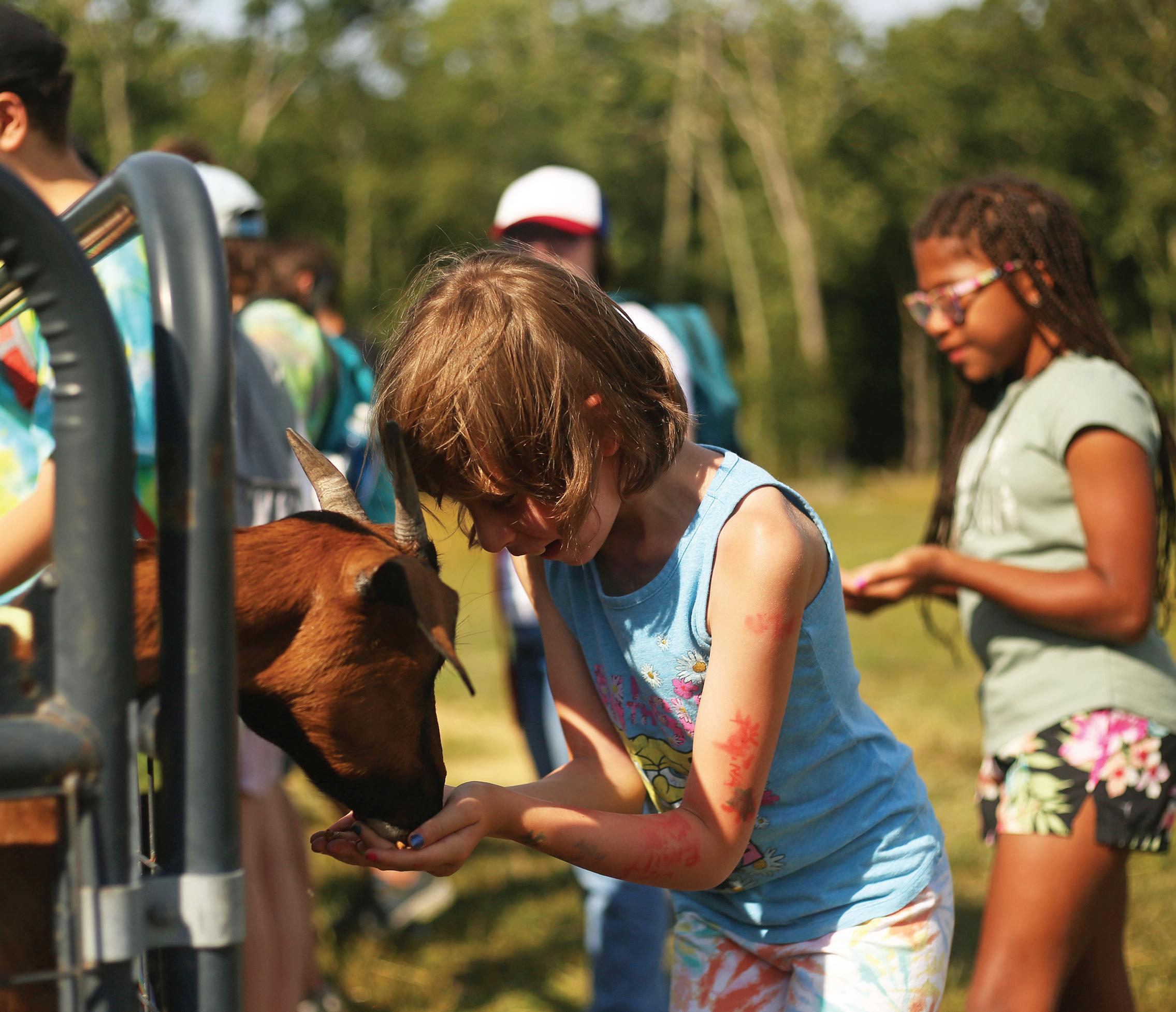
When we arrived, the cheerful staff welcomed E and directed us to a cabin where seven other girls were already unpacking and making up their bunk beds. In the middle of the room, a counselor had started a game of catch (something E loves to do). When we said goodbye, E instinctively followed us to the door, but a counselor drew her back into the activity.
We hit the road and drowned our worries at a roadside Dairy Queen and then headed home to wait for an update.
The staff had given me the camp director’s cell phone number in case I needed it and told me that they would be posting pictures of the campers in the next day or so. I didn’t want to be “that mom” but later that night I fired off a text asking how E was doing. The director responded immediately that she was “very sweet and seems to be having a great time.” This mom breathed a huge sigh of relief.
I would be lying if I said I didn’t spend an inordinate amount of time refreshing the page where the camp said they’d be posting photos of the campers. But in the meantime, I was able to spend some serious quality time with E’s twin brother (his camp weeks were different than his sister’s) and this was truly a gift. I know my son often feels like his sister gets “all the attention” and due to her disability, this may be somewhat true. Most memorably, we took a long bike ride followed by an ice cream crawl. It was great to give him my full attention and to be able to do an activity that E wouldn’t have been able to keep up with (that we would have skipped if she were present).
When we got home, I checked the website and there were several photos of E doing arts and crafts, hanging with a counselor and best of all, one of her wearing a life vest lakeside. Her light brown hair was wet and swept messily across her forehead and her little cheeks pushed up toward her eyes in a contented smile. I marveled at this confident, happy girl with droplets of water on her arms and the sun on her face. She was doing something without me, staking claim to a piece of summer all her own.
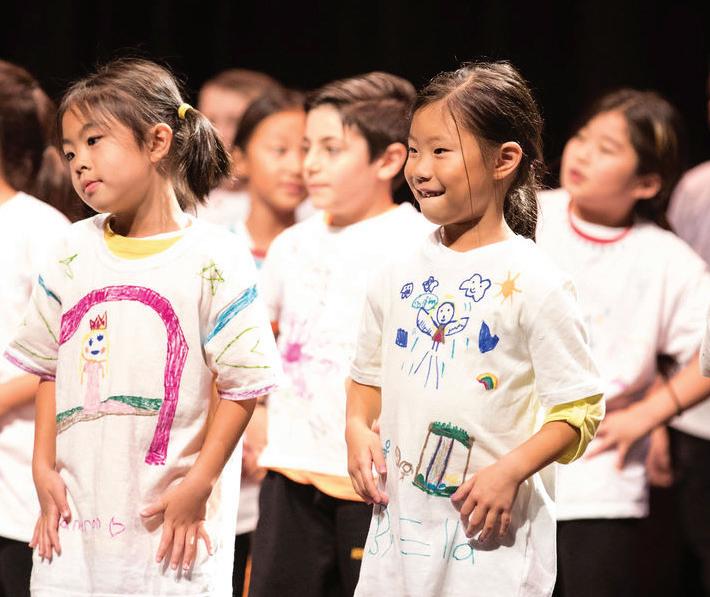
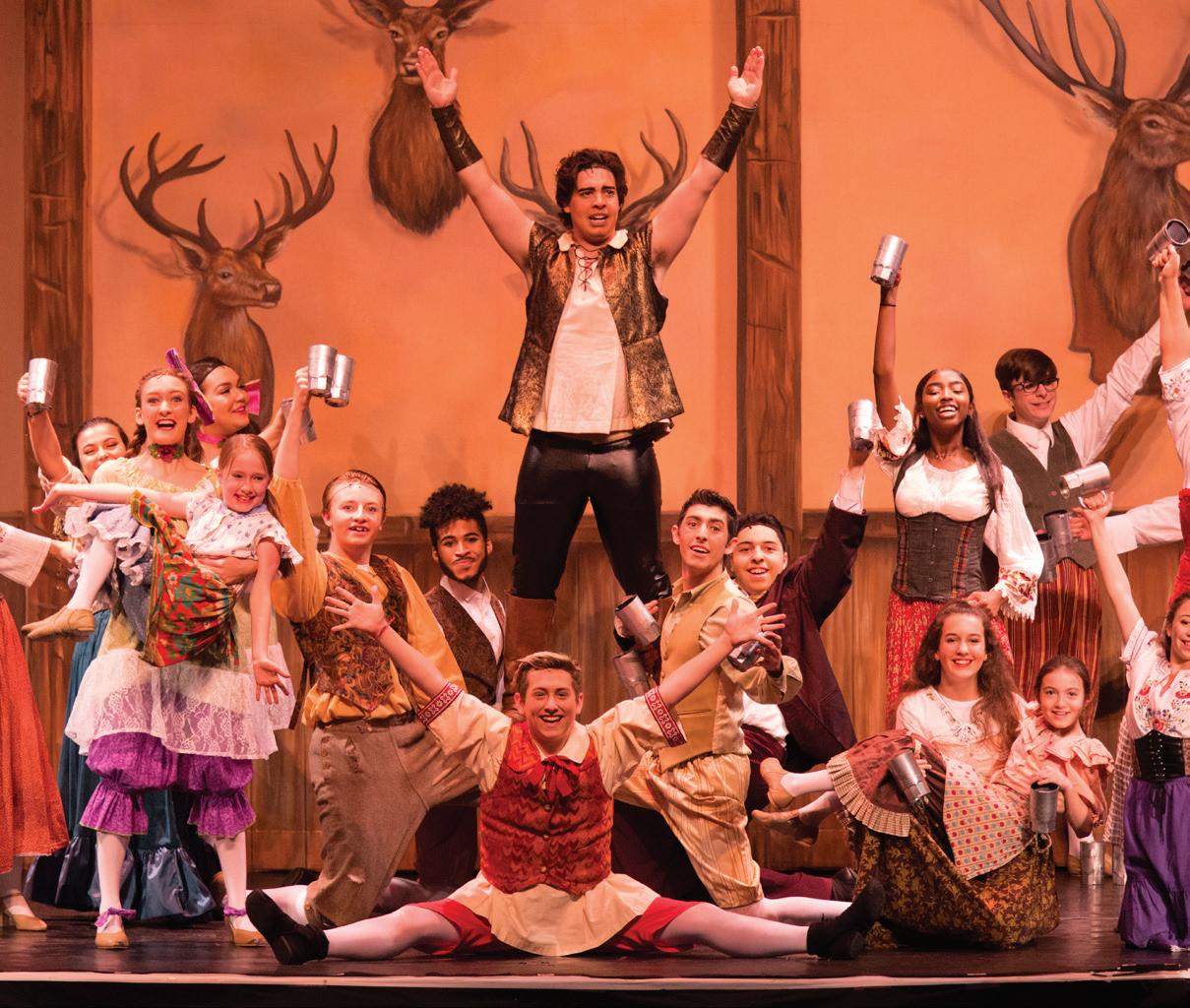
HOW TO HELP YOUR KID TRANSITION BACK TO LIFE AFTER SLEEPAWAY CAMP
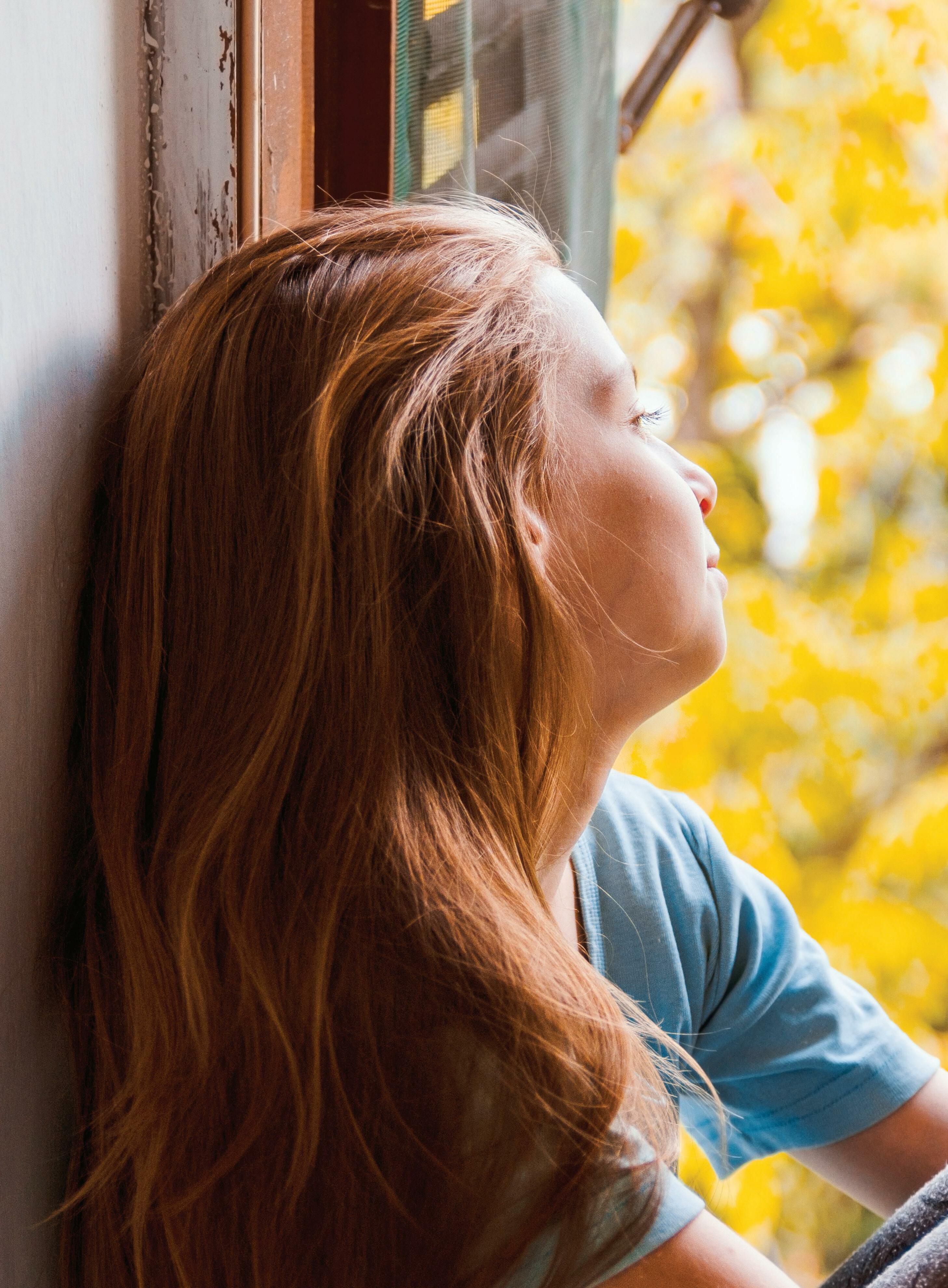 By HEIDI L. BORST
By HEIDI L. BORST
The big day has arrived: your child is coming home from a weeks-long stay at sleepaway camp, and you’re beyond excited. Naturally, you’ve missed them, and you assume they’ll be thrilled to be back at home. To celebrate, your family is gathered in your backyard, ready to greet your kiddo as soon as they arrive with a family BBQ. But when you pick up your child from camp, they burst into tears, devastated to be leaving the fun behind.
According to Renee Flax, director of camper placement for the American Camp Association, NY and NJ, kids often get “campsick” (think of it as homesickness in reverse). “It’s a very common reaction. All of a sudden, something has been stripped away from them that they have come to love,” she says. It can be hard for kids to reacclimate to life at home after camp. Here’s what parents can do to help.
For many children who are used to busy schedules that revolve around school and extracurricular activities, camp provides a unique opportunity to socialize and make friends which is why it can be so hard to leave behind. For some kids, it’s the first time they’re sharing living quarters, and learning to respect other people’s spaces. This personal growth results in strong bonds with the other campers, making it hard to say goodbye to their buds and the independence they’ve become accustomed to while away from home.
At camp, kids enjoy the freedom to make decisions without the input of their parents, and that teaches them self-reliance, says Flax. They’re choosing their electives, they’re making friends of their own initiative and they’re deciding what they want to eat—for many, it’s their first taste of independence. What’s more, if a child has an issue with someone in their bunk, they learn how to work out the problem themselves, says Flax. “The ability to develop confidence in yourself is one of the biggest gifts that camp gives a child,” she says.
The bustling environment of camp is so different from what kids are used to at home. They’re bunking with many other children, so it’s noisy. Their days are action-packed, and they’re completely unplugged from technology, says Flax. It’s no wonder being thrust back into home life can be a shock. On top of that, your child is likely coming home from camp physically and emotionally exhausted from busy, active days with friends and saying tearful goodbyes, says Flax.
But if your child is feeling down after camp, don’t take it to heart. “It’s not that they’re not happy to be home—they are! They’ve missed their family and friends and they’ve missed all the conveniences of being at home, but it’s a transition,” says Flax. She adds that not all kids will have the same reaction every summer, so parents should be
prepared for anything and go with the flow.
Transitions can be hard for kids in general, and if they’ve really enjoyed camp, coming back to their routine can be especially tough, says Steven Tobias, Psy.D., director of the Center for Child & Family Development in Morristown. Think of it like taking a vacation—most people are happier before a trip than afterwards; it’s normal to feel somewhat of a letdown when you come home, he says. So if your child has the post-camp blues, empathize with their feelings.
Instead of filling up your child’s social calendar in advance, wait until they get home to make plans, advises Flax. That way, your child can decide what they’re up for—they might want to have a friend over, but they might just want to chill alone for awhile—whatever they need is okay. “Be a good listener and follow their lead. They will guide you as to what they need or want from you,” Flax says.
Your child might return from camp feeling sad, stressed or disappointed, says Tobias. But it’s not a parent’s job to prevent their child from experiencing any negative emotions—simply validate and support them, he says. In other words, instead of trying to make those difficult feelings go away, make sure to acknowledge them. “It’s okay for kids to learn how to experience and deal with tough feelings and work through them,” Tobias says.
What if your child isn’t opening up about camp right away? Ask if there’s a special memory from camp they’d like to share, or what they loved most about camp, suggests Flax, adding that most camps post photos of camp activities on their website. Parents can go online with their kids to help them relive their favorite memories, she suggests. It’s also a good idea to encourage your child to write letters or Facetime with camp friends and, if possible, arrange meetups. Meanwhile, it’s important that they begin to do things with friends from home, too.
It’s impossible to predict how your child will handle returning home from camp, says Flax, but being understanding and supportive no matter what they’re feeling will ease their transition.
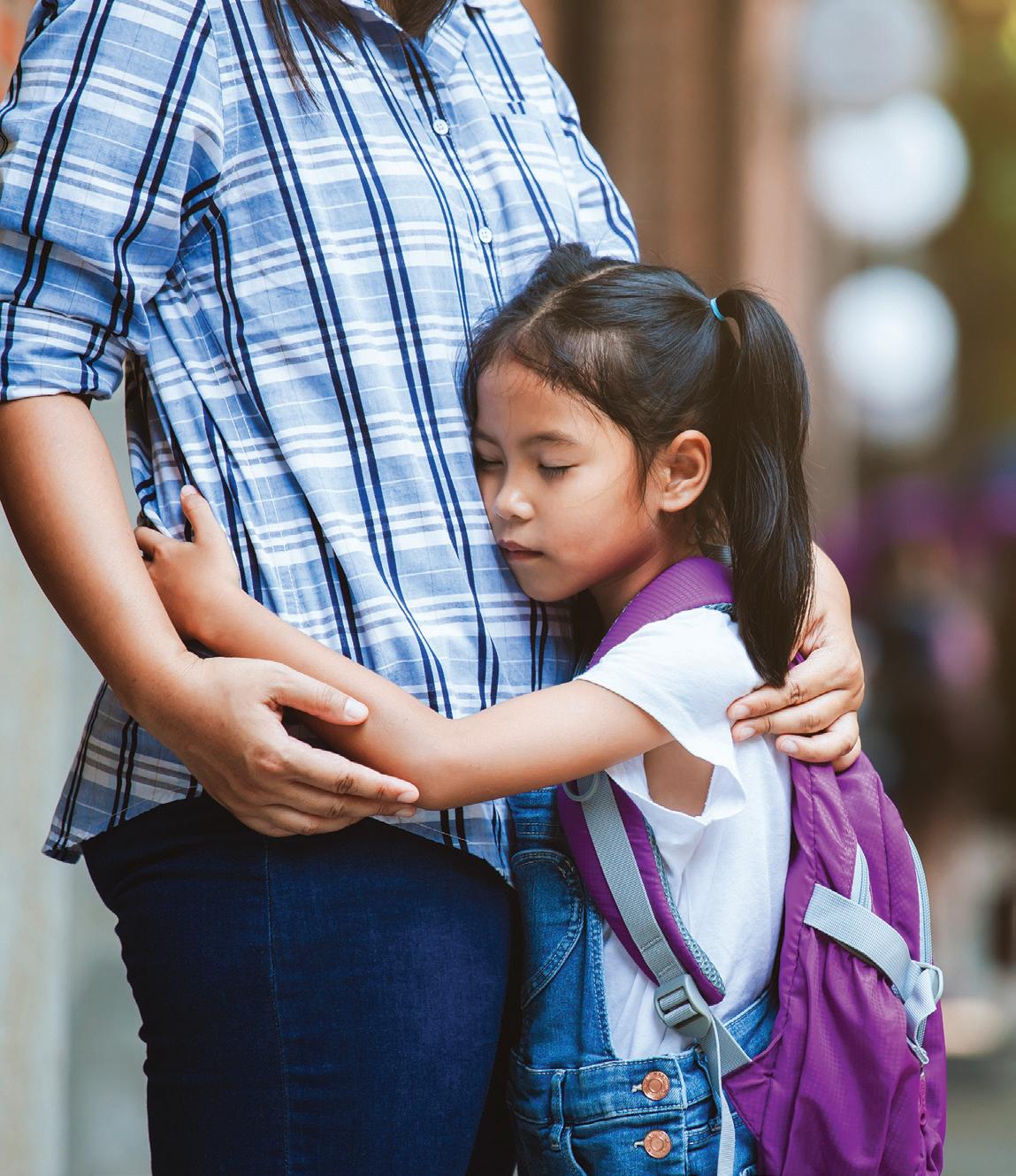
It’s impossible to predict how your child will handle returning home from camp … but being understanding and supportive no matter what they’re feeling will ease their transition.

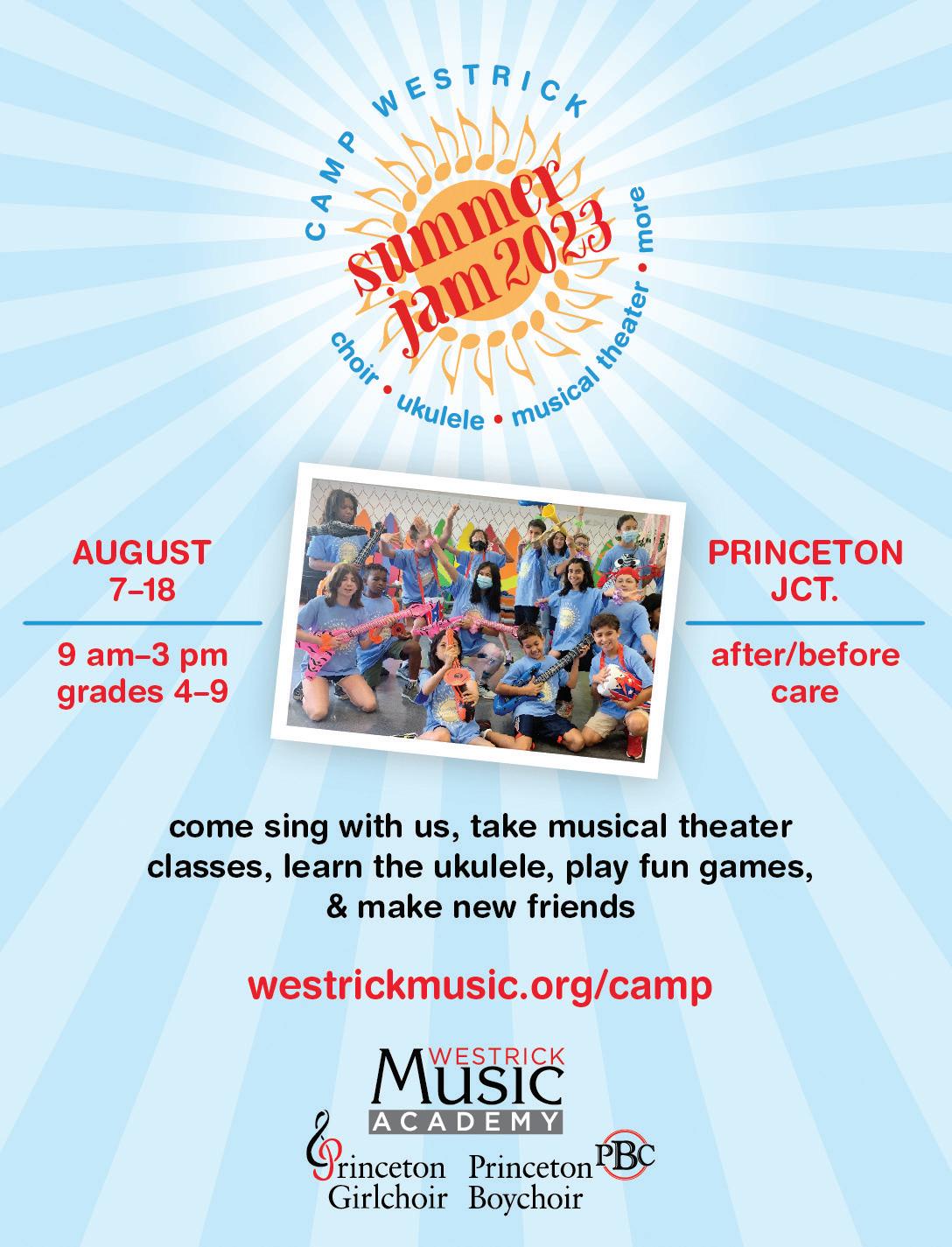
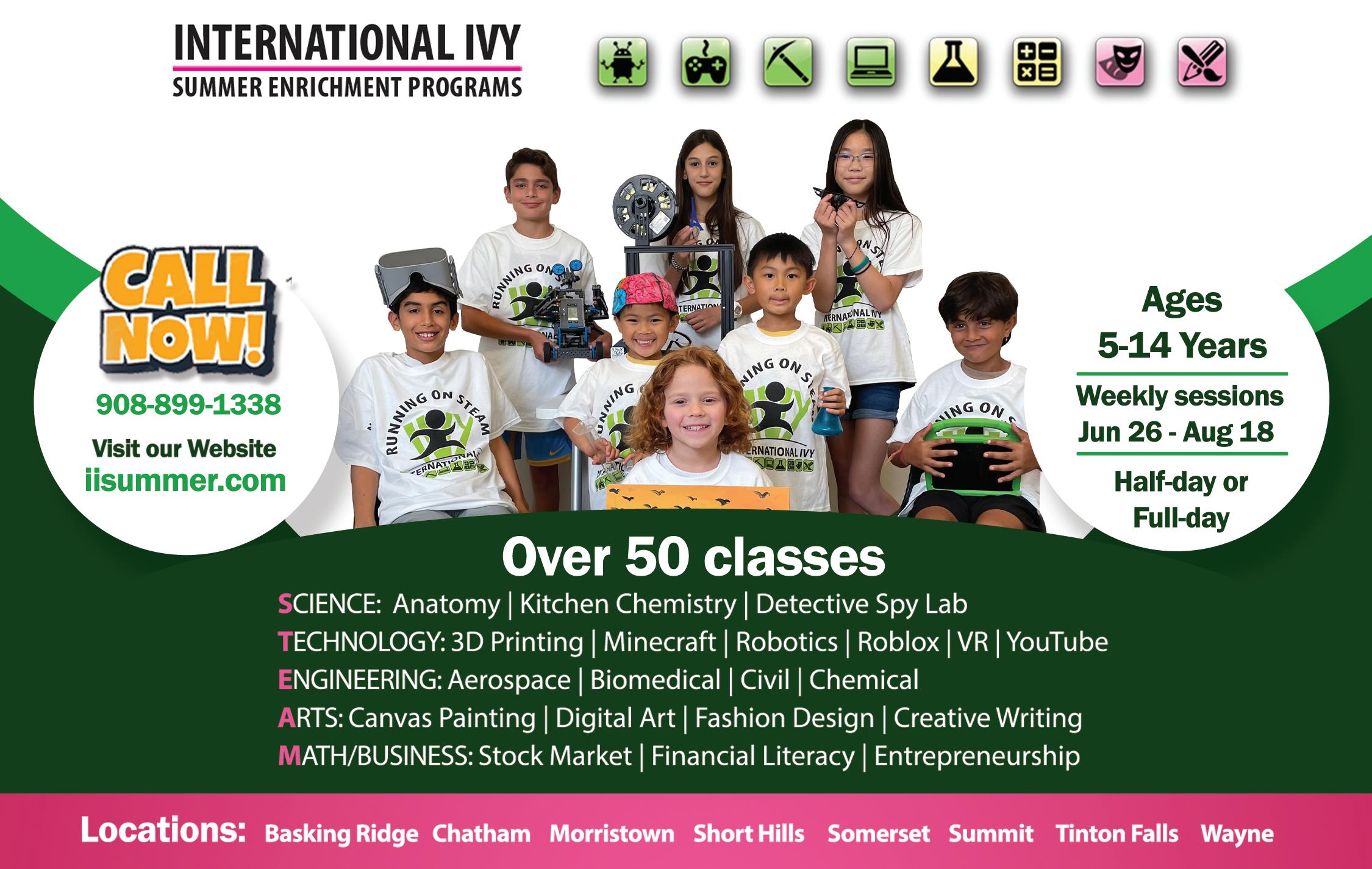
Is your summer camp-loving child aging out as a camper but still too young to work as a camp counselor? A counselorin-training (CIT) role might offer the perfect transition for those who want to prolong their fun camp time while also taking on more responsibilities and skills.
“CIT positions are often meant for a child’s final summer (before transitioning to a leadership role) at the camp they’ve been attending. These campers spend part of the day in camper mode, another part learning leadership skills,” says Renee Flax, camper placement specialist for the American Camp Association, NY and NJ (ACA), who notes that CITs are usually 15 years old and not paid; parents typically pay for their children to participate in a CIT program.
“Younger teenagers may have limited opportunities to find a meaningful summer experience,” says Flax. “Although working at a local store or babysitting might be rewarding, being a CIT in a camp environment is much more fulfilling. Your child will learn to become a leader while also experiencing the rewards of being part of a camp community. They will get leadership training, work with campers of all ages and potentially receive CPR and first aid certifications. If your child is interested in getting a job after the summer, these skills will be impressive on their resume.”
Start by finding out if your child’s summer camp offers a CIT program and, if so, what the application and selection process involves. Ask questions. What skills and benefits will my child be getting?
What is the program cost and duration?
Is there a specific curriculum/structure?
Who will be teaching/mentoring the CITs?
Talk to your teen. Ask what they know about CITs already and if it’s something they’d like to try. “Including your child in the decision-making process will ensure a ‘buy in’ from them,” says Ruth Ann Weiss, owner/director of Eagle’s Landing Day Camp in North Brunswick.
“Ask camp staff to answer any of your child’s questions so they feel comfortable with the whole process,” encourages Keith VanDerzee, CEO of YMCA Camp Mason in Hardwick. “If there is an application or interview to complete, support your child and offer to proofread or practice together.”
“Most teens won’t have years and years of experience or certifications,” says Sam Borek, co-owner/director of Woodmont Day Camp in New City, NY. “We look for someone who demonstrates an interest in working with children; we also look for experiences in a team setting like sports, clubs or class projects.”
If your child’s camp doesn’t offer a CIT program or all the existing slots have been filled, ask camp staff if they can offer suggestions of other camps to try. You can also reach out to the ACA.
While CIT programs—generally for kids 12 to 16 years old—are as diverse as the camps that offer them, most are designed to help tweens and teens learn leadership skills, cooperate and collaborate, build resilience, help others through service, make friends and gain independence while providing fun and rewarding experiences
and memories.
Keeping your child’s age, personality, needs and preferences in mind will help you identify the best fit. “Don’t pick a program just because that’s where their friends go. Pick a camp based on your child’s interests and what they would like to get out of the program,” Weiss says.
“Most camps have a staff that works all year long to make camp happen each summer,” explains Borek. “That means camps are always accepting CIT
applications.” Apply when you’re ready, but sooner is always better, Borek says.
“It’s never too early to start the search for a CIT spot at summer camp,” VanDerzee says. “Every camp has a different application process and timeline. Some camps will already have their application posted online, others will send you to a portal and some will send you the information on request. It’s a good idea to search camp websites and make a few calls as soon as possible
because CIT programs can fill quickly.” And don’t give up. “If your child doesn’t get a place in their first choice CIT program, it’s not all over,” VanDerzee says. “There might be another camp with a great program or another way to gain leadership skills, such as an adventure trip or expedition.”
—Nayda Rondon is a lifestyle, wellness and parenting writer, a children's book author and a Hillsdale mom.
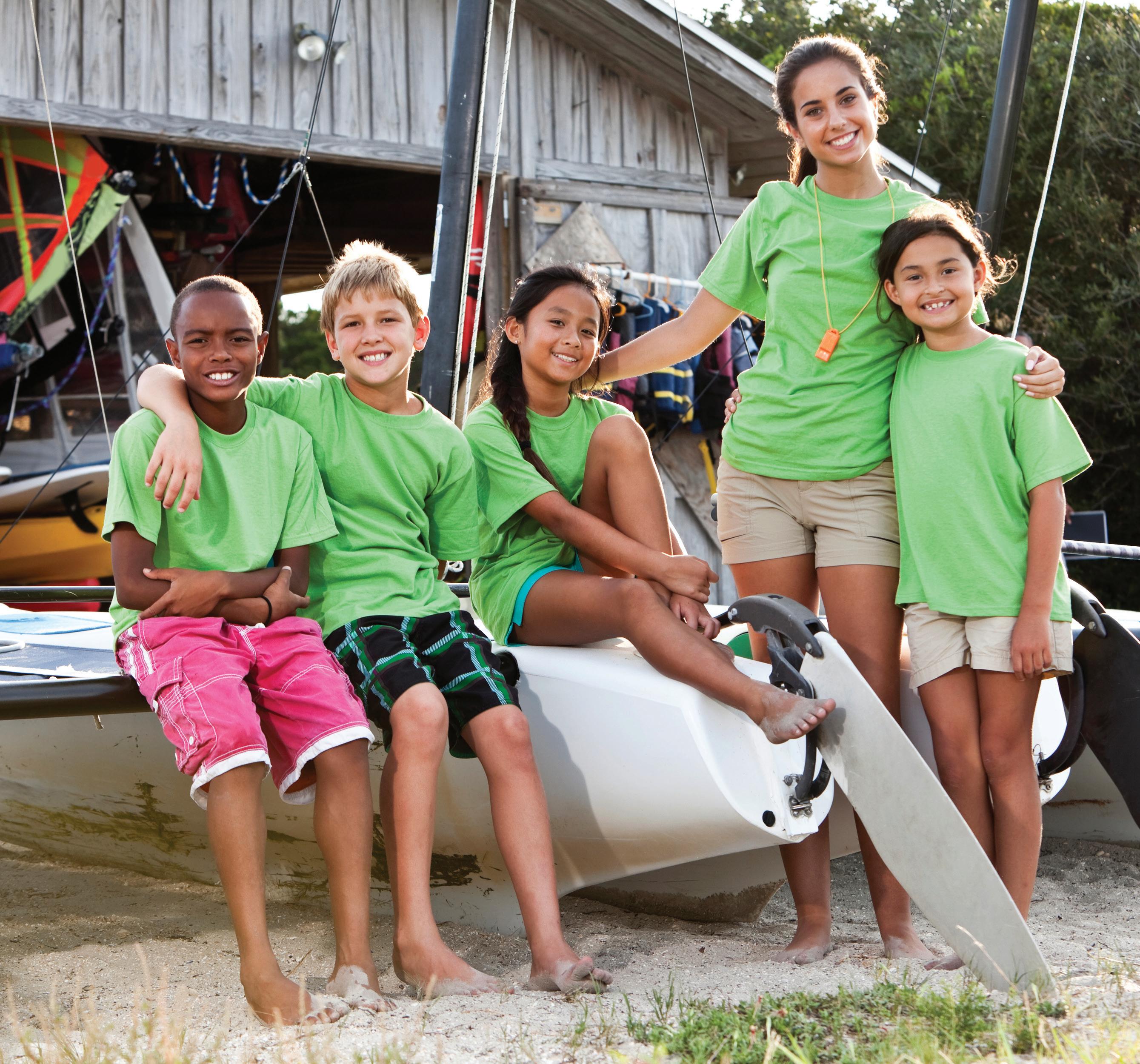
“We look for someone who demonstrates an interest in working with children … (and) experiences in a team setting like sports, clubs or class projects.”
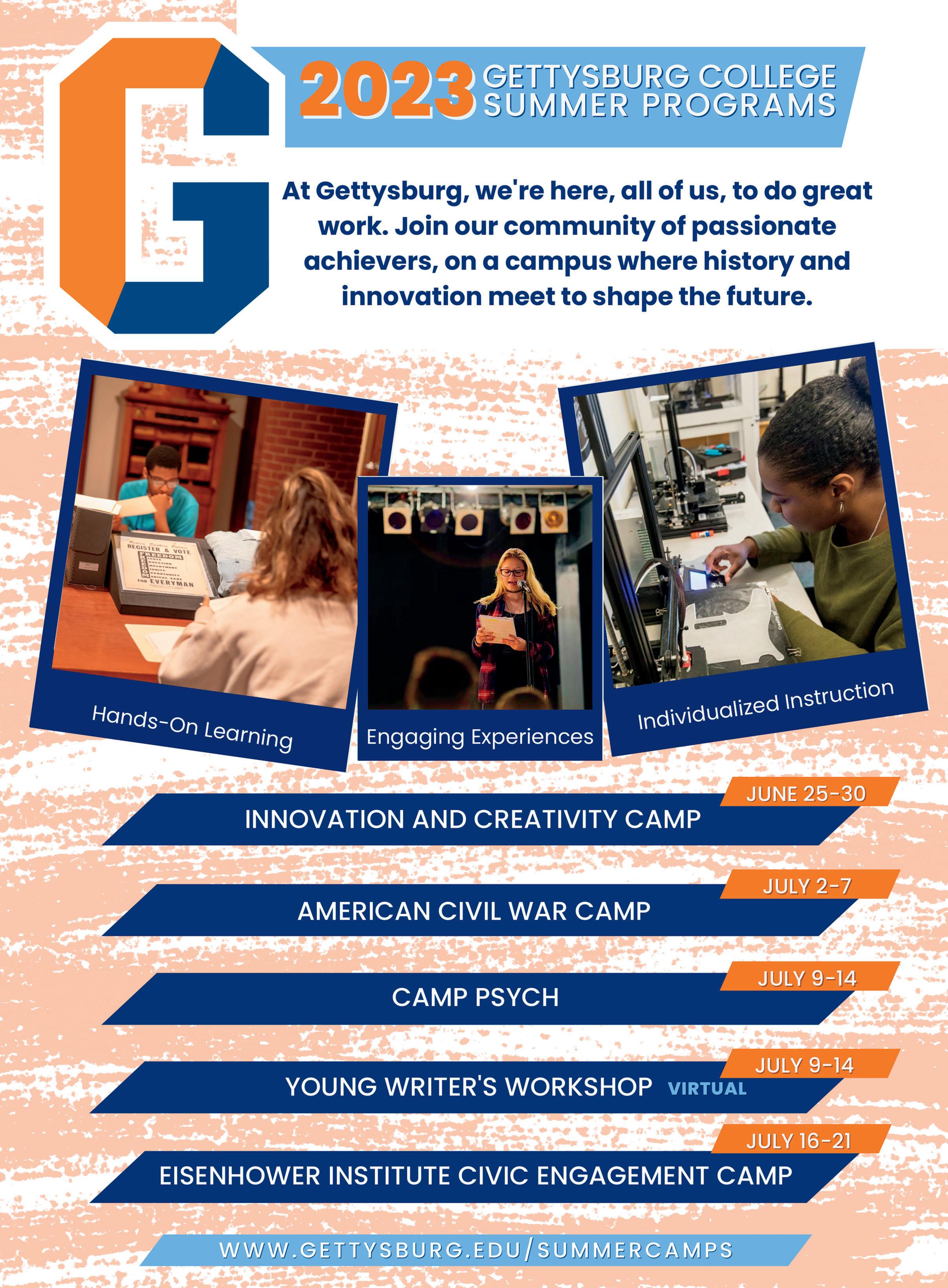
his summer, give your older child the gift of a lifetime by sending them on an adventure outside their comfort zone through a teen travel program. Geared towards middle and high school students, travel experiences pick up where overnight camp leaves off, with programs ranging from cross-country bike treks to wandering the world’s greatest cities to exploring faraway landscapes, with and without academic or philanthropic elements.
Where can kids go? “It really depends on the parents and how willing they are to go outside of their comfort zone to allow their kids to travel far and wide,” says Risa Goldberg, an adviser at The Camp Experts & Teen Summers, which matches kids to camps and travel and educational excursions around the world. Programs welcome kids in grades 7-12; though the majority are
designed for older teens (especially academic or service trips). The ideal candidate should be open to adventure and meeting new people, genuinely interested in participating and learning new skills and willing to take advantage of opportunities. Trips can last from just under two weeks to six weeks, with three being the sweet spot for most kids. Accommodations can vary from hotels and hostels to homestays, dormitories and camping under the stars.
There’s no way around this: teen travel camps are pricey. Fees vary based on accommodations, guide-to-student ratio, length of trip, planned activities, class fees and how expensive the destination is, along with the cost of airfare which isn’t usually included. Parents can expect to pay anywhere from $1,000-$3,000 per week, sometimes
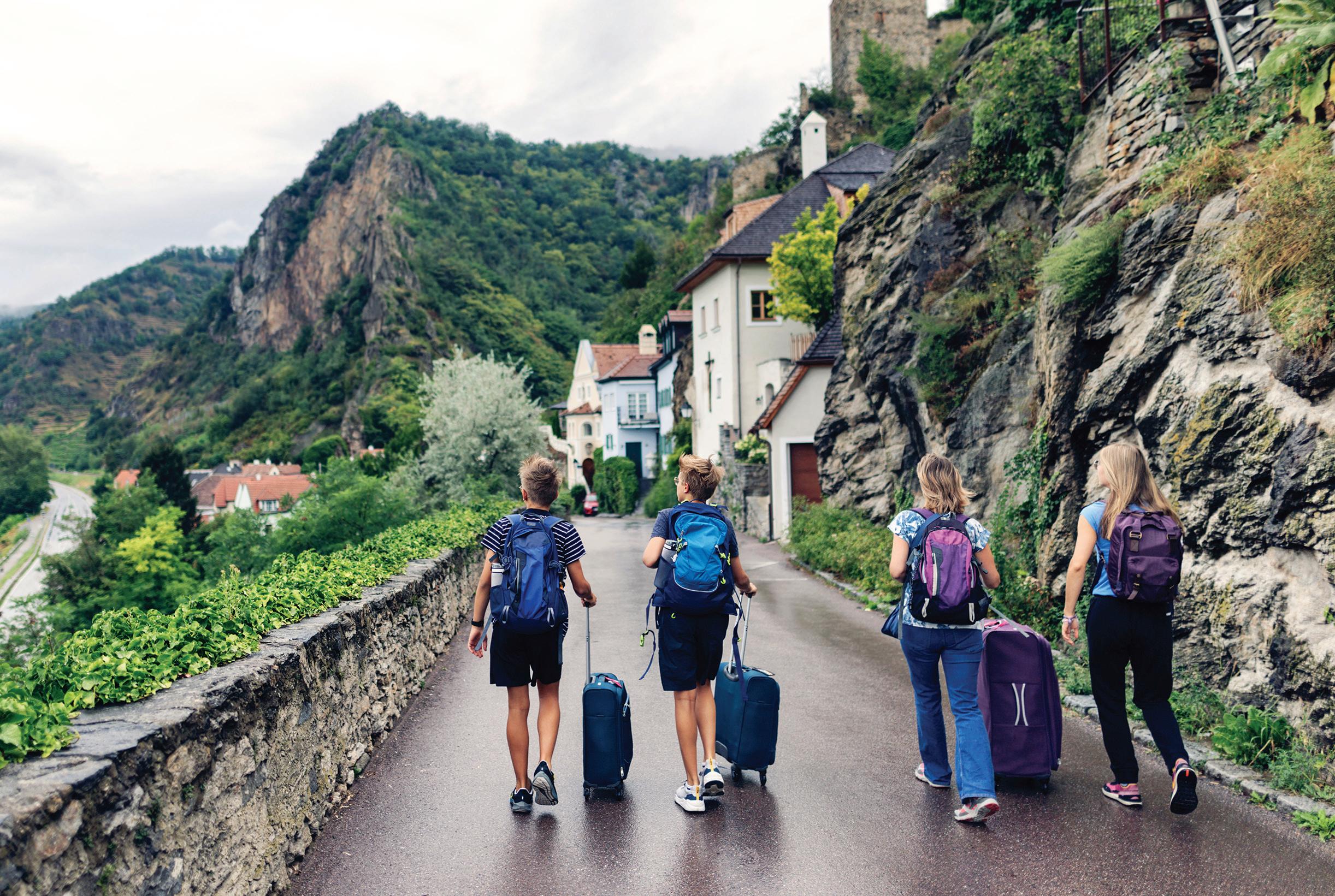
more. Volunteer programs aren’t necessarily cheaper. There’s some financial help—the Council On International Educational Exchange (CIEE), Where There Be Dragons and Global Leadership Adventures (GLA) offer partial scholarships to help cover costs. RootOne offers vouchers for Jewish teens interested in traveling to Israel.
Still, for those who can afford it, the benefits can be life-changing, whether from making friends from around the world to setting them on an academic and career track. Traveling also allows kids to taste independence. “Other than camp, they’ve never had to live in a different environment other than their own comfort zone. Detaching teaches them to be much more self-reliant,” says Goldberg.
Speaking of which, many parents and teens view travel programs as a nice addition to their college application. “Focused programs where students learn something new, enhance a skill or do true community service are the most attractive to colleges,” says Janet Rubin, a college consultant based in Short Hills. So ask how much of any given program is truly devoted to charity work before choosing a service program.
Here’s a breakdown of the types of programs available:
Tours limited to the U.S.—from cruising the Cali coast to exploring national parks—are the OG of travel programs for adolescents in the NYC metropolitan area and are still a typical first experience though many tours take teens all over the world, too. What differentiates a tour from other programs is that the focus tends to be on fun, friendship and the thrill of travel, whether Euro-railing or discovering the wonders of Southeast Asia. While some tours specialize in areas such as biking, writing or photography, the primary goal is seeing the sights, appreciating other cultures and having a fantastic time.
From taking climate action in Copenhagen to mentoring underprivileged kids in Morocco, a program with a service spin can instill a mix of compassion, problem-solving abilities and leadership skills, says Goldberg. Costa Rica is an especially popular destination for American kids interested in exploration and service.
Language immersion programs fast track fluency while giving teens the chance to authentically connect to a different culture. Students may live with a host family or in a hotel/dorm with other students. Programs typically combine language classes with real-world opportunities to practice and develop conversational confidence.
Whatever your child’s interest, there’s a program that will locate them in the center of their obsession. These can be part of a tourtype program or set in an academic space anywhere from L.A. to Lisbon. Does your child love animals, archaeology or fighting for women’s rights? There are plenty of opportunities at the intersection of interest, service and study. There are international programs where students spend a summer teaching a sport like tennis or soccer to underprivileged kids, says Rubin.
College-based programs have the advantage of built-in facilities and educators, while providing a safe home base for exploring a new city or continent. Even programs in another state can feel like a world away. A campus adviser can help find a good match, but word-of-mouth and research can narrow the choices. The sites goabroad.com and gooverseas.com aggregate many programs, letting you filter by age, interest, destination and program length. Whatever you choose, remember: It’s the journey, not the destination. Here are some well-known programs to get started:
Rein Teen Tours (reinteentours.com): The Wayne-based favorite is known for classic jaunts to the American West and more.
Global Leadership Adventures (experiencegla.com): GLA offers meaningful travel inspired by the Peace Corps.
Apogee Adventures (apogeeadventures.com): They’ll lace up their hiking boots for confidence-building exploration in the great outdoors.
Moondance Adventures (moondanceadventures.com): Teens will journey to the world’s most awe-inspiring places.
Travel for Teens (travelforteens.com): Authentic immersive cultural experiences take place anywhere from France to Fiji.
Putney Student Travel (goputney.com): Choose from trips focused on service, language, adventure and career, plus pre-college options.

The Experiment in International Living (experiment.org): Immersive programs aim to deepen cultural connections through homestays, language learning, art, food and fun.
National Student Leadership Conference (nslcleaders.org): They’ll jump into career discovery at prestigious universities.


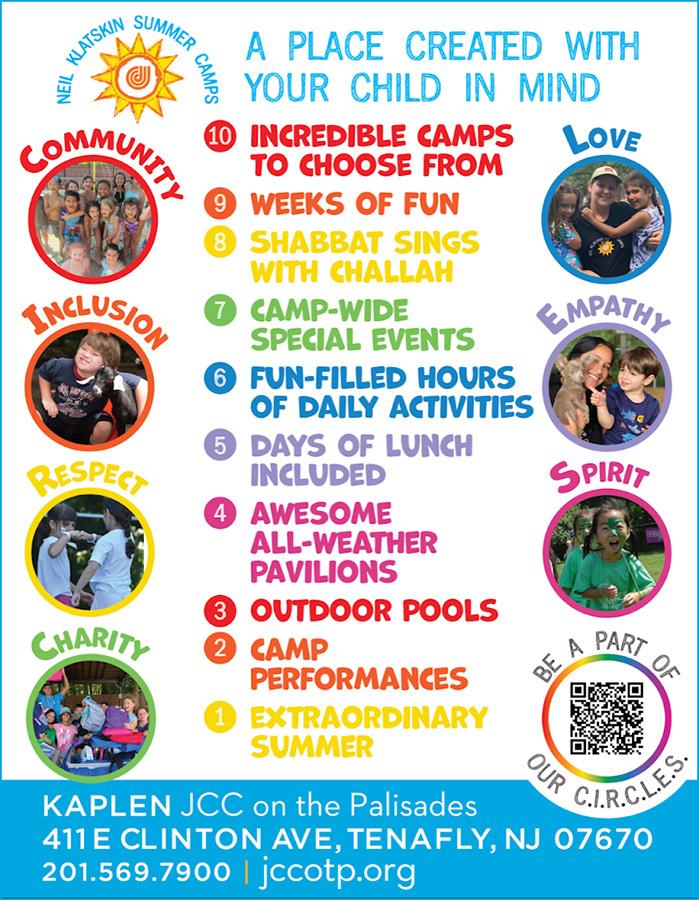
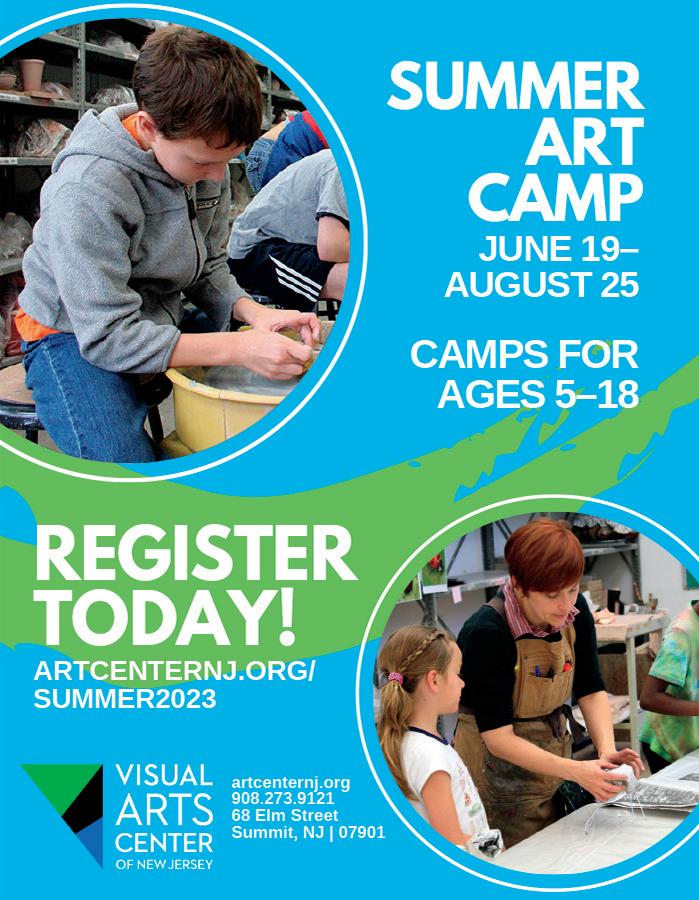





















Thursday, March 2 4-5 p.m. ET
With New York Times–bestselling author Edward Hallowell, M.D., Ed.D.

Dr. Edward Hallowell, co-author of the groundbreaking books “Driven to Distraction” and “Delivered From Distraction,” will share his insights on the latest brain science behind ADHD/ADD and his strengths-based approach to identifying, developing and celebrating the talents embedded in ADHD, dyslexia and other syndromes.


Wednesday, March 22 2-3 p.m. ET
With cultural researcher and parenting expert Jessica Joelle Alexander
Cultural researcher and author Jessica Joelle Alexander will reveal the secrets behind the Danish way of parenting. Alexander applies the “PARENT” acronym — Play, Authenticity, Reframing, Empathy, No ultimatums and Togetherness — to help parents from all walks of life “raise the happiest, most well-adjusted kids in the world.”
Registrants will be eligible to win a $100 Amazon gift card after each ParentEd talk. Attendees of the March 22 event will also be eligible to win a SNOO Smart Sleeper Bassinet (valued at $1,695) or a $500 Happiest Baby gift card, courtesy of Happiest Baby.

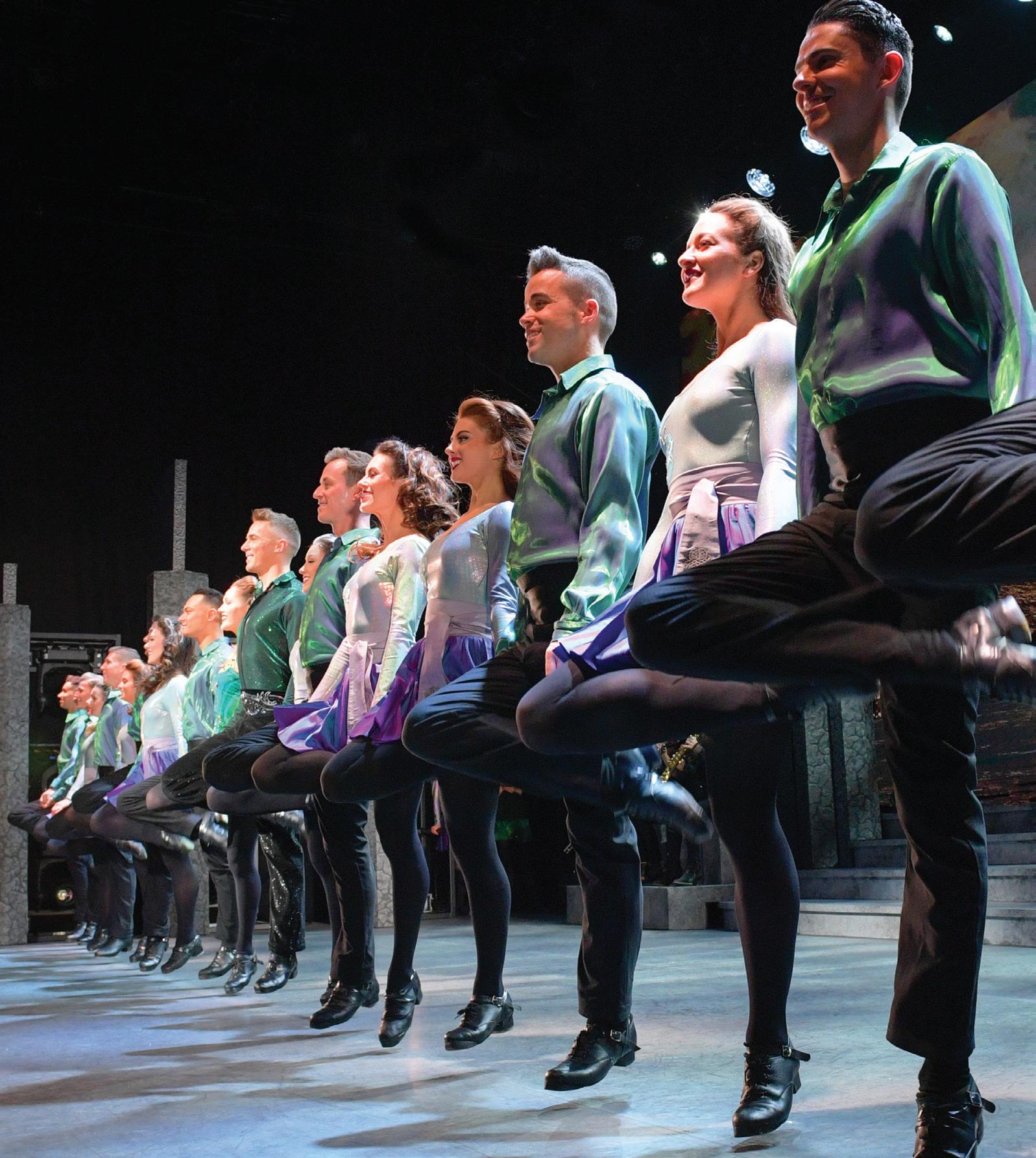
kodo
Mar 14 @ 7:30PM
Feel the power of the Japanese taiko drum! Kodo pulses with an exhilarating energy that will fill you with joy.

featuring The Shanghai Circus Sat, Apr 1 @ 3 & 7:30PM
Chinese acrobatics combines with traditional music and high-tech special effects for a jaw-dropping carnival of fun.

alvin ailey american dance theater

May 12 & 13 @ 8PM; May 14 @ 3PM
This elegant, electrifying company celebrates its return to NJPAC with new works and the beloved Revelations
performing saturday arts programs
In-person performing arts programs are back at NJPAC this spring! Students ages 9 – 18 can explore classes in jazz, hip hop and theater. Learn more and register at njpac.org/students!

NJPAC thanks our generous Arts Education funders. For a full listing visit njpac.org/education
Samantha Bee parents’ night out!
Feb 11
Busy Philipps is Doing Her Best Live!
Mar 11
Pinky Patel
New Crown, Who Dhis Tour
Apr 7
Samantha Bee

Apr 12
Andrew Bird: Inside Problems
Apr 16 Yes Epics & Classics featuring Jon Anderson
@NJPAC • 1.888.MY.NJPAC • njpac.org
Groups of 9 or more call 973.353.7561 One Center Street, Newark, NJ